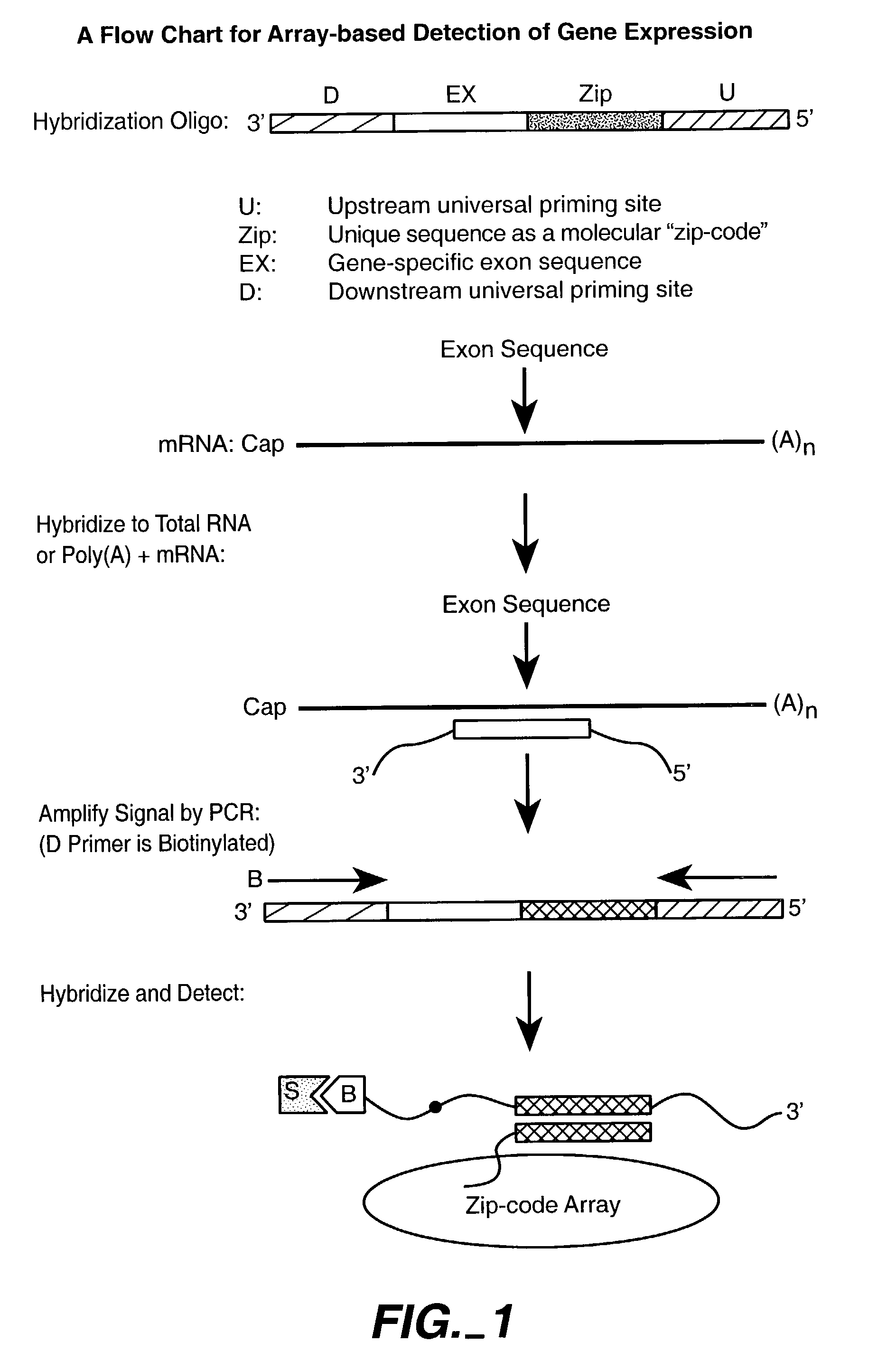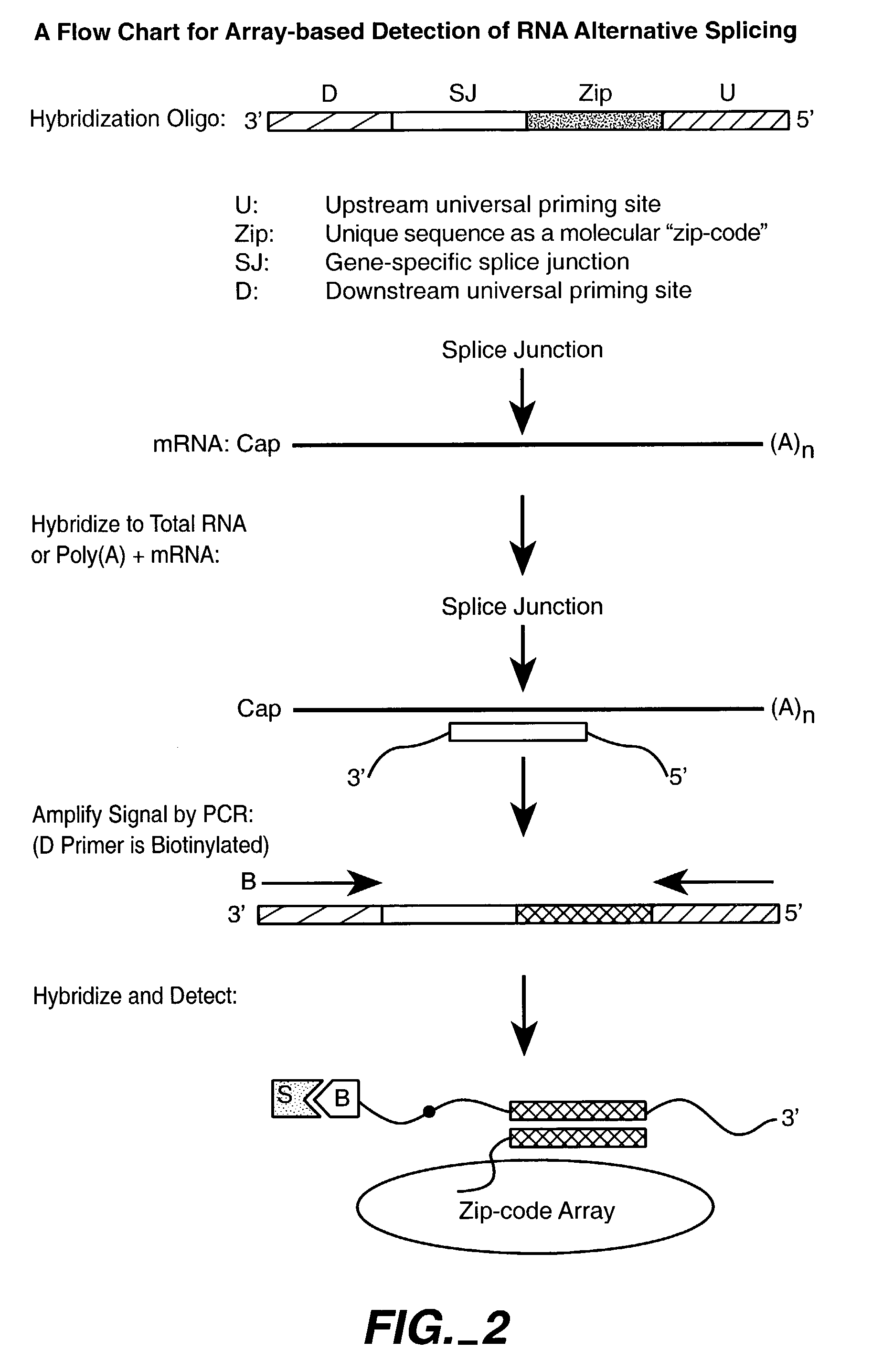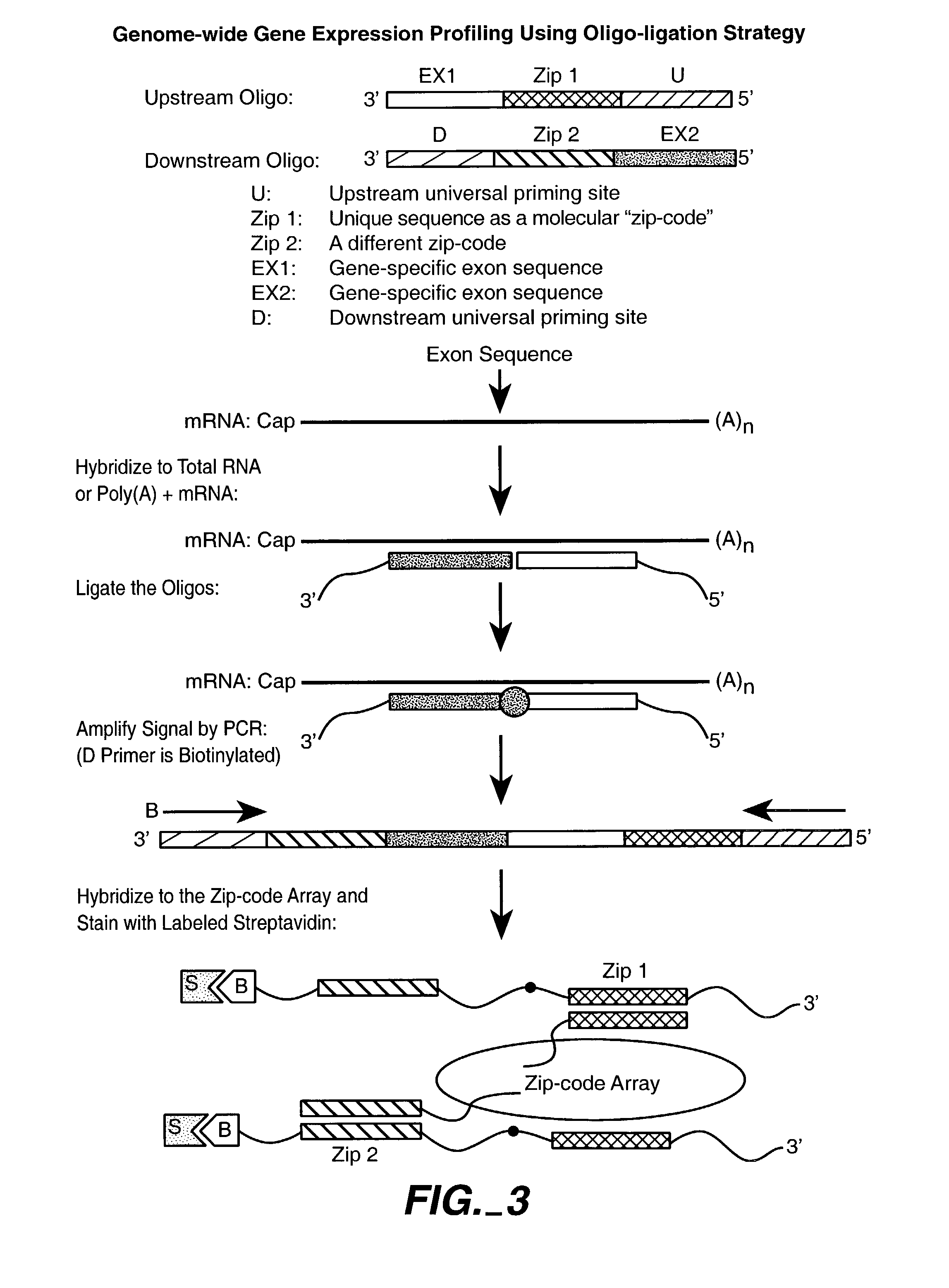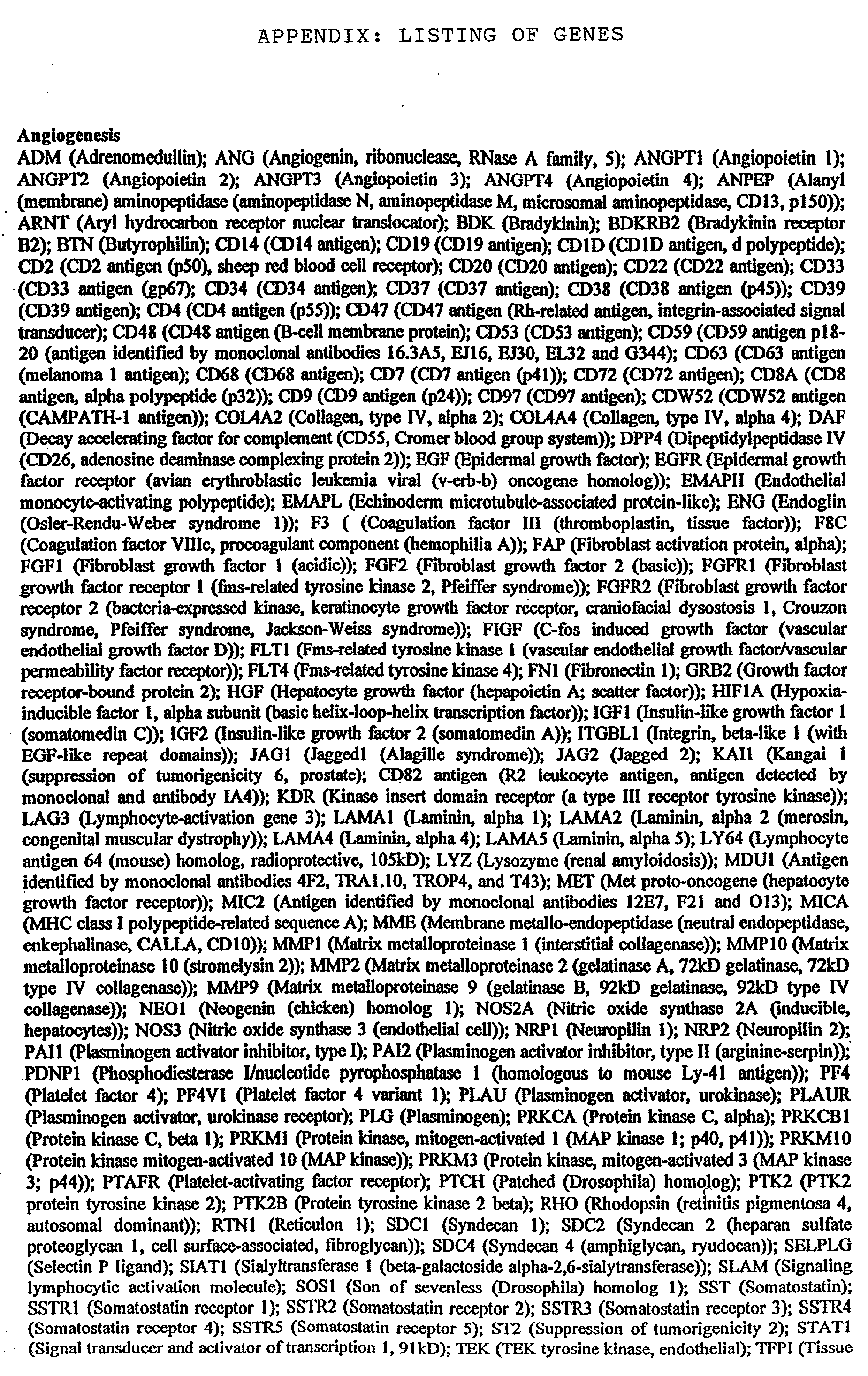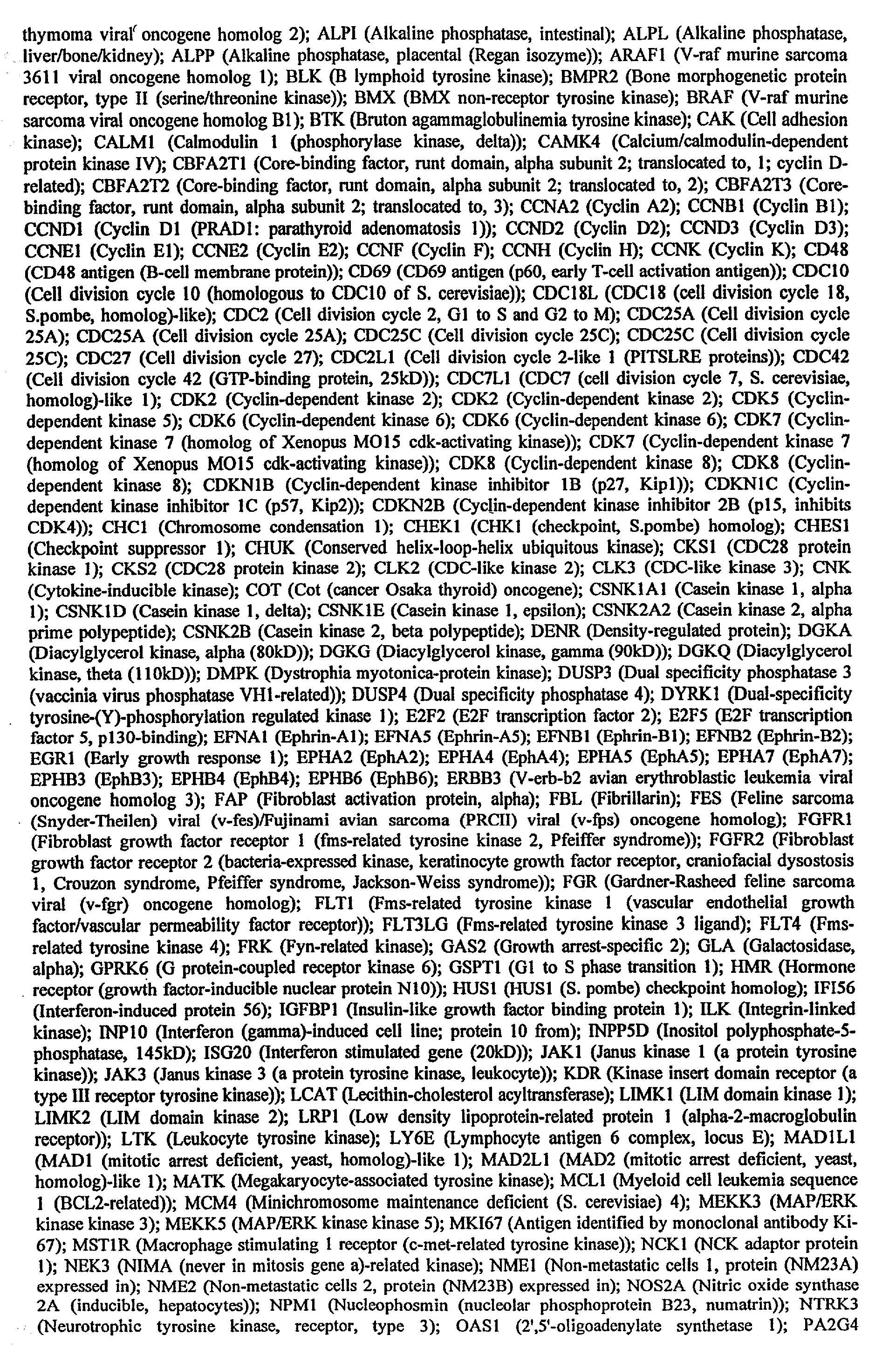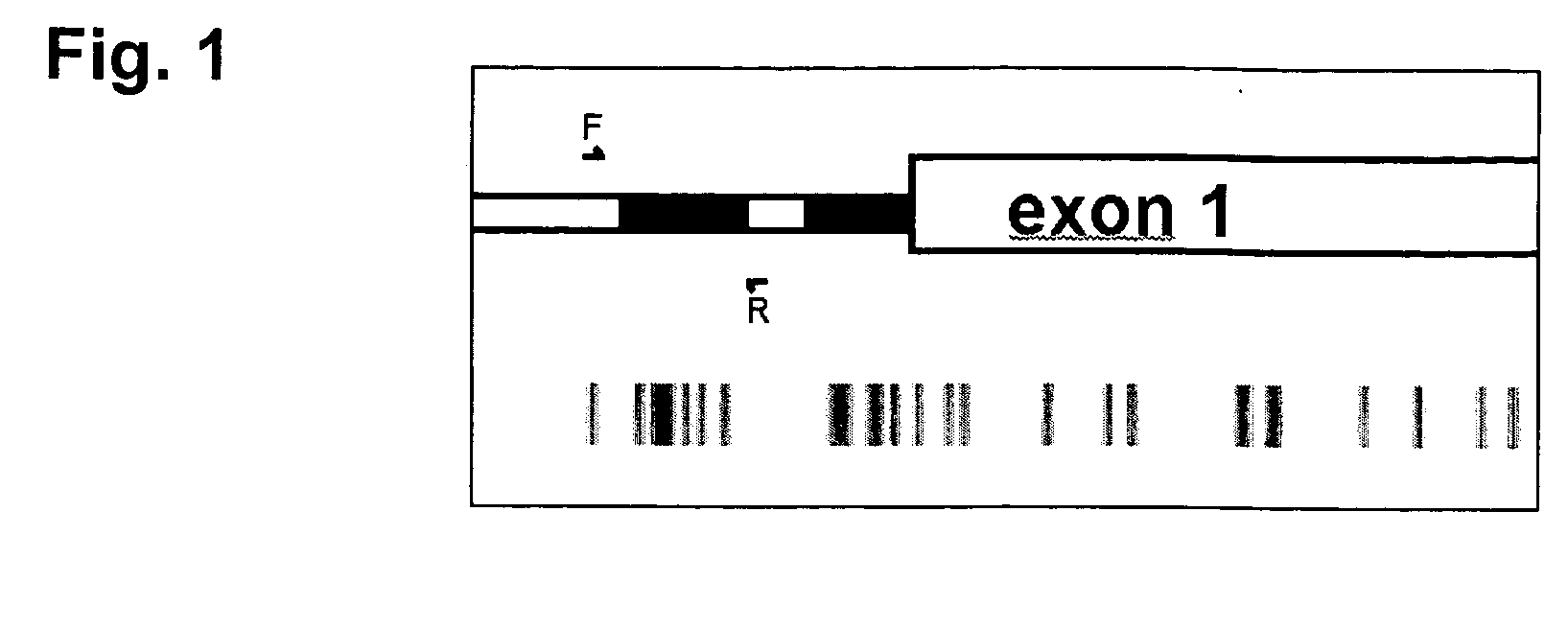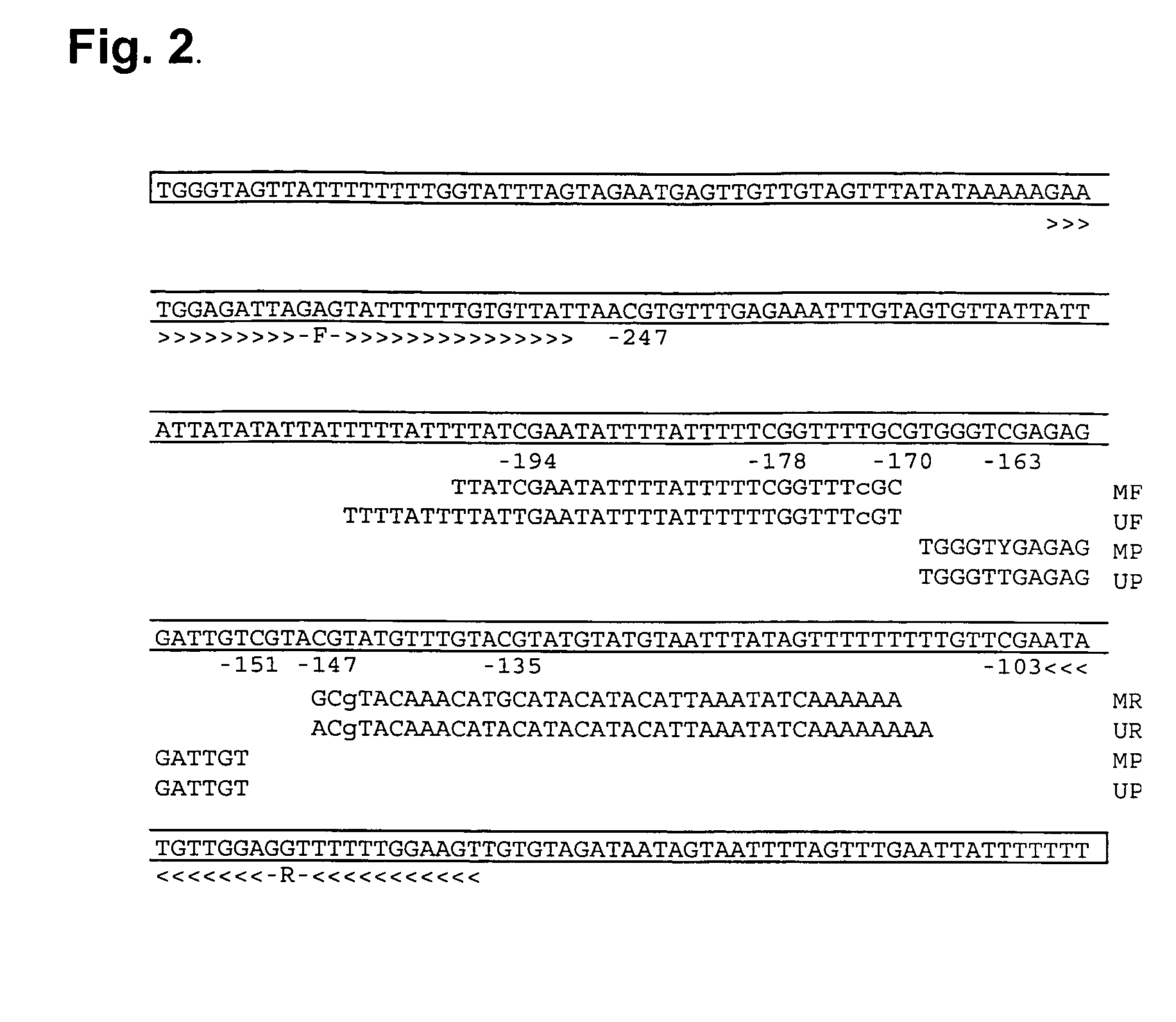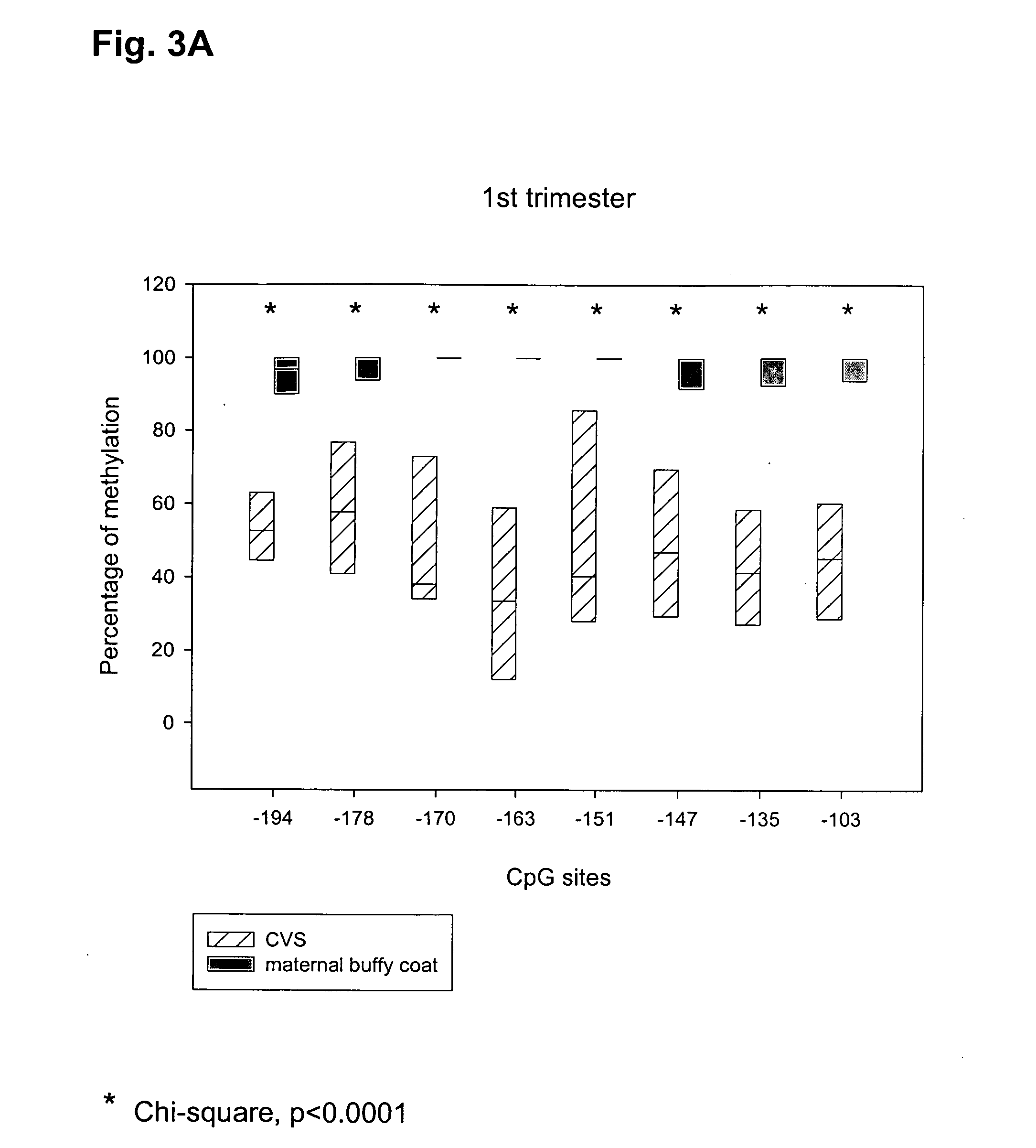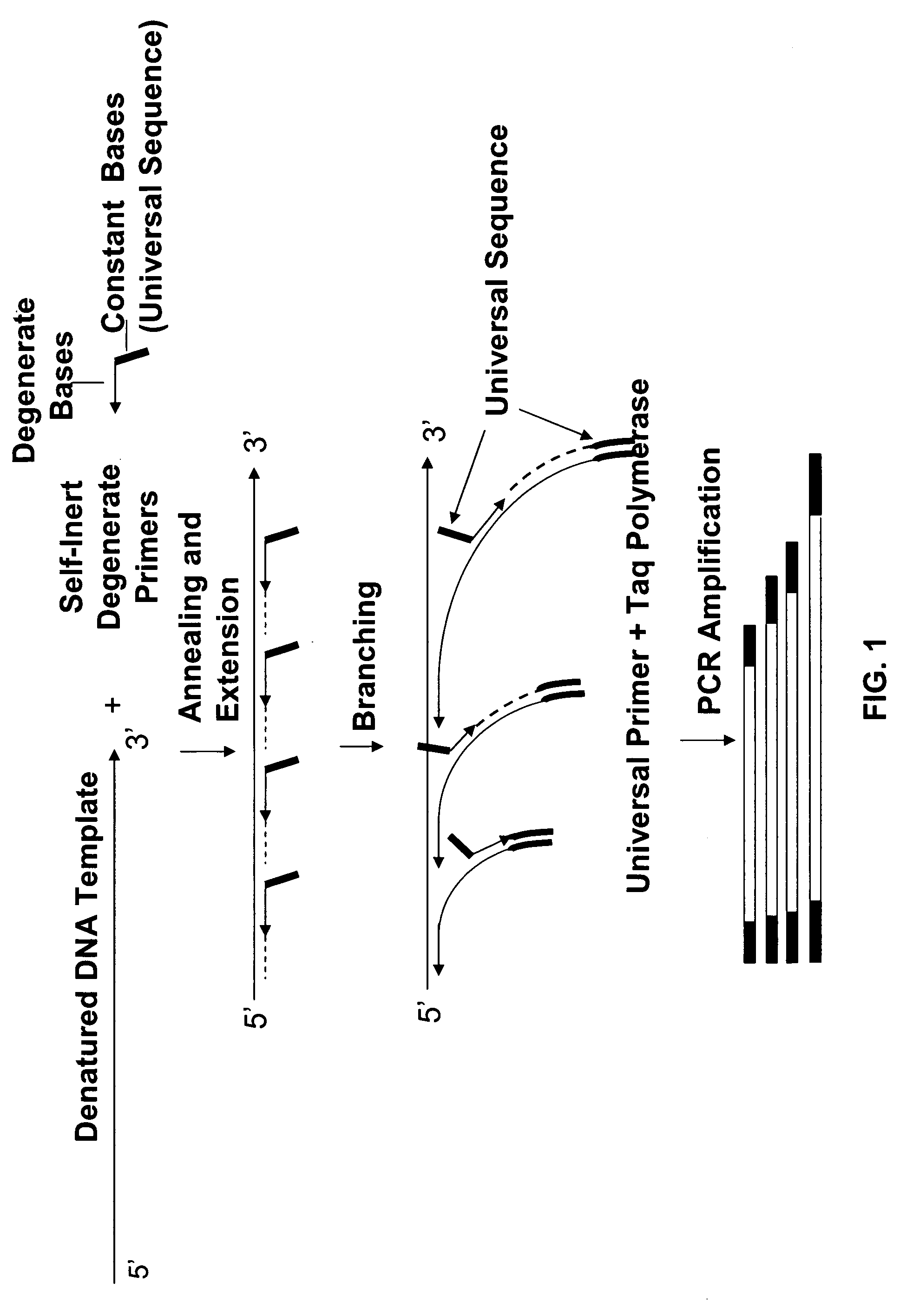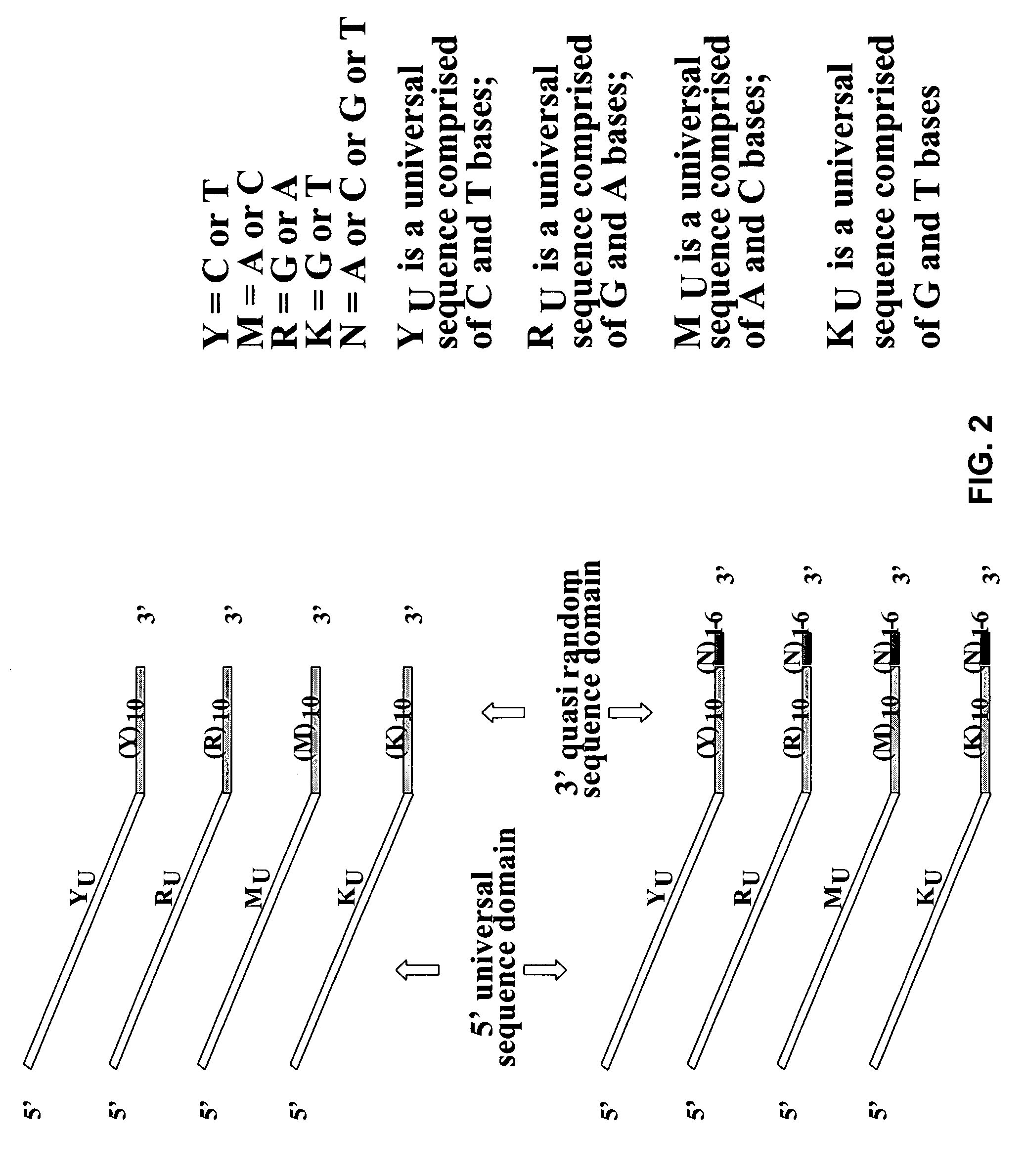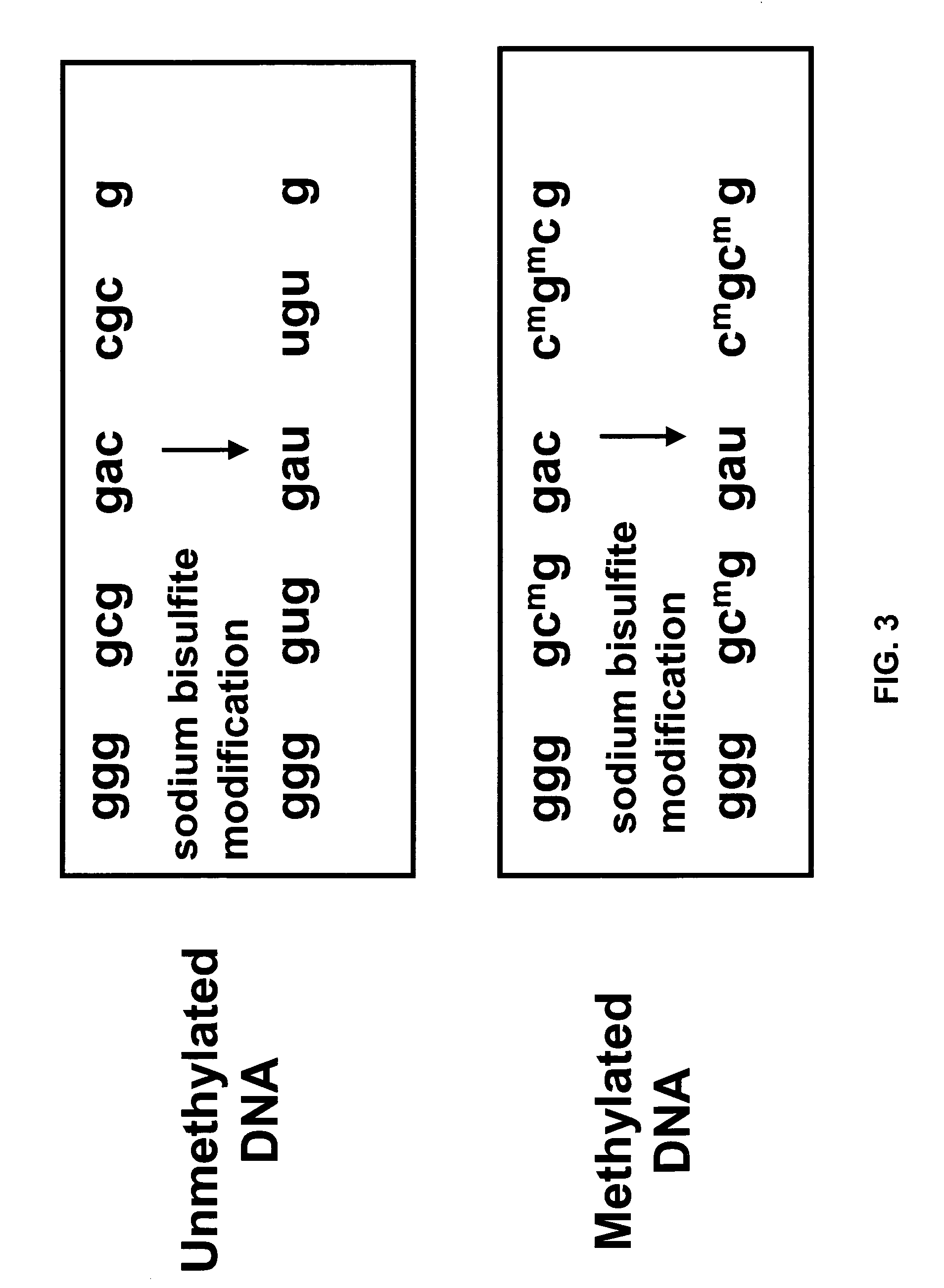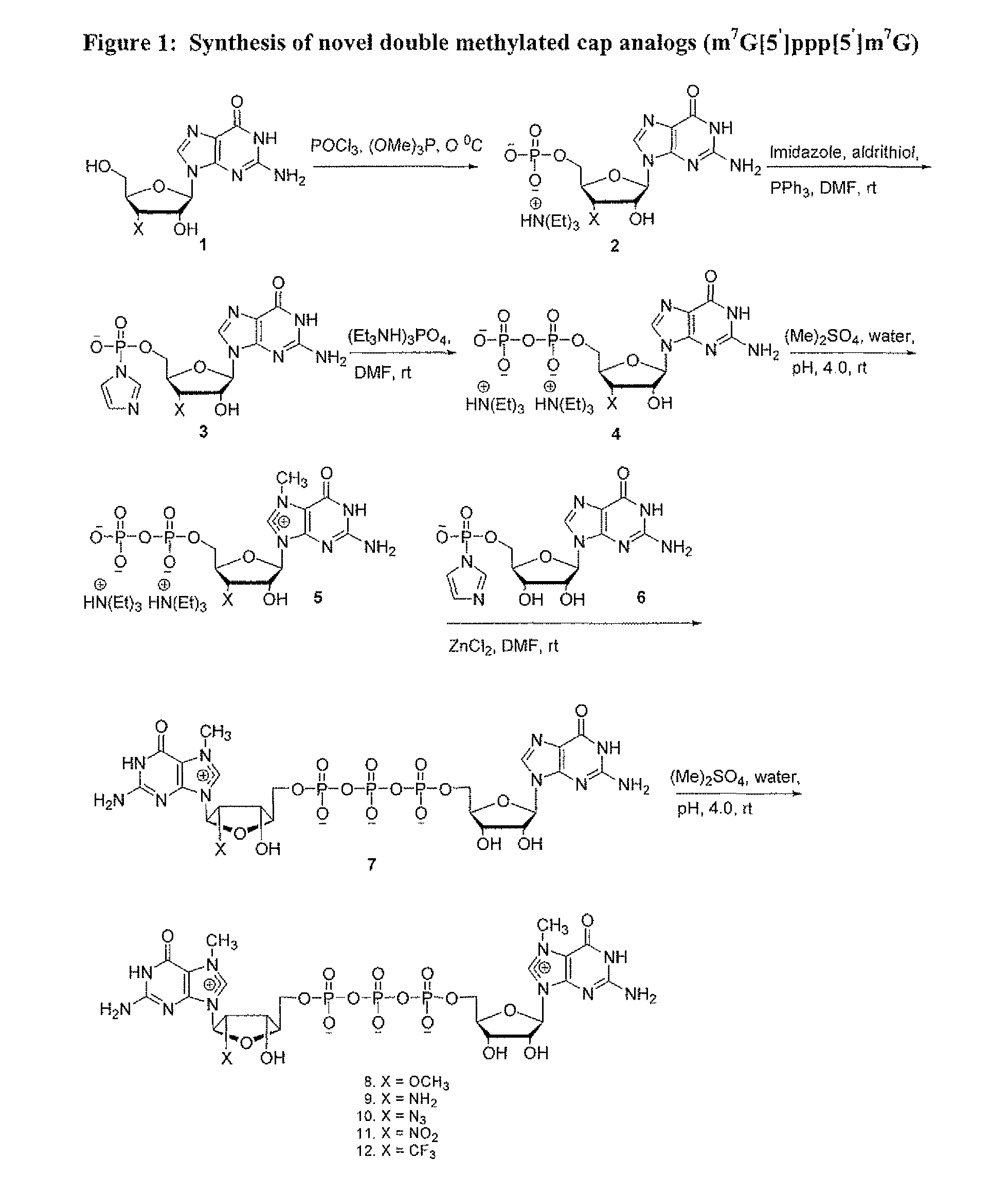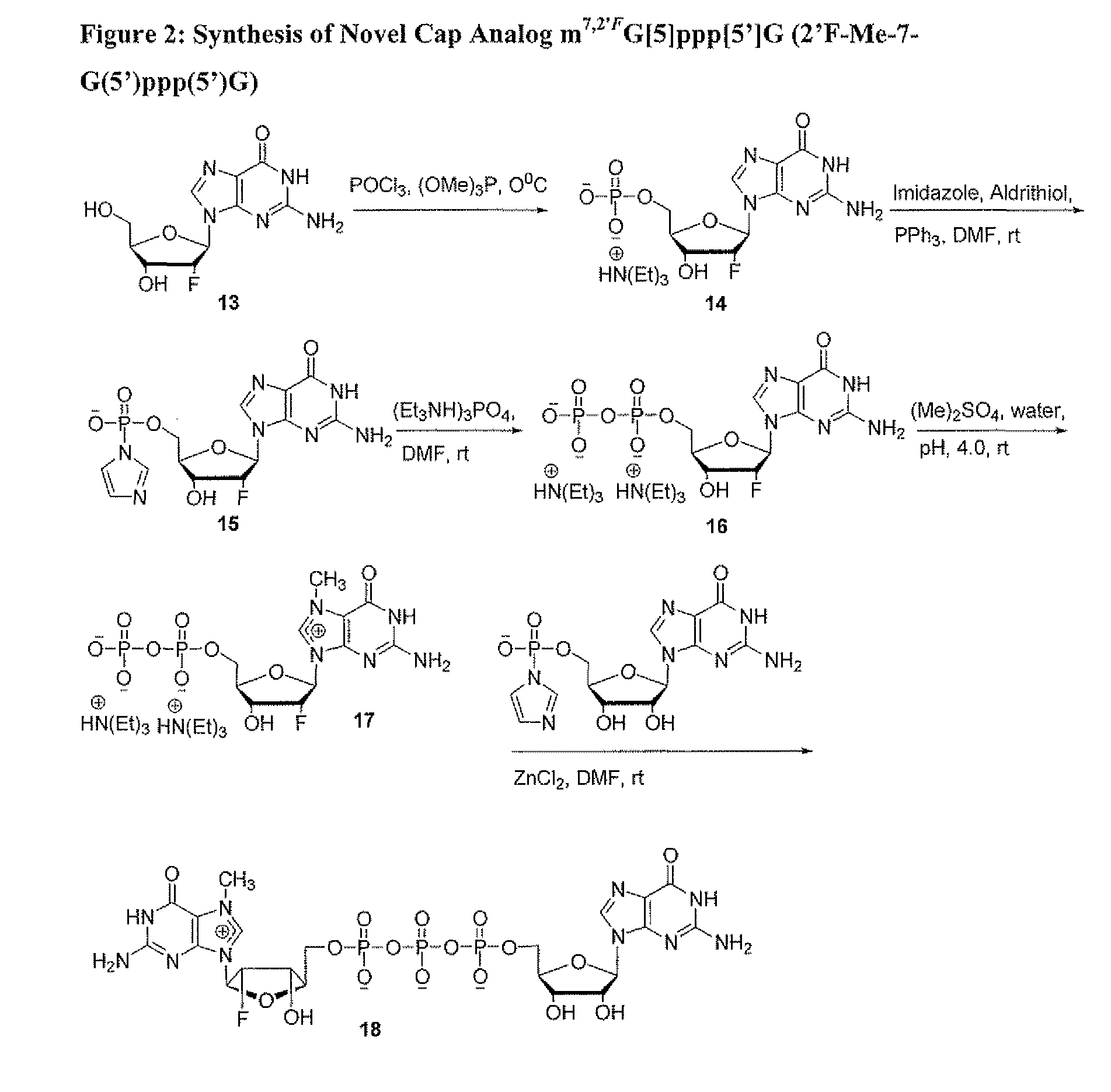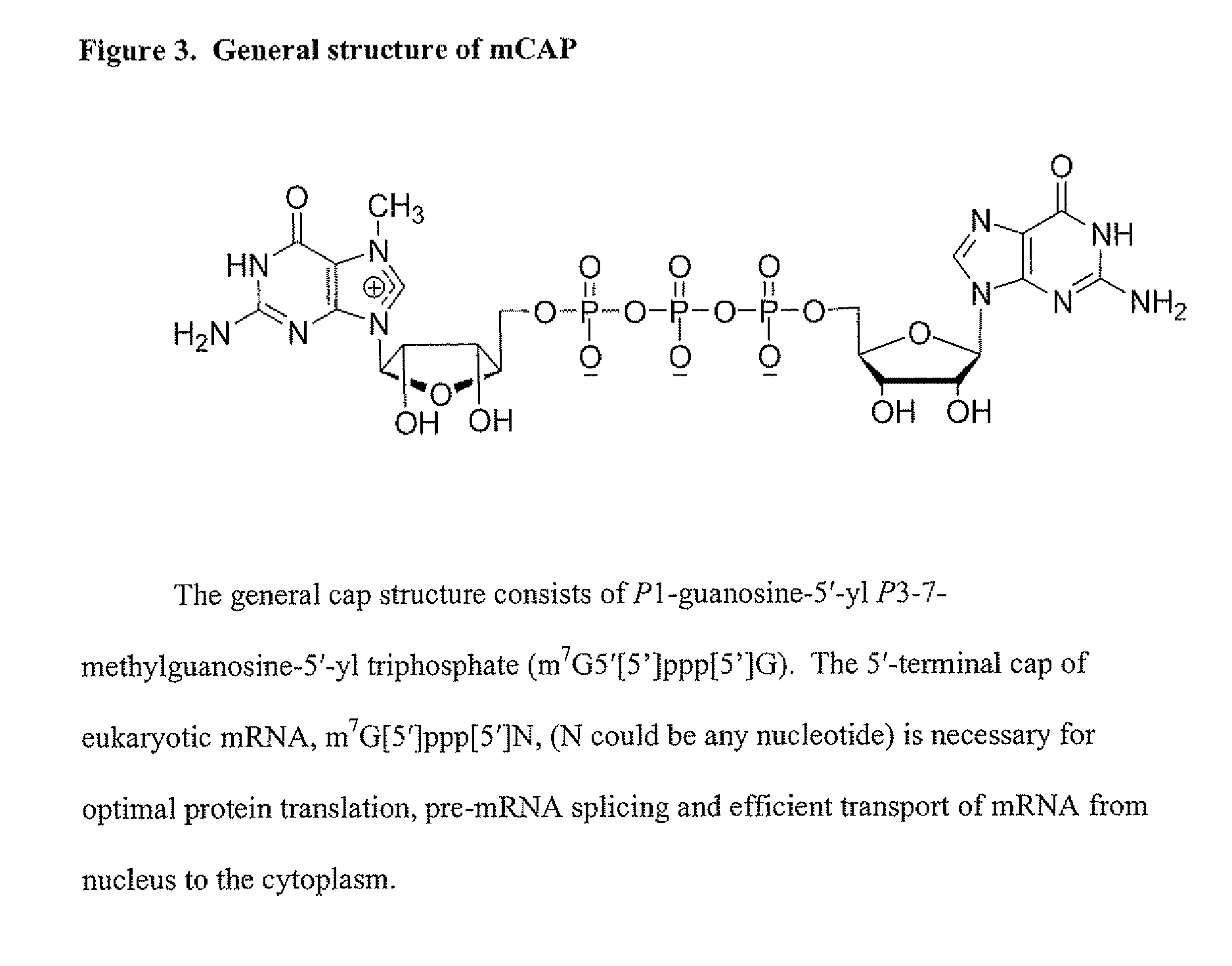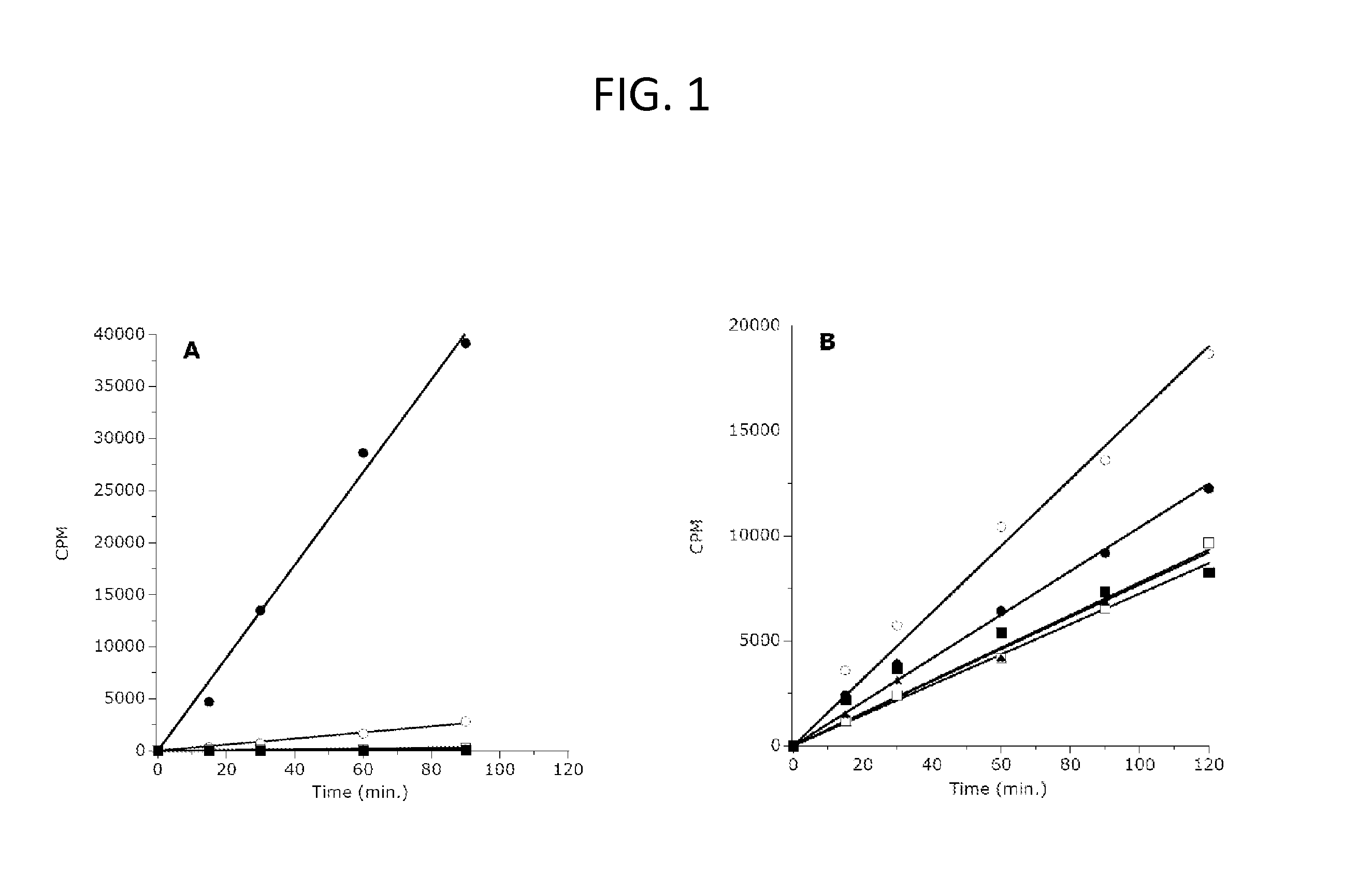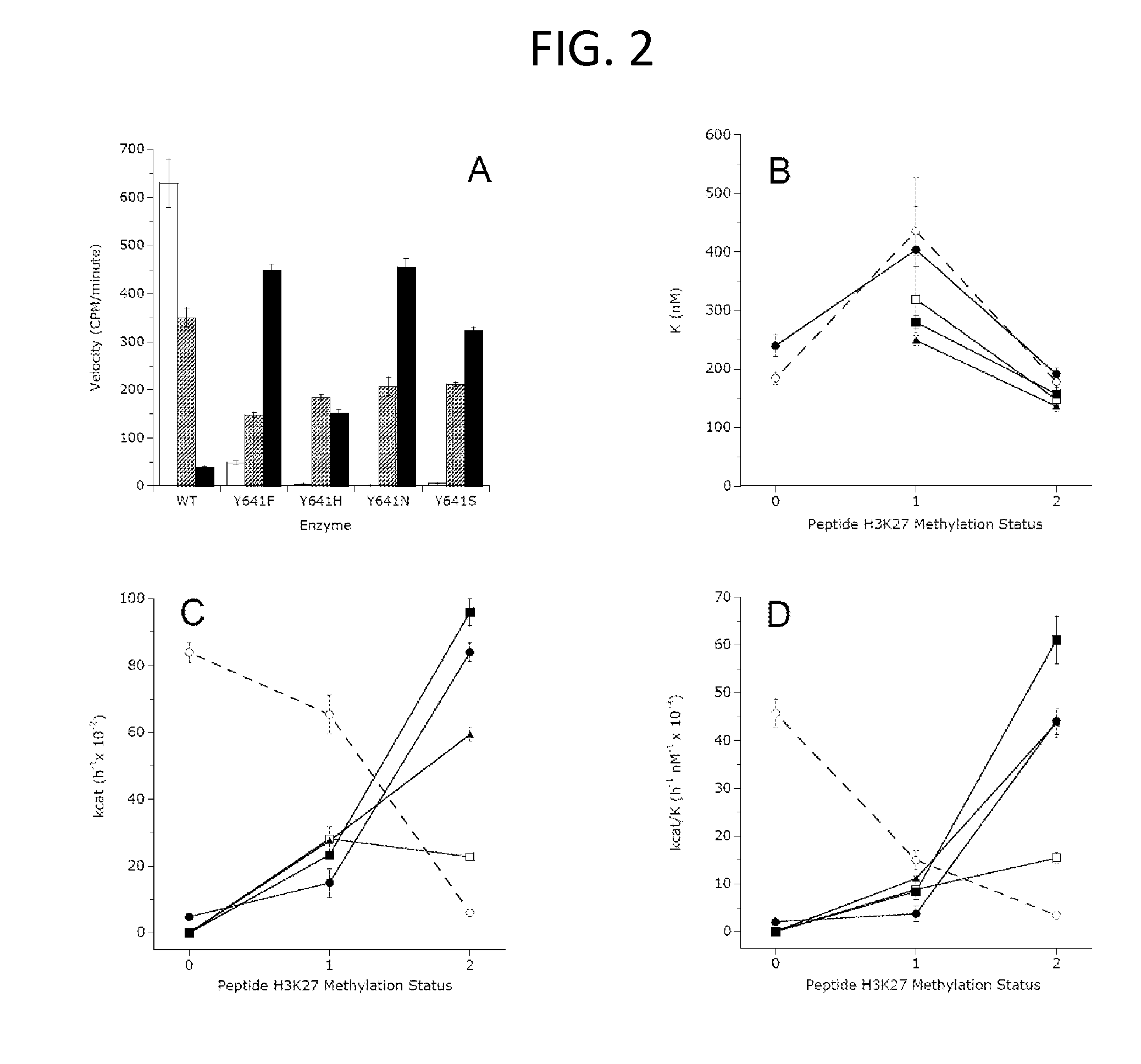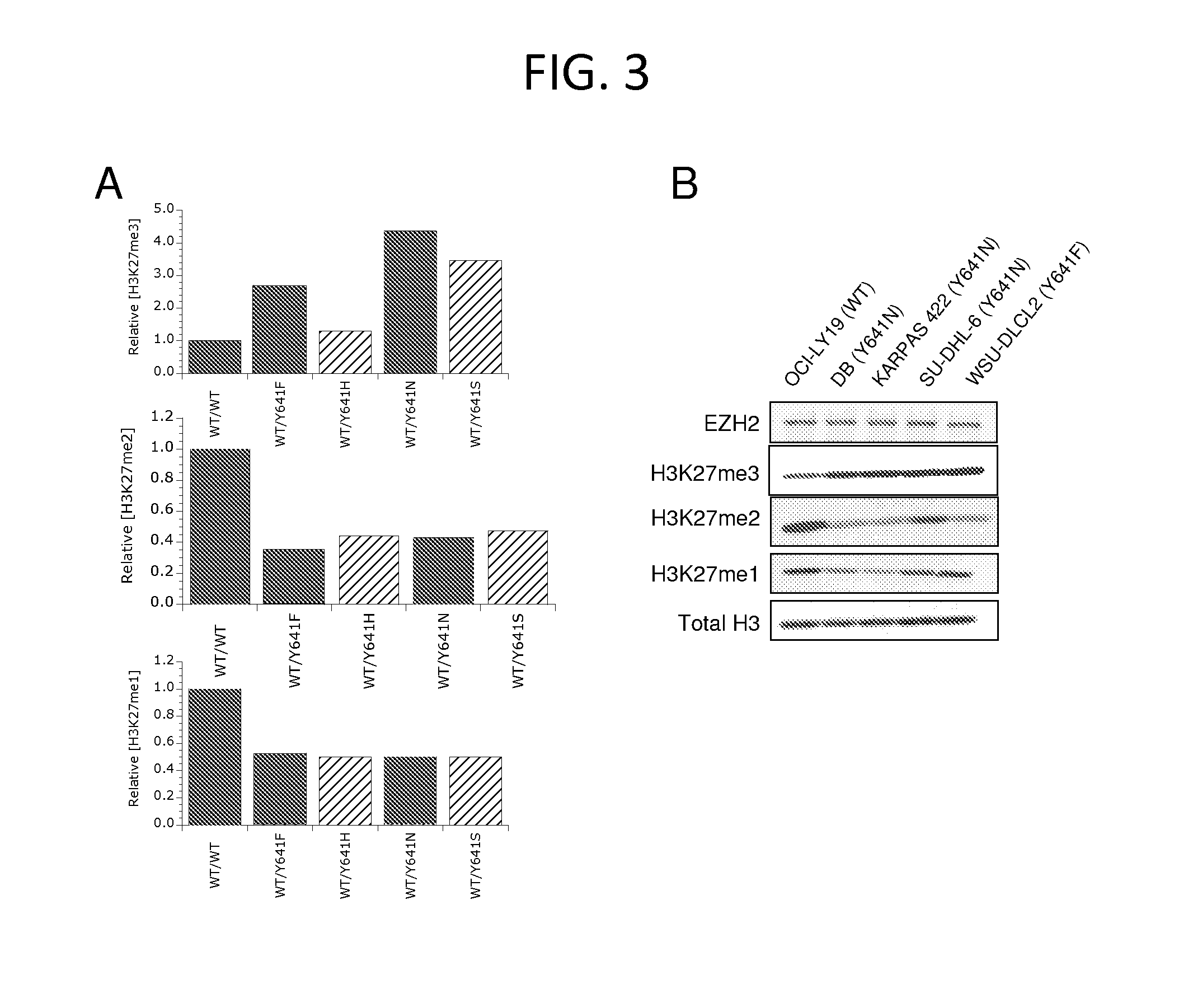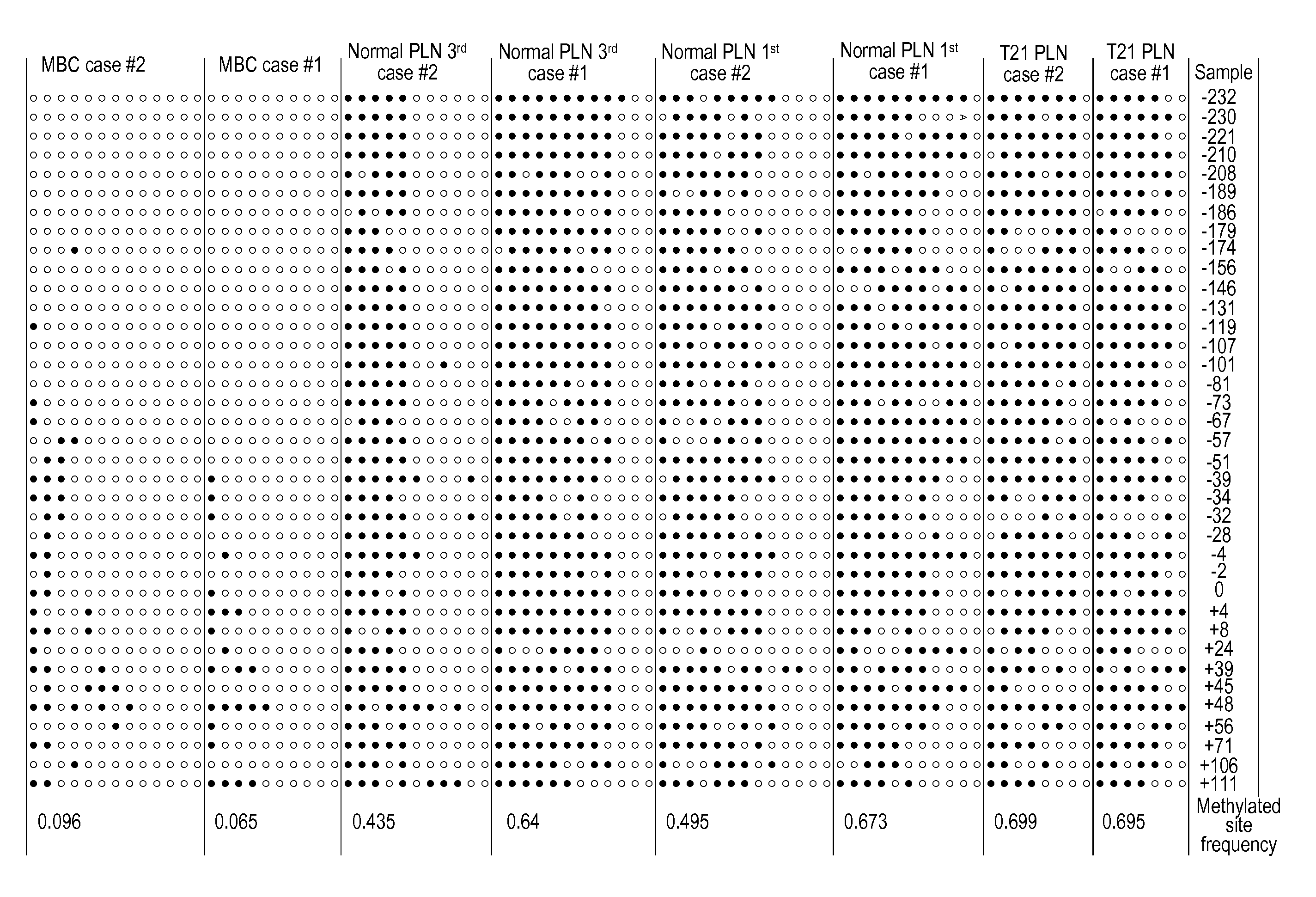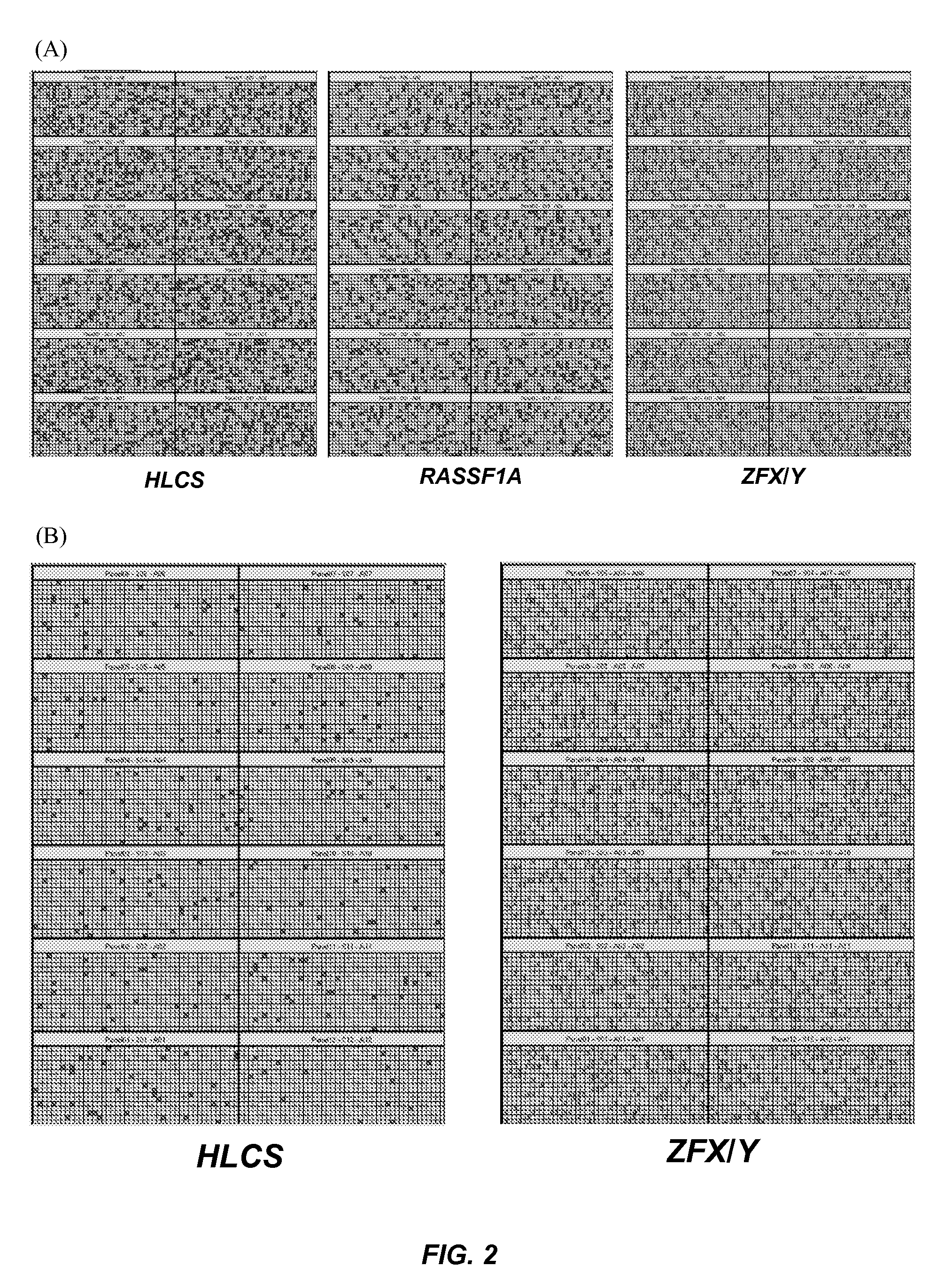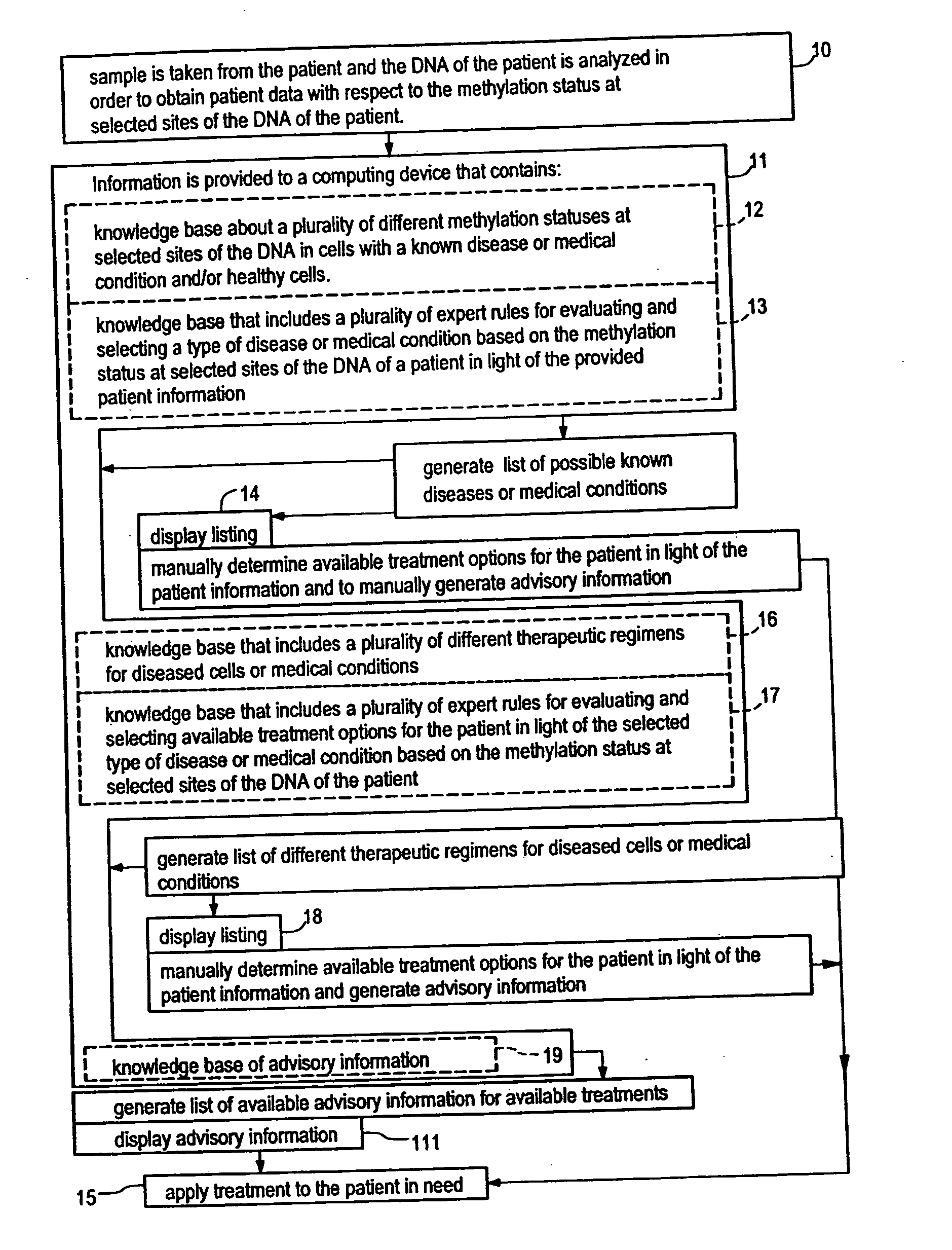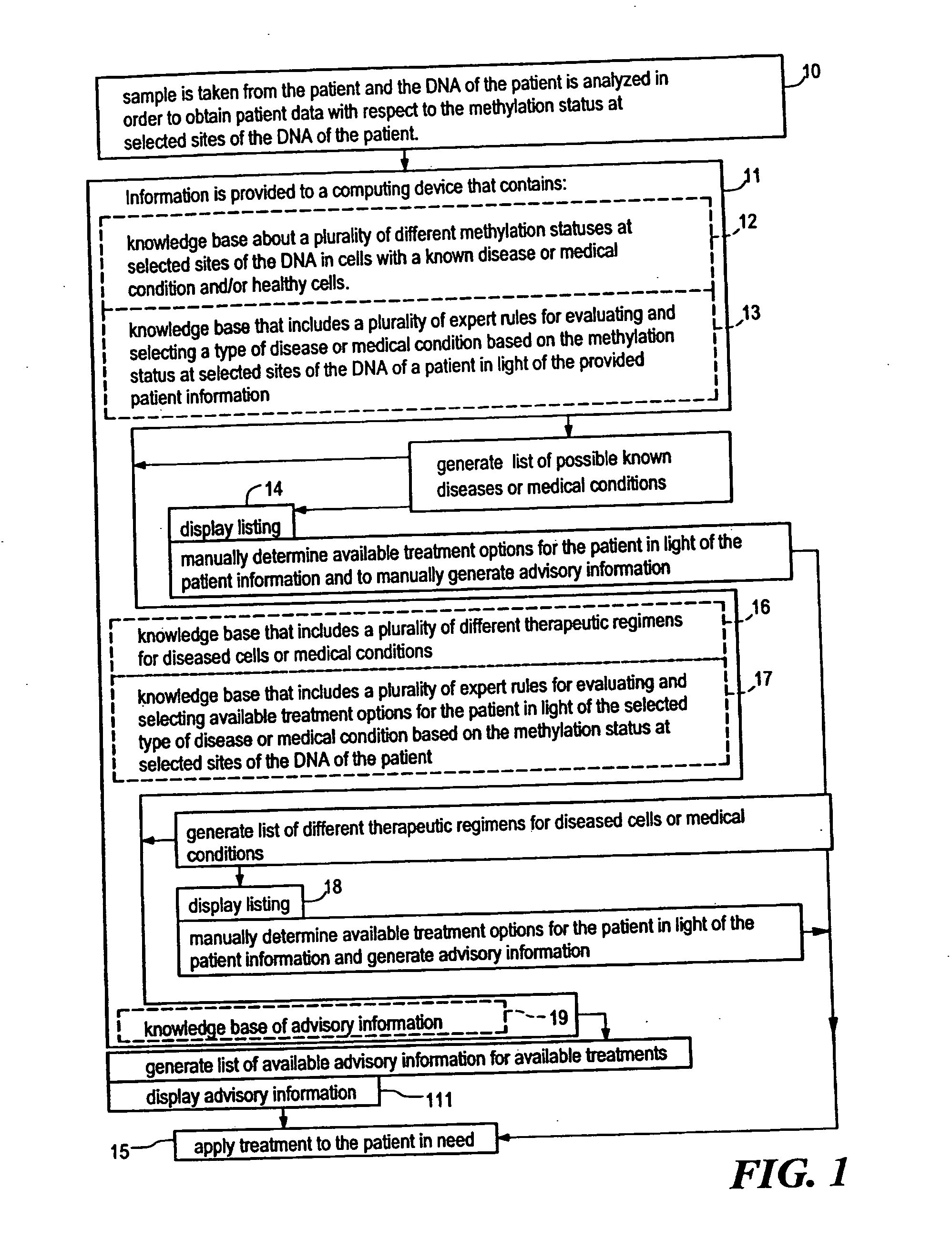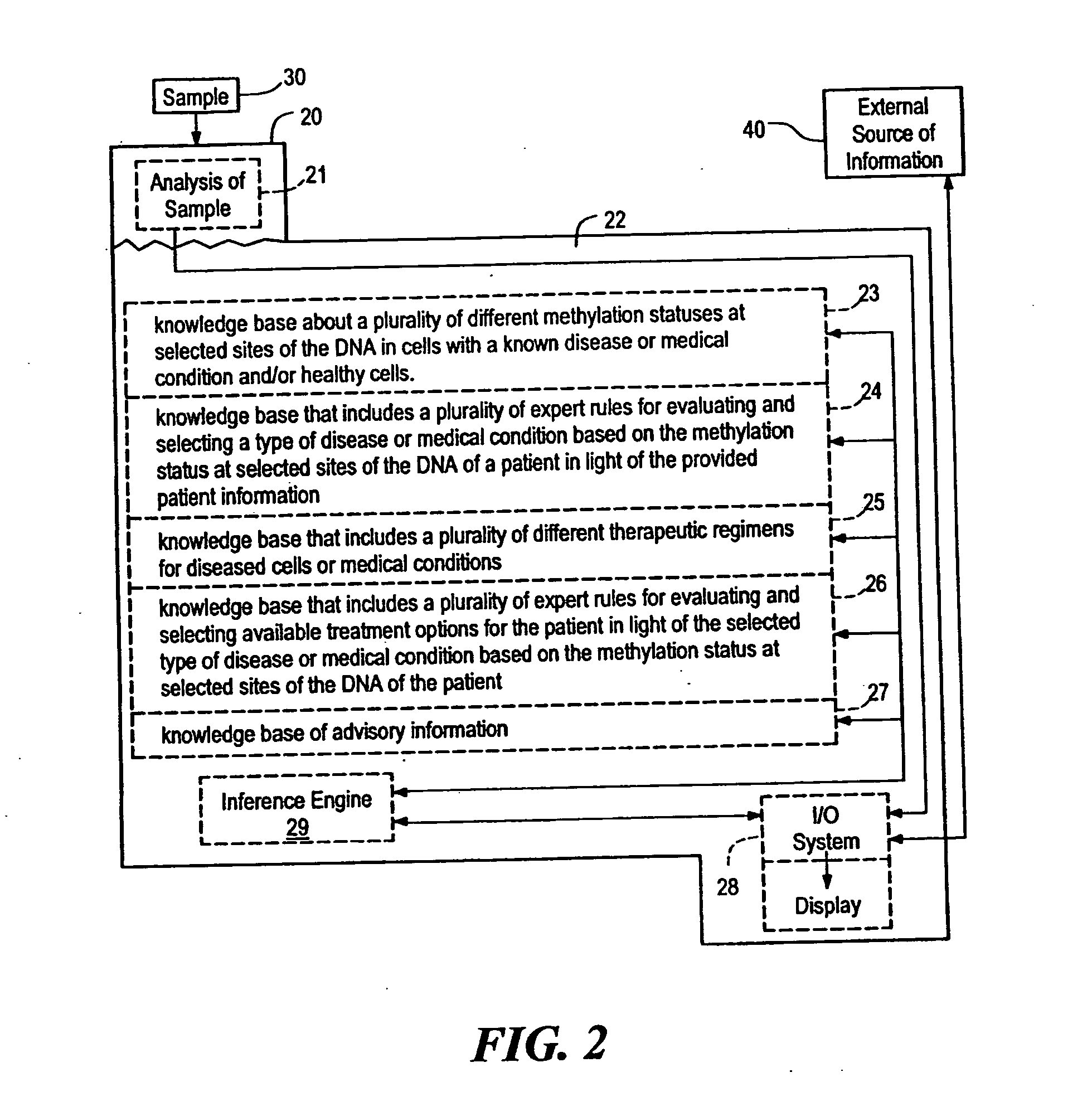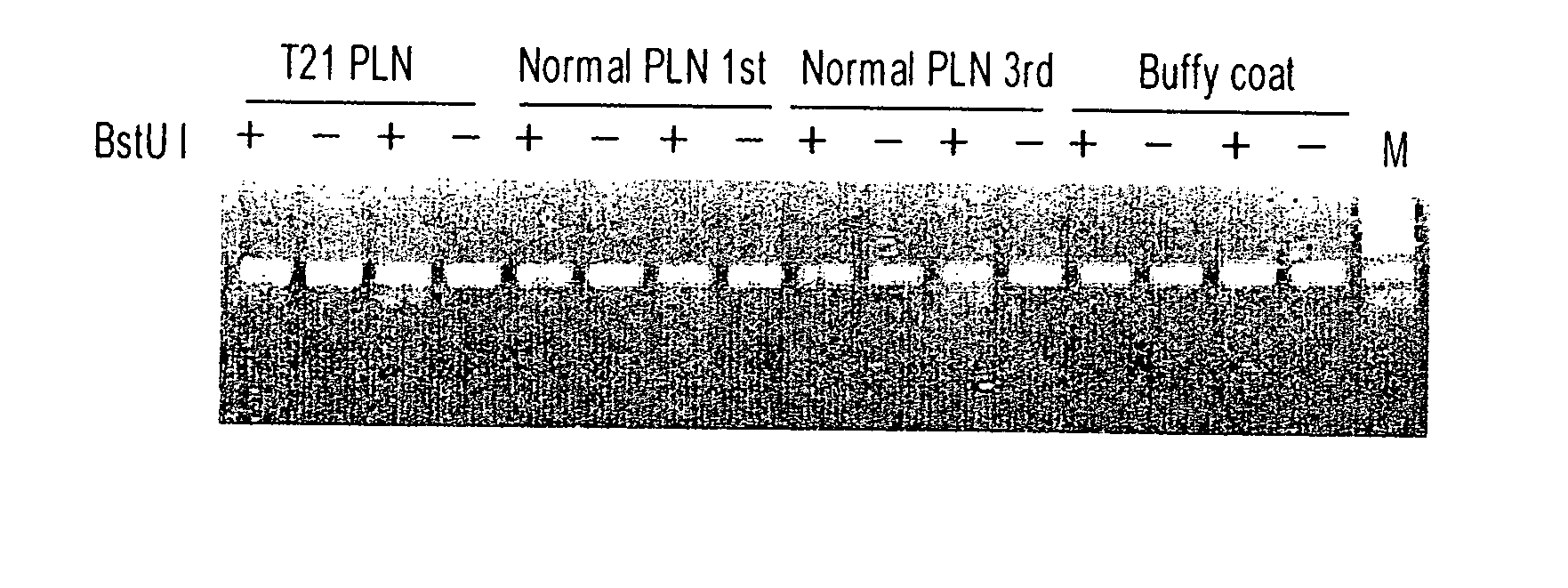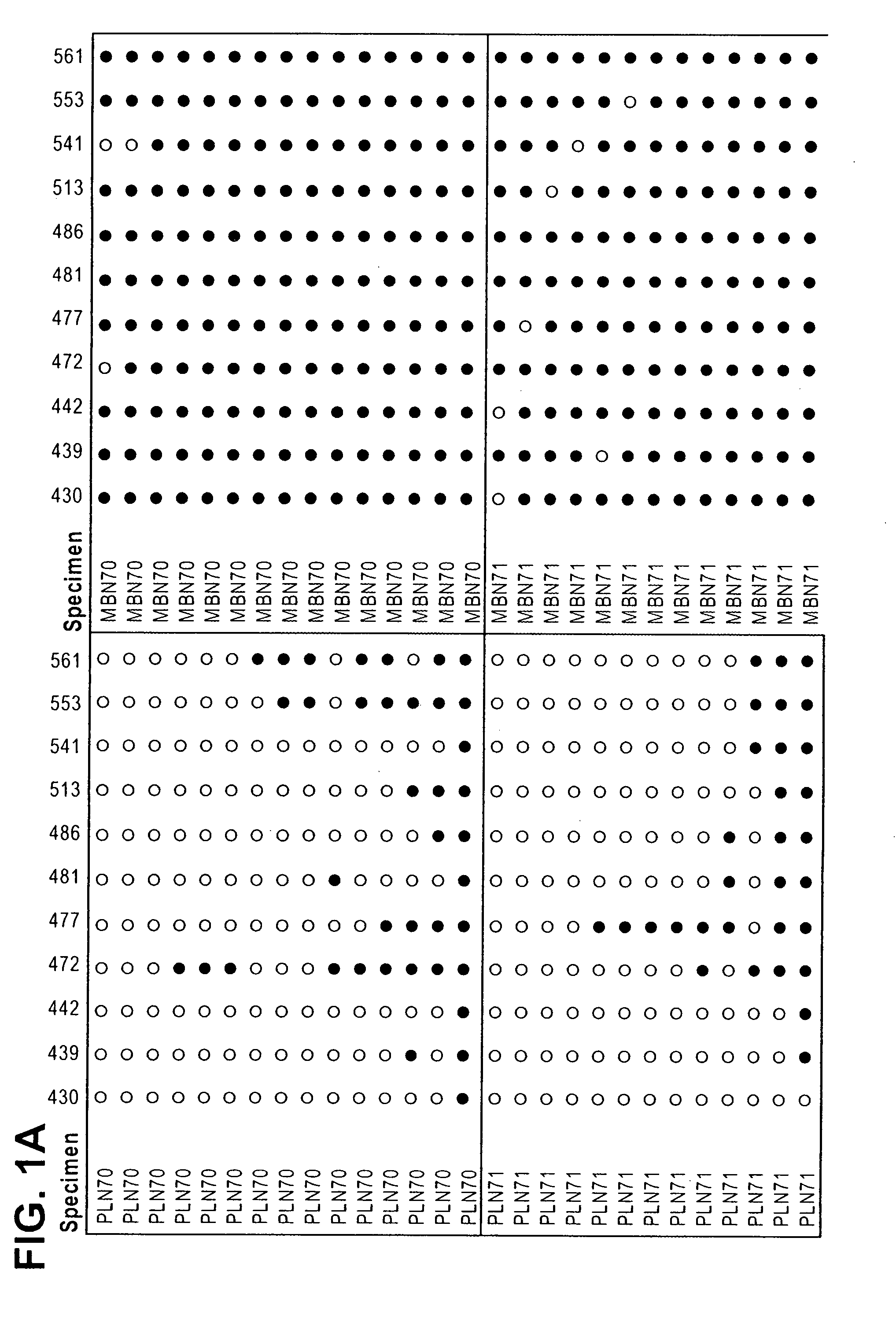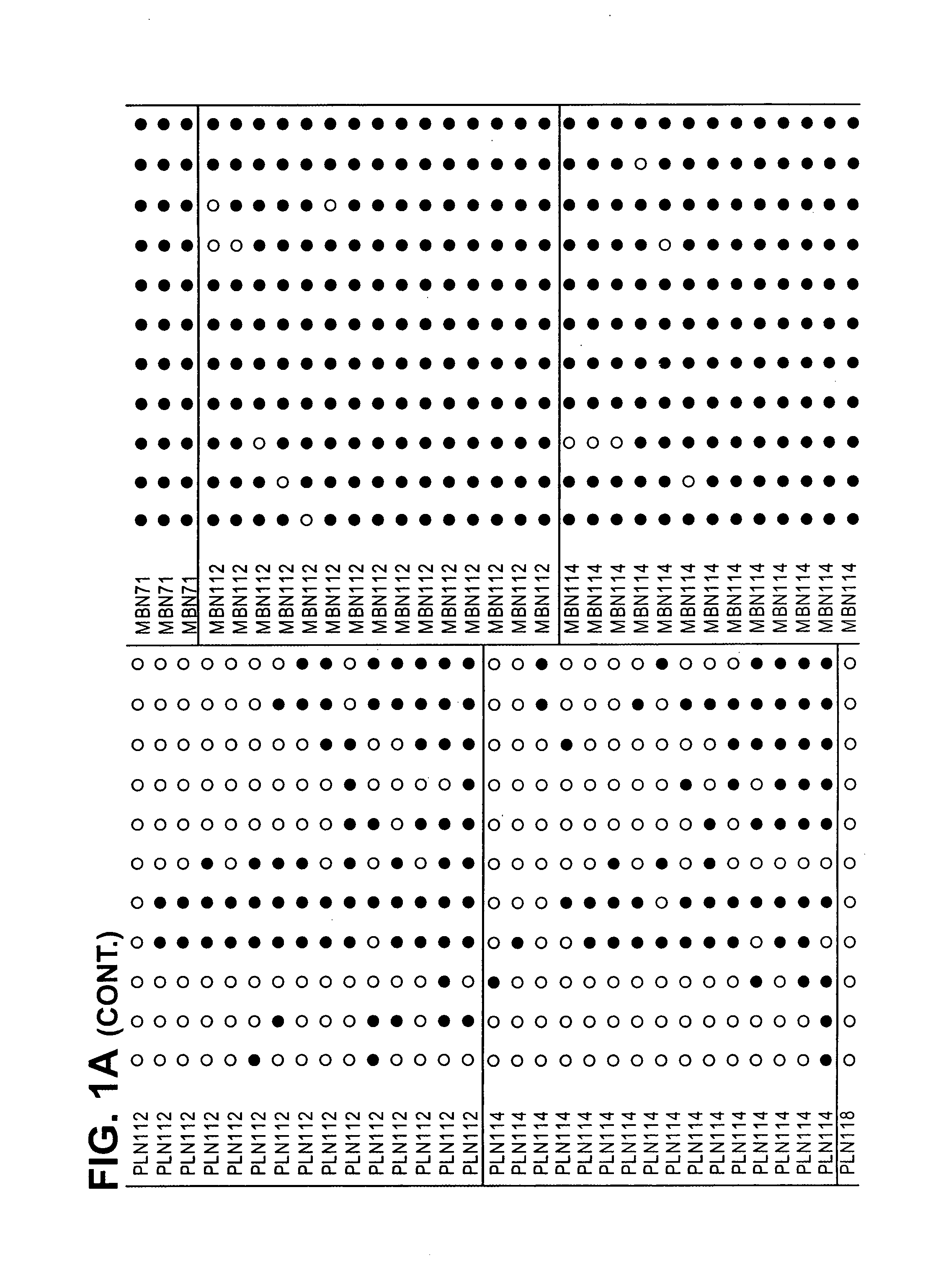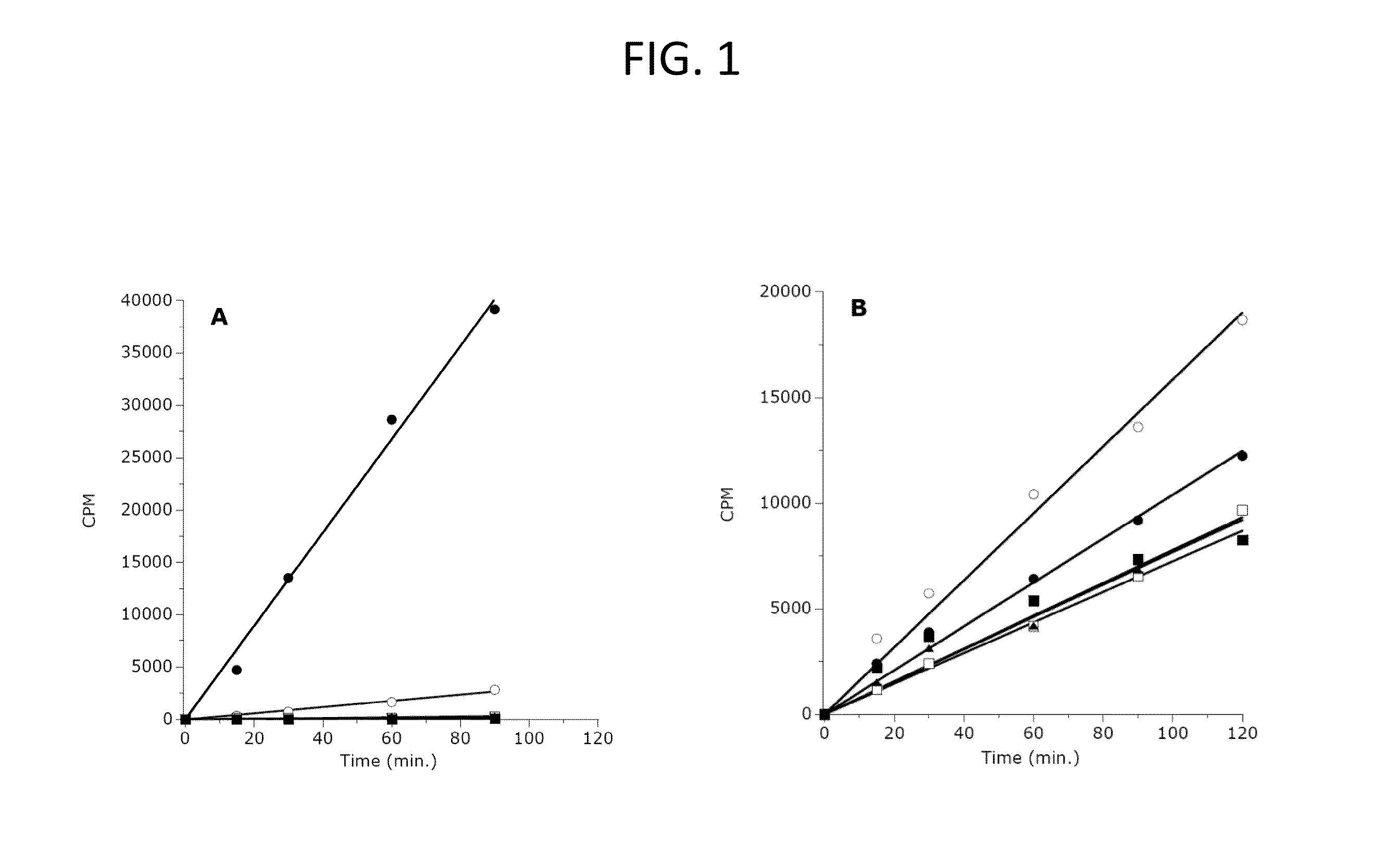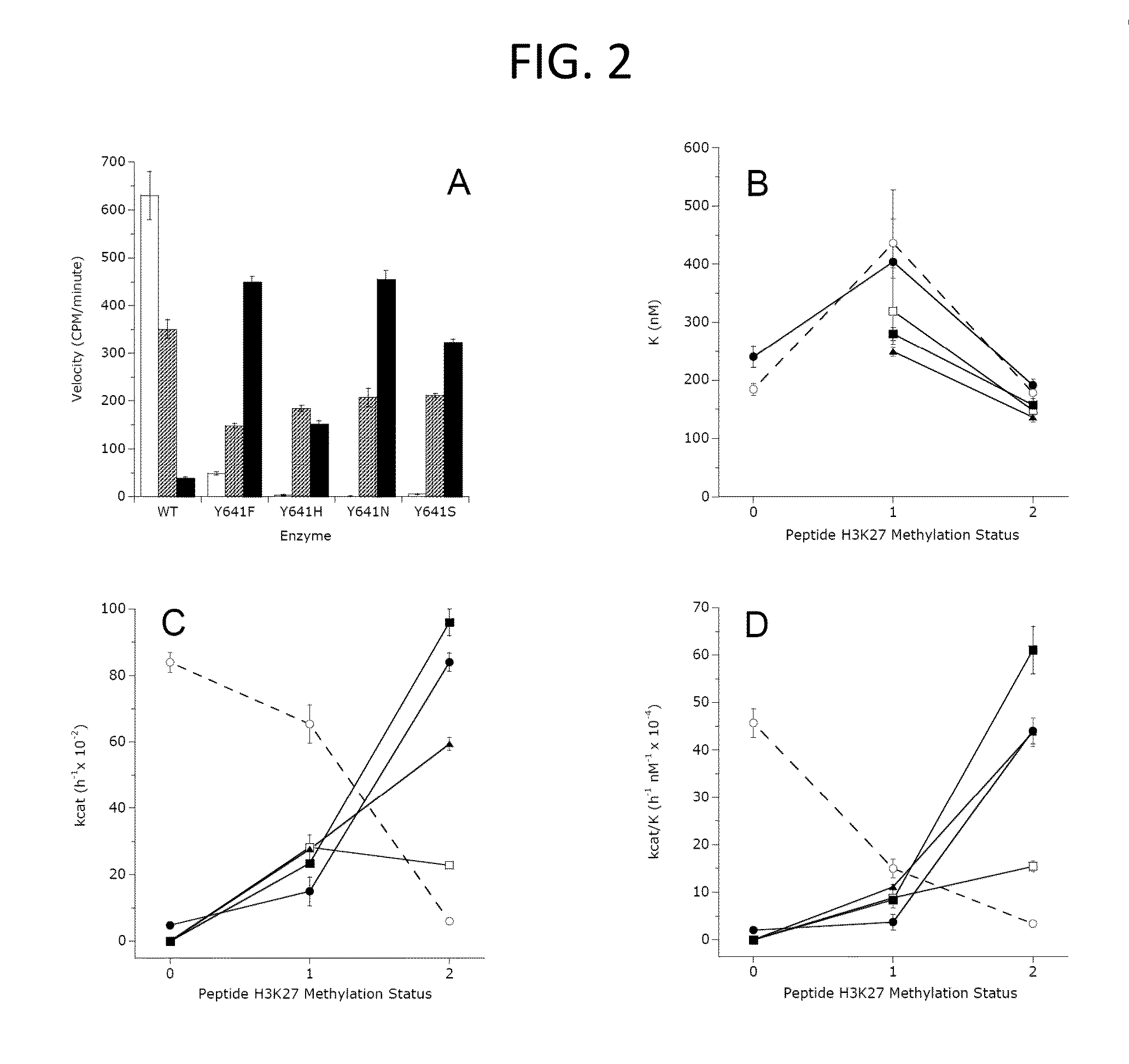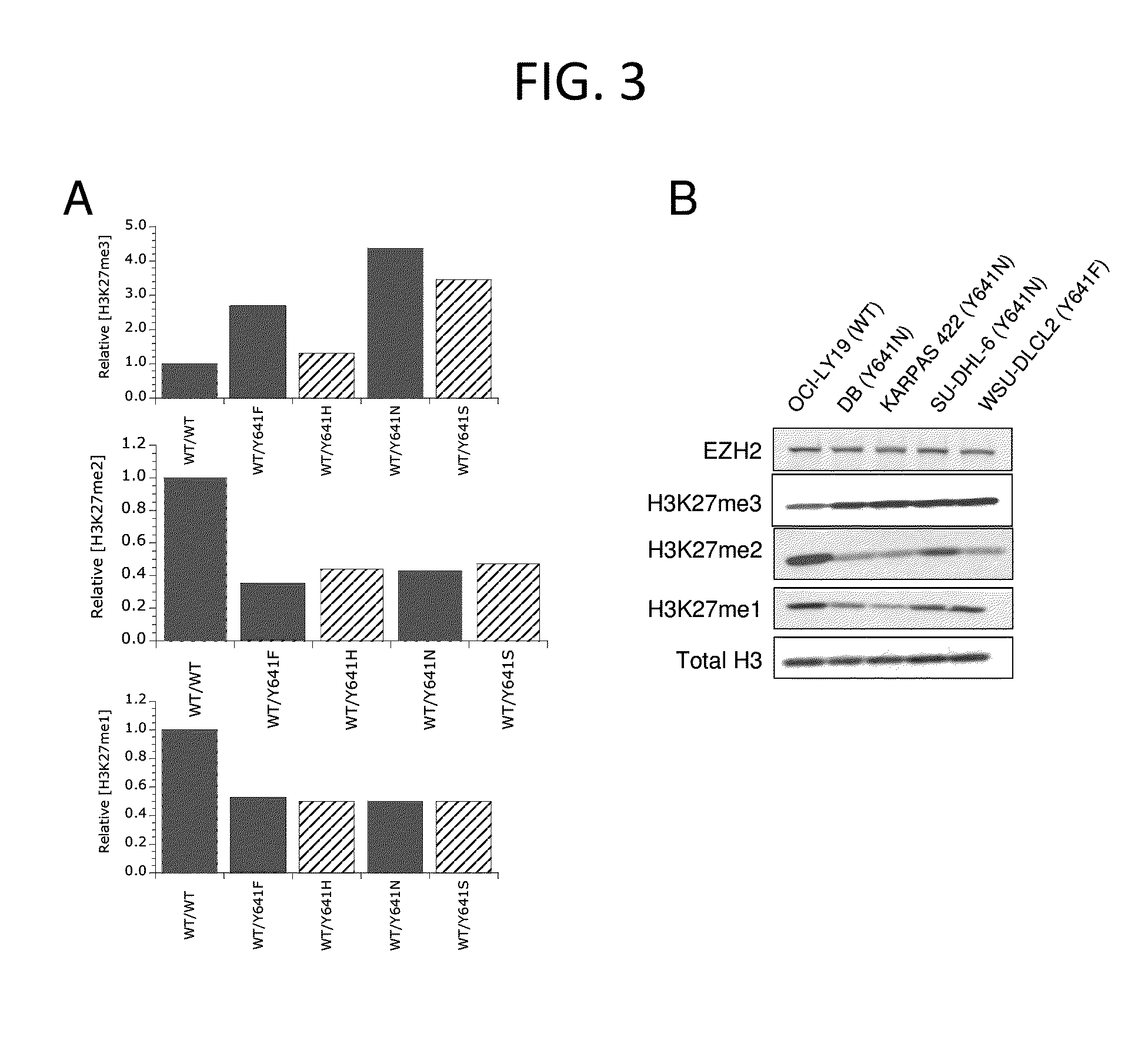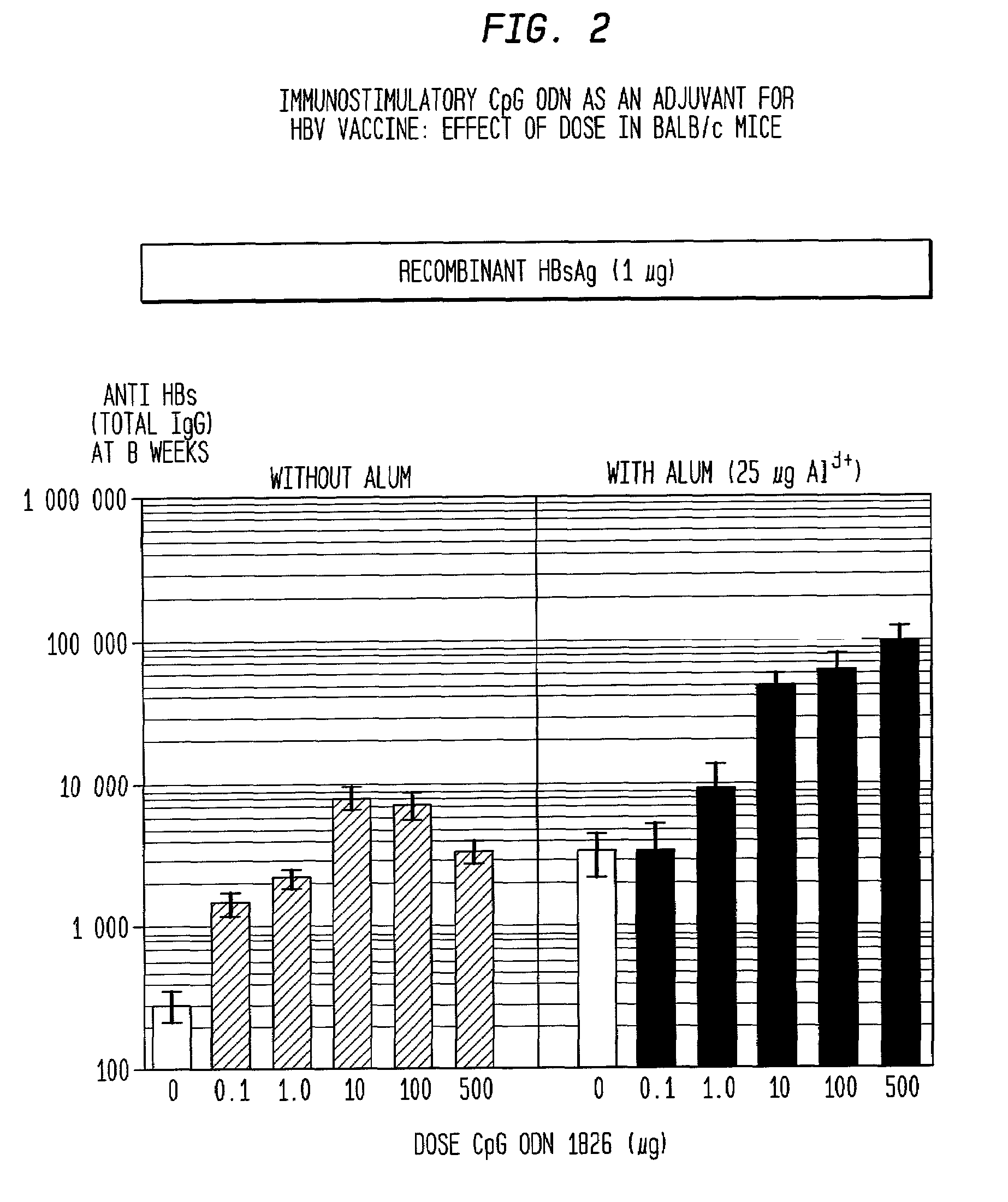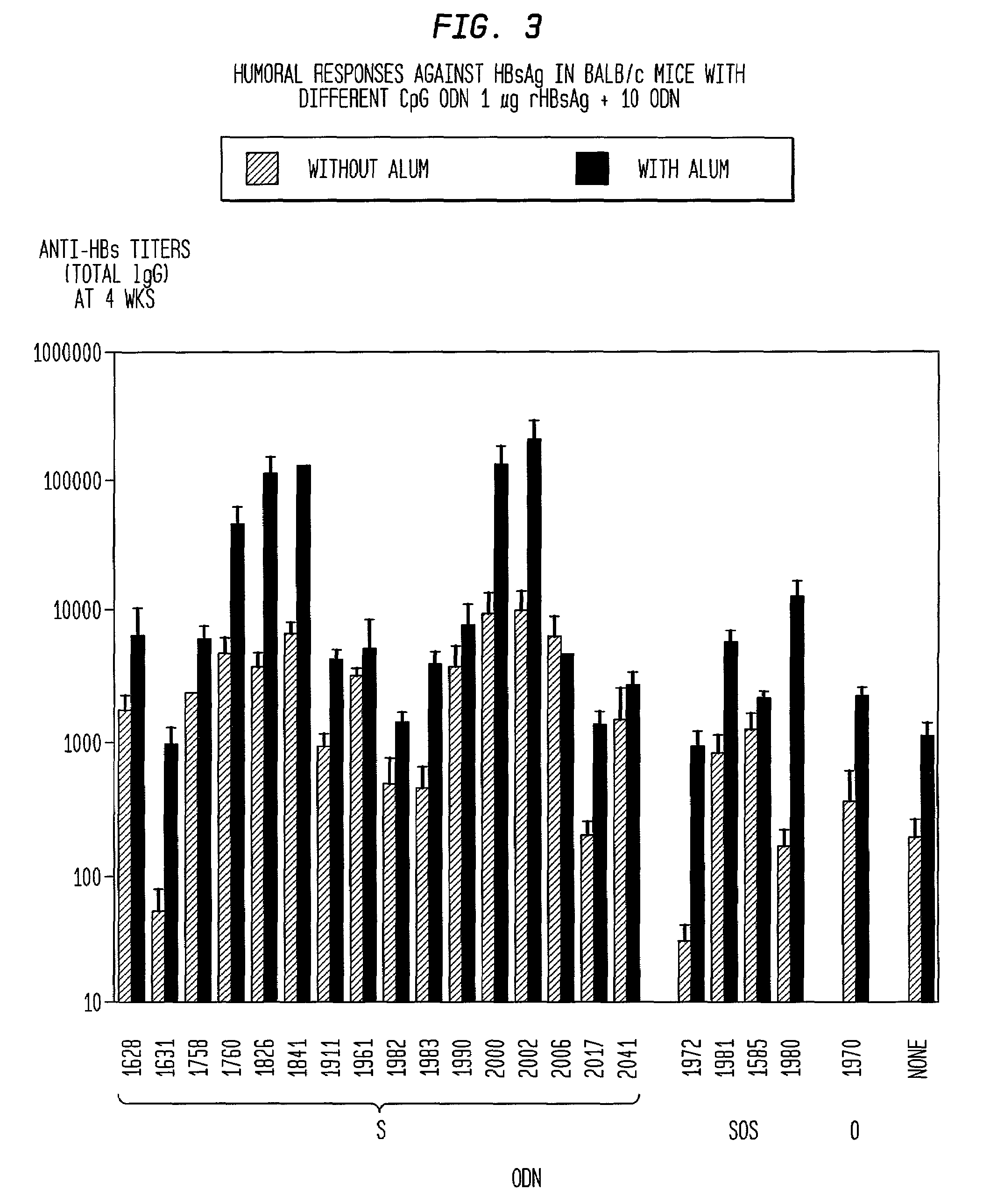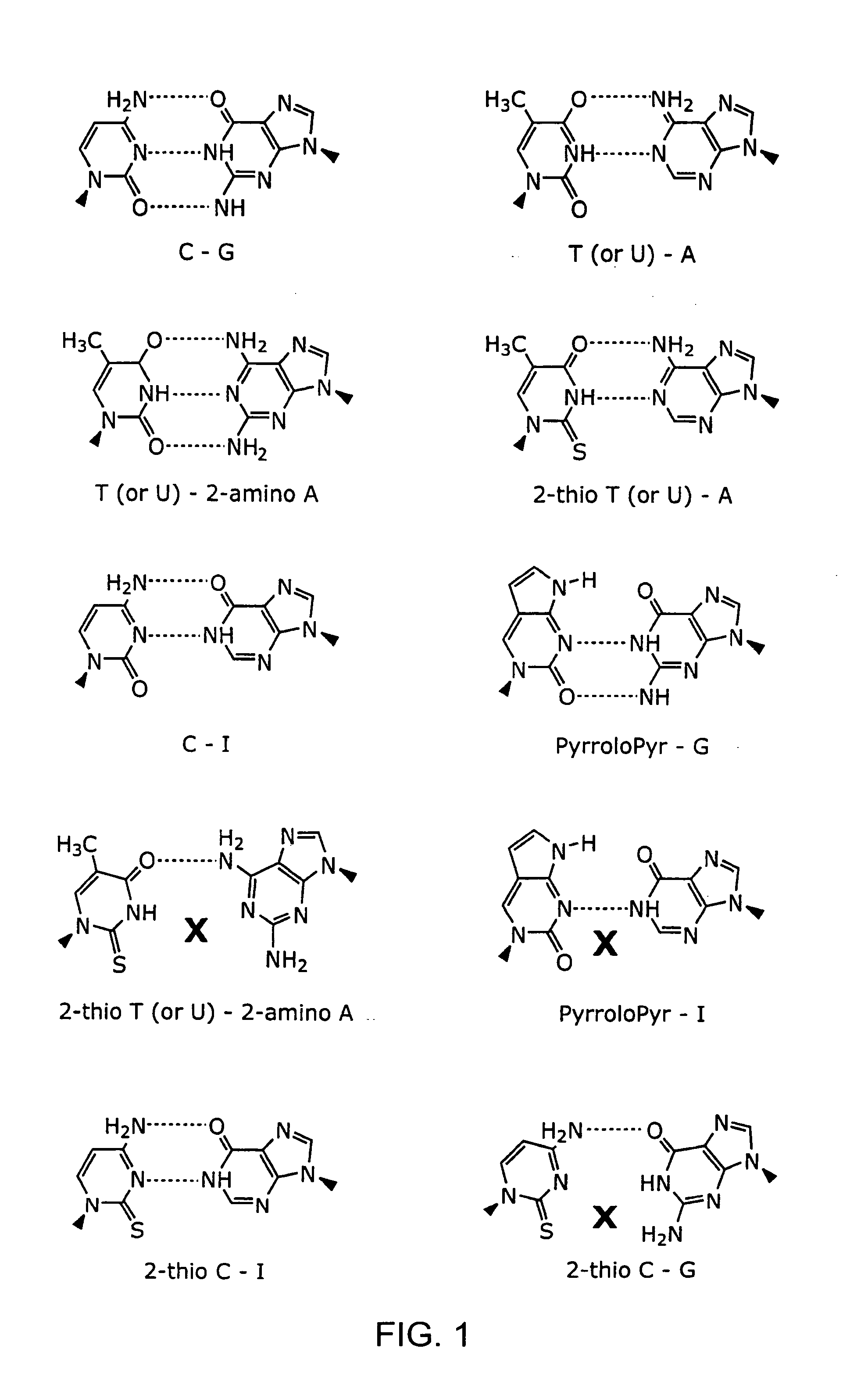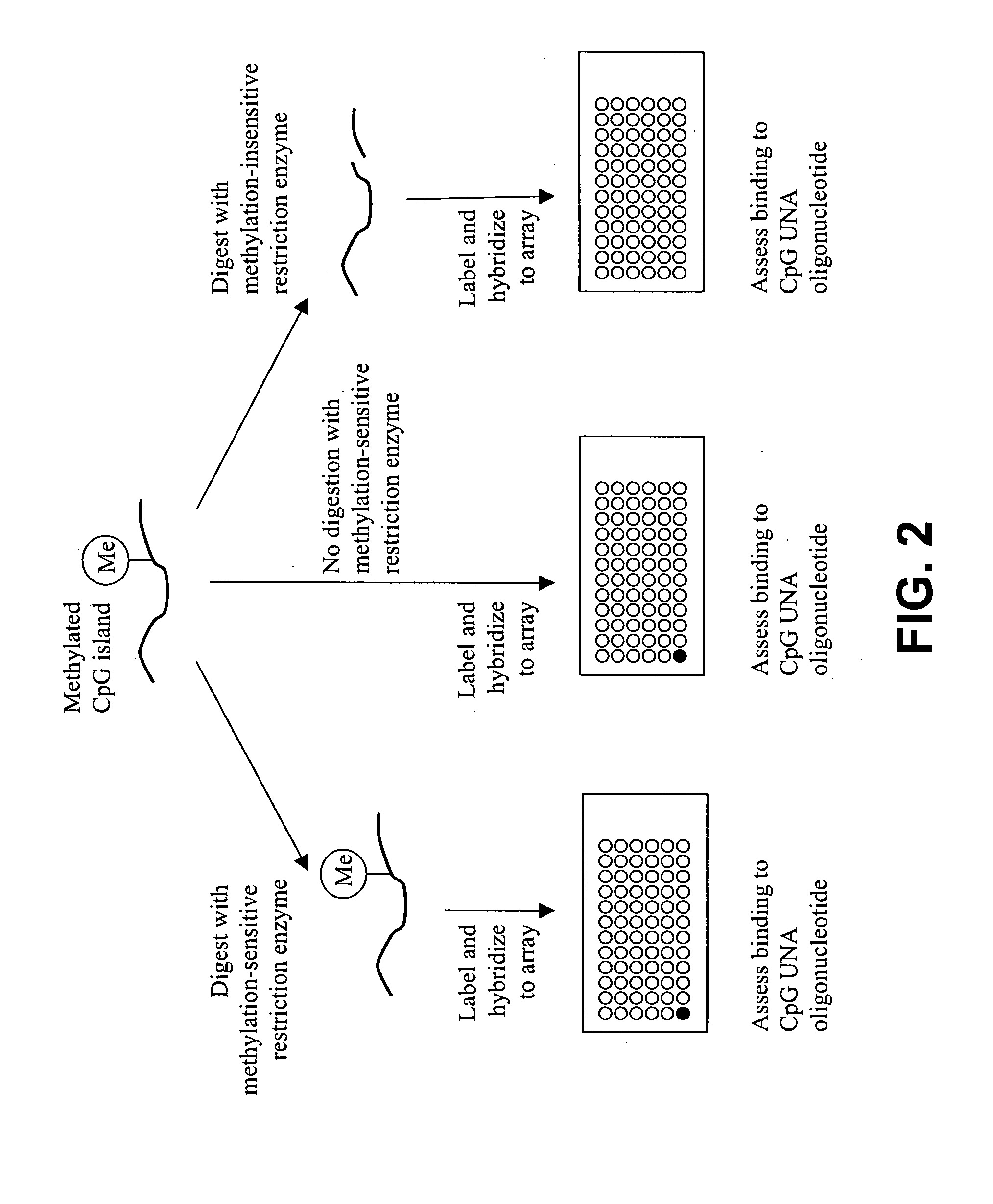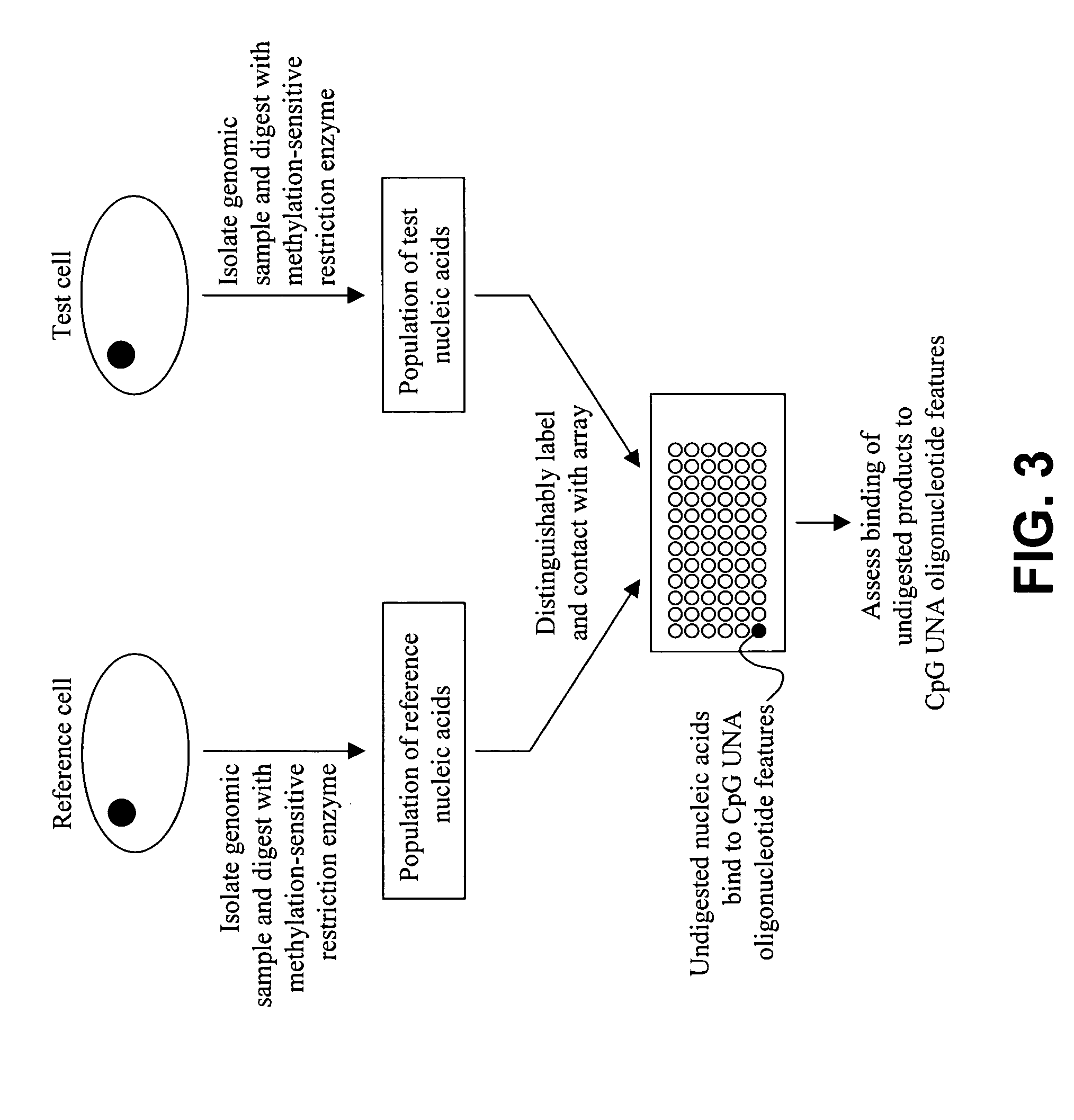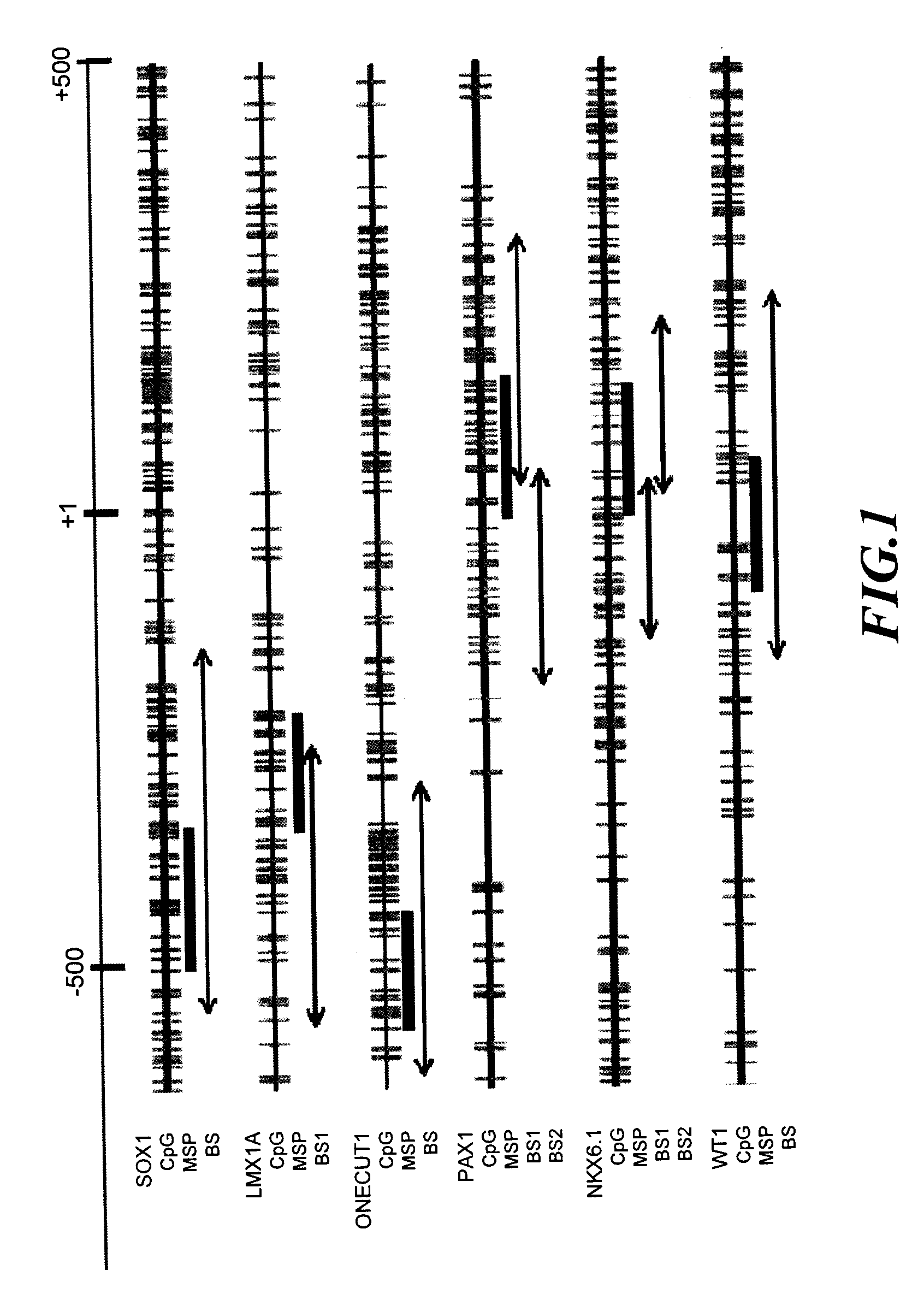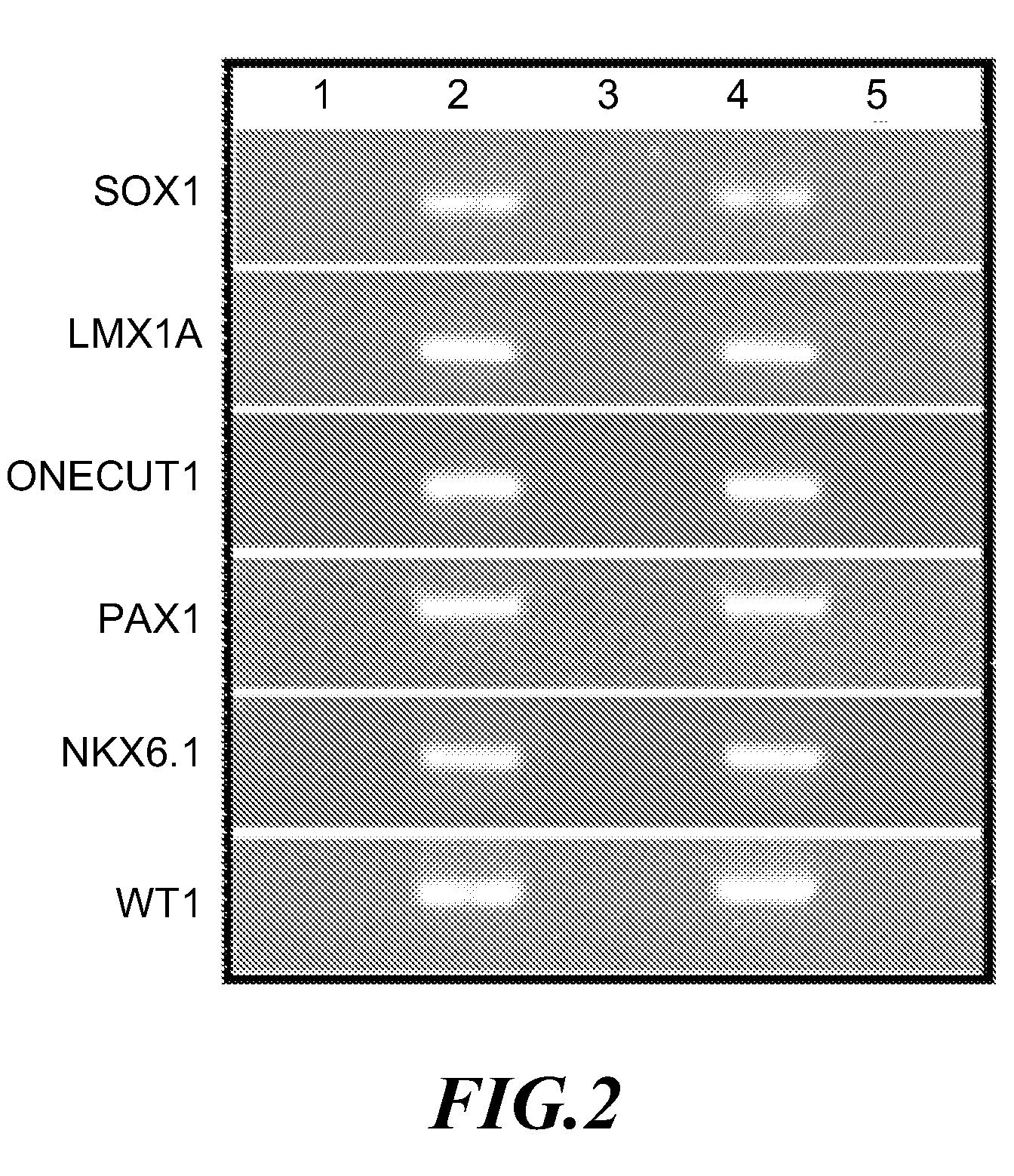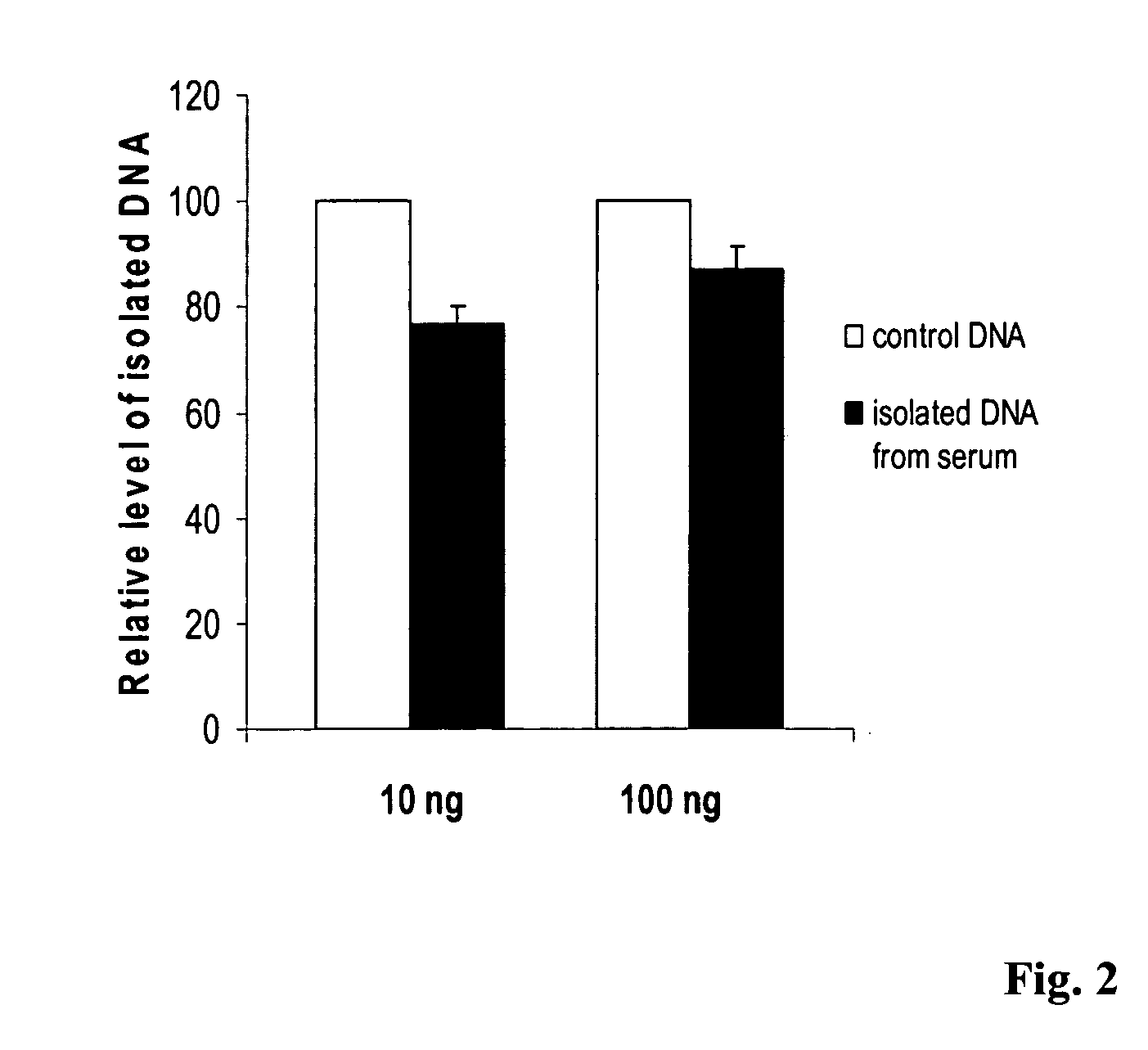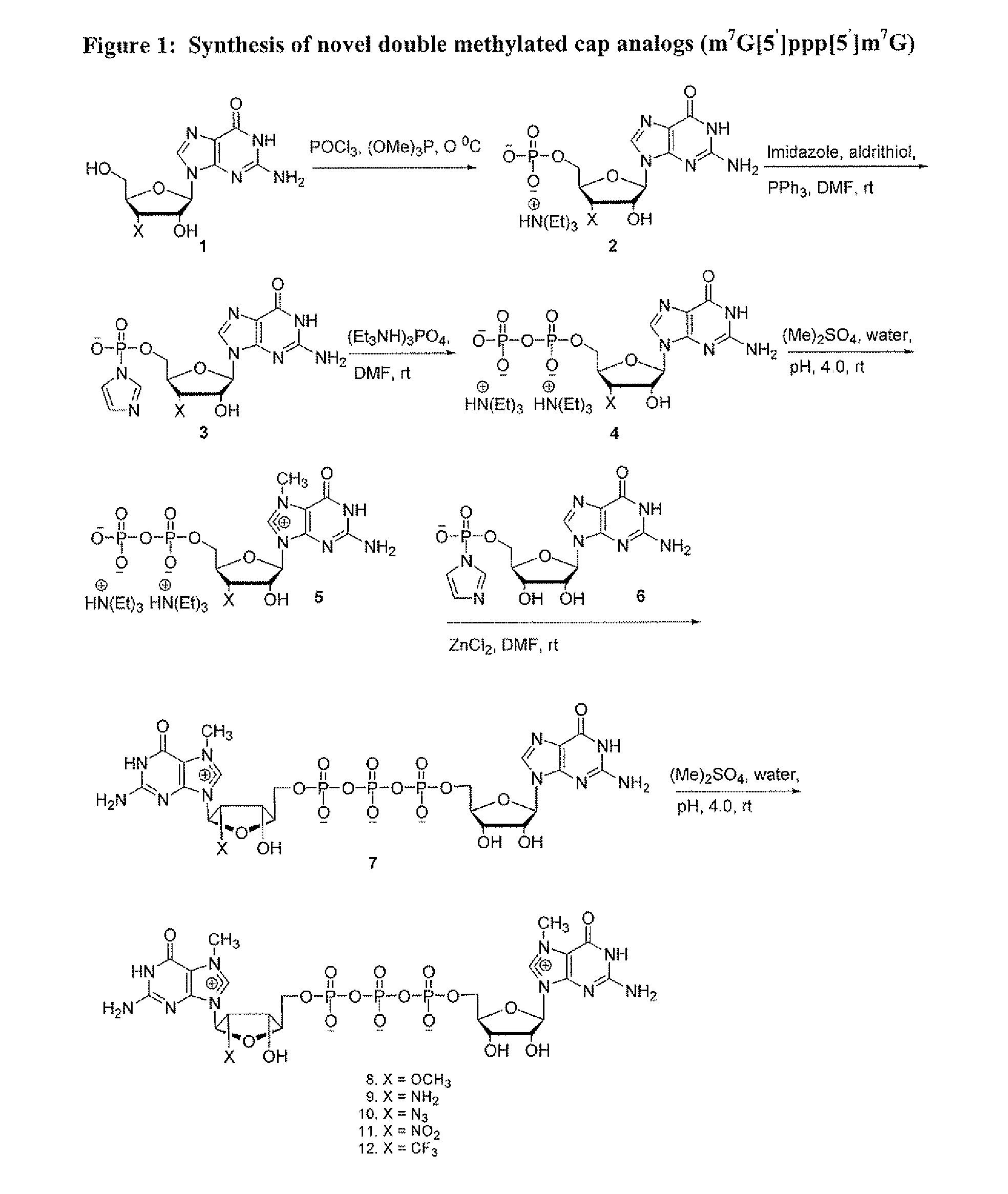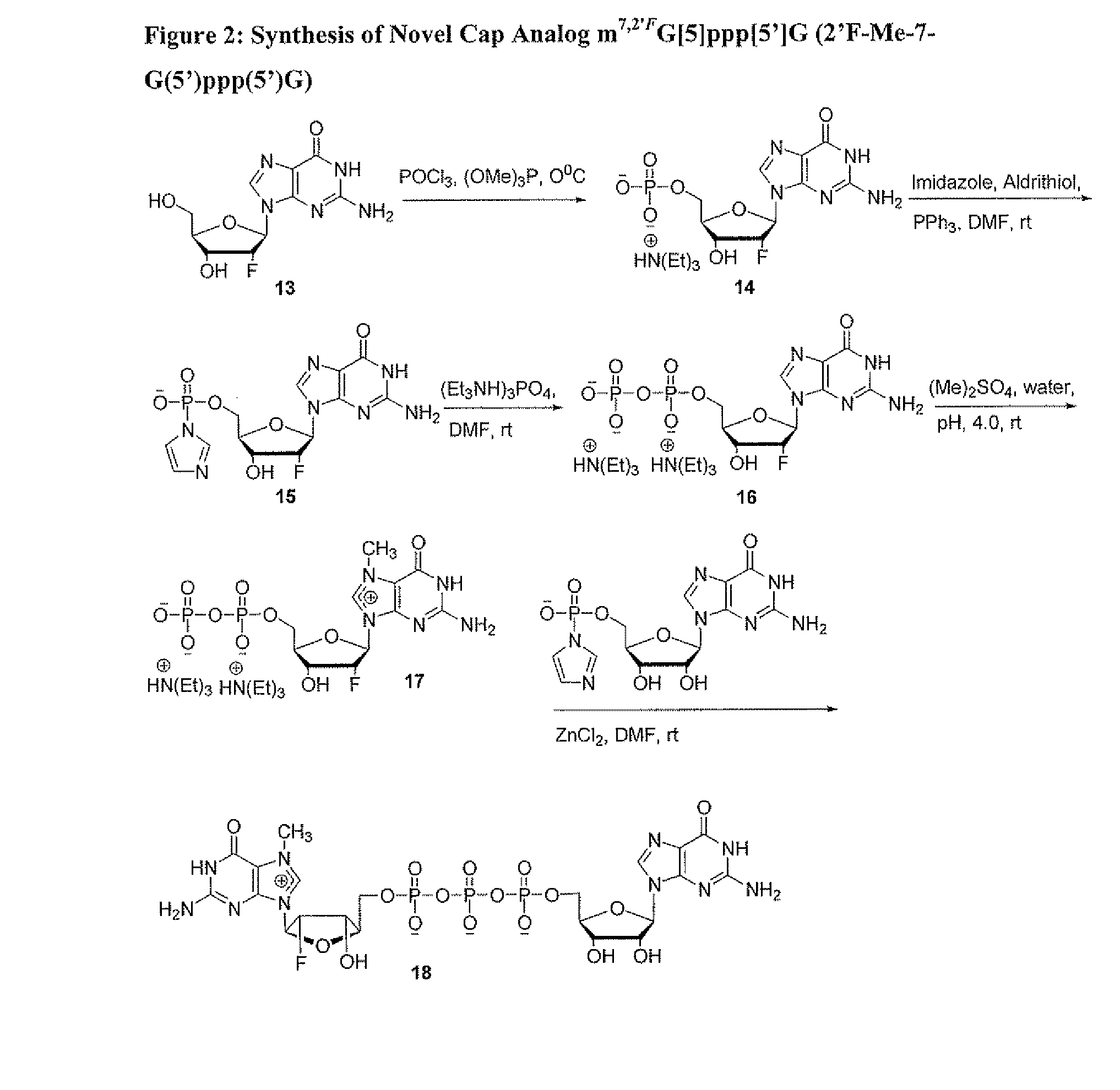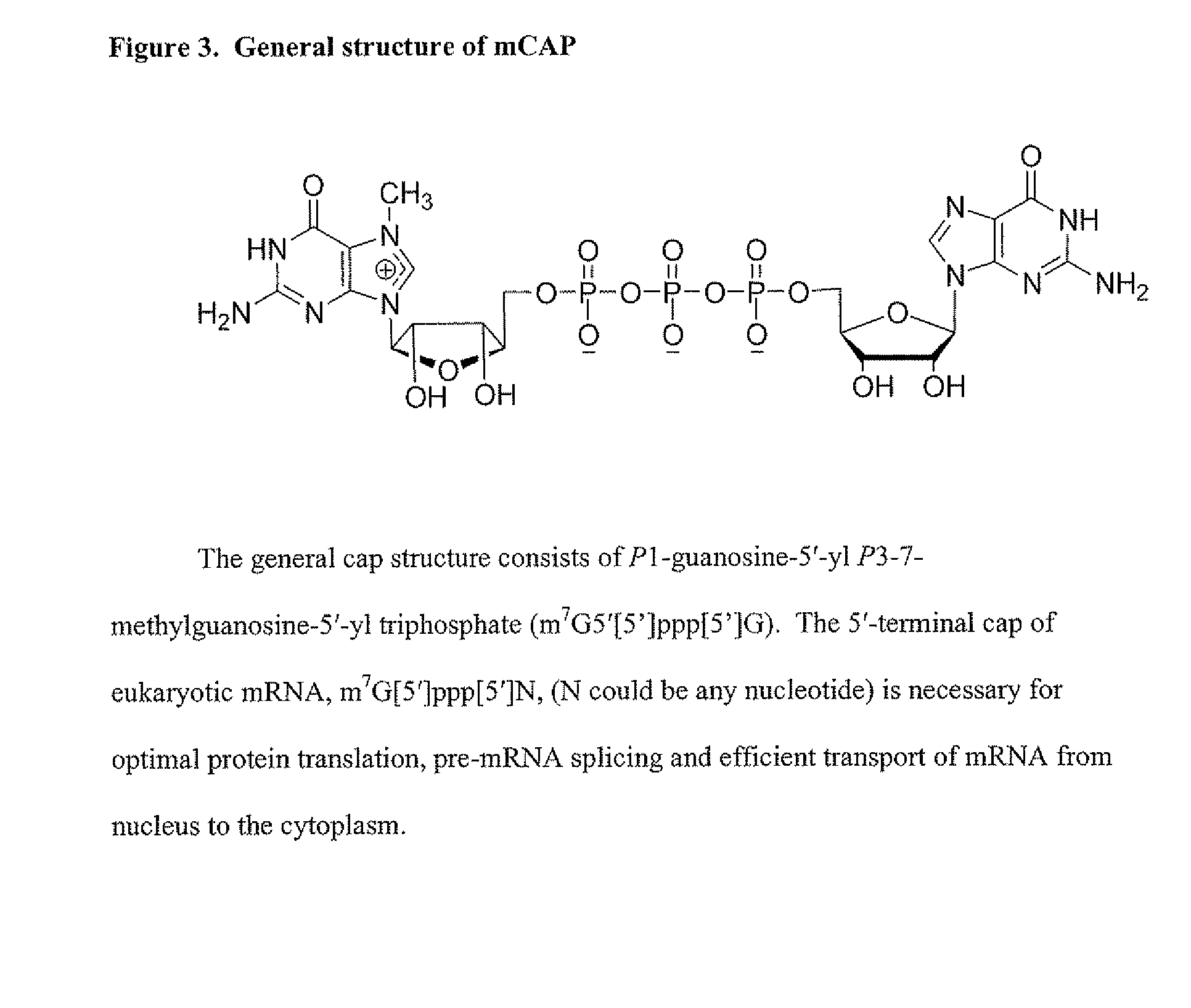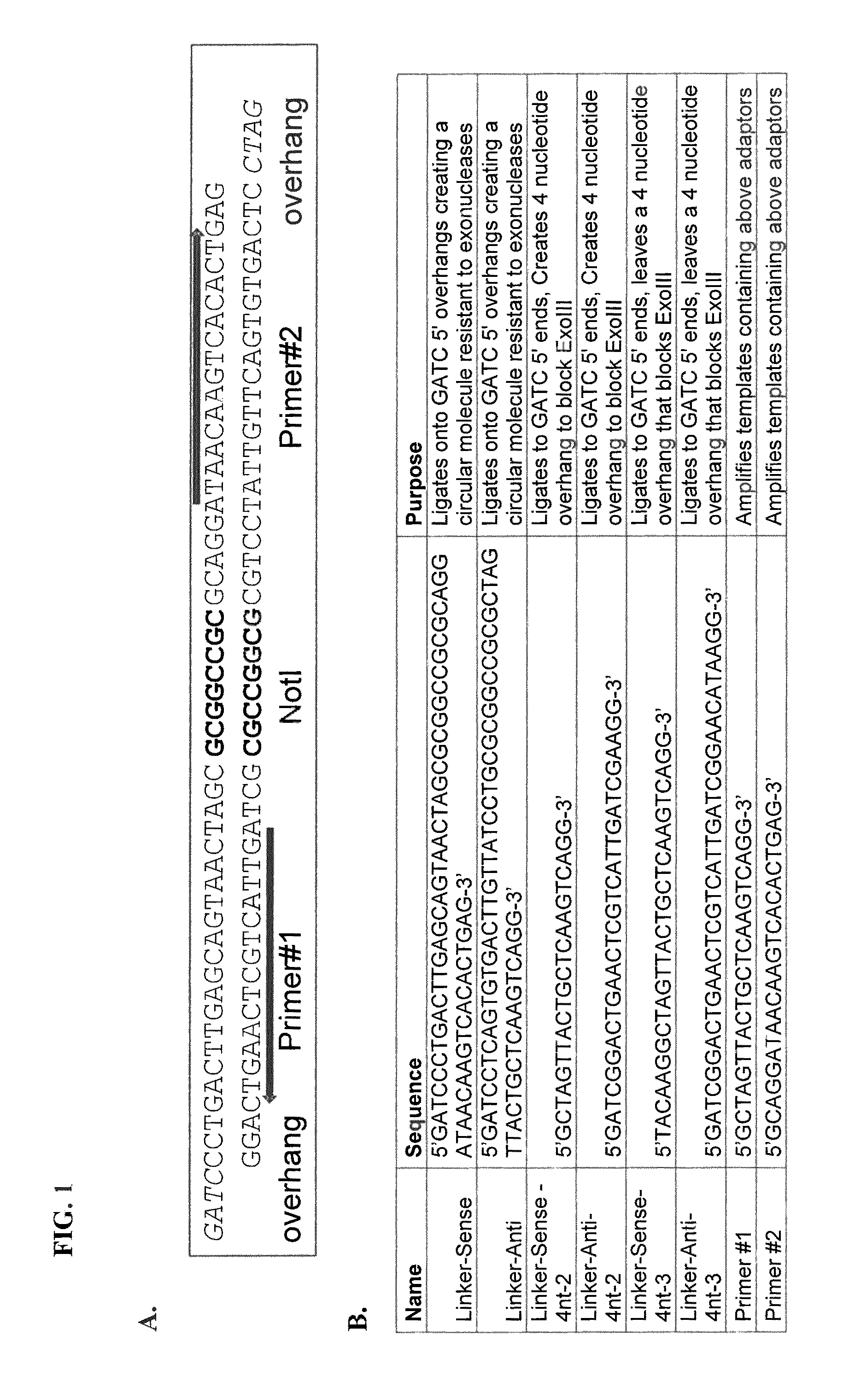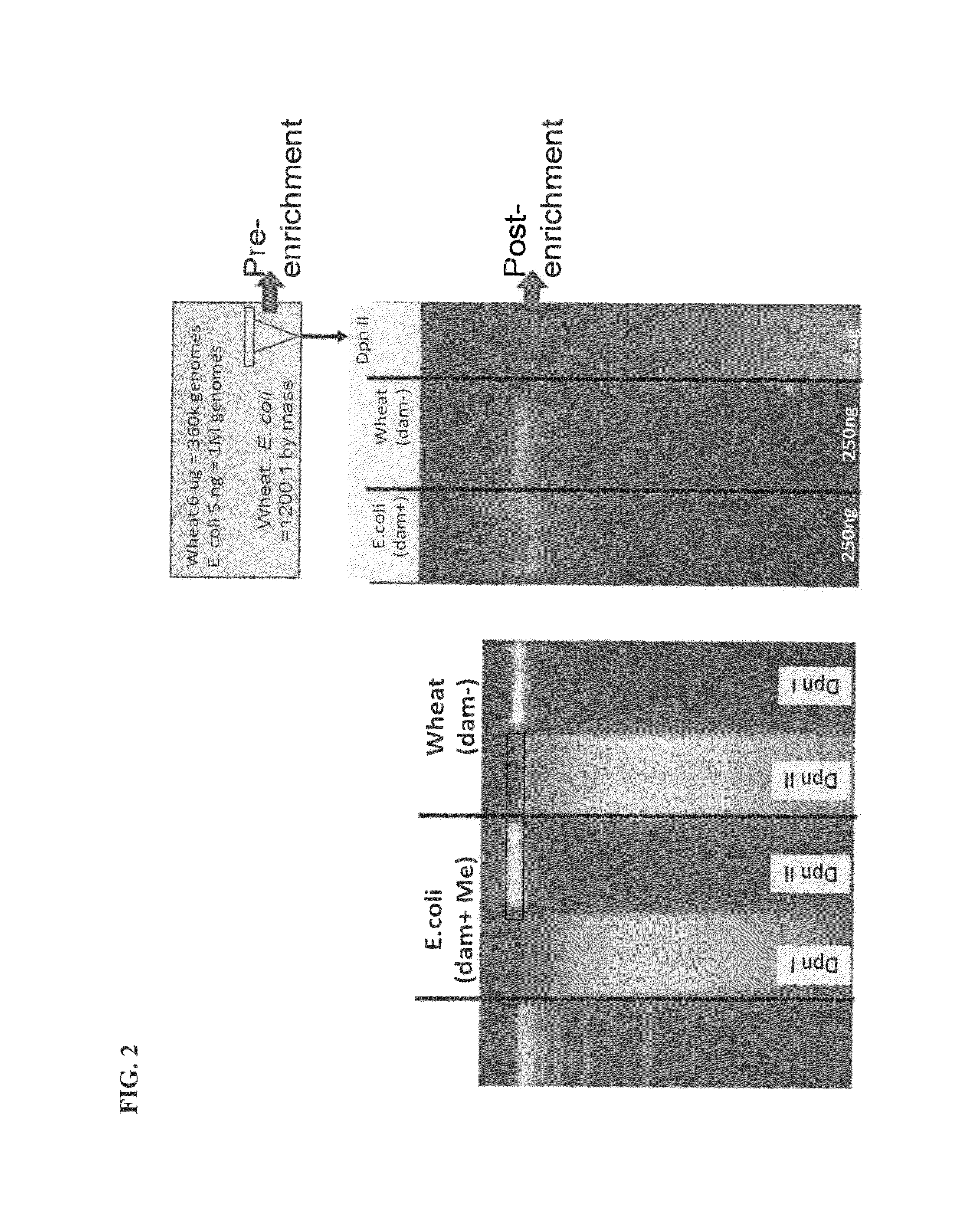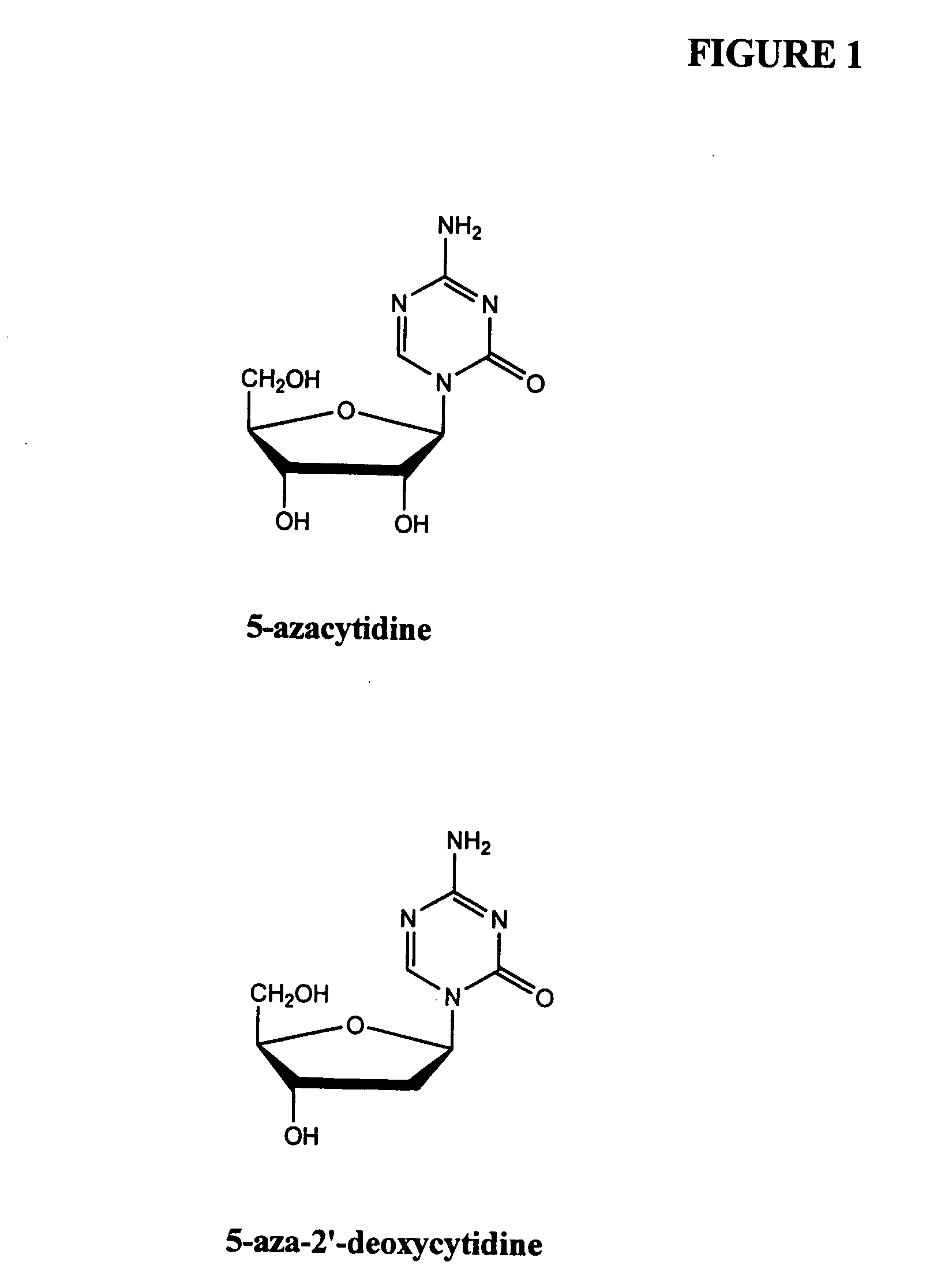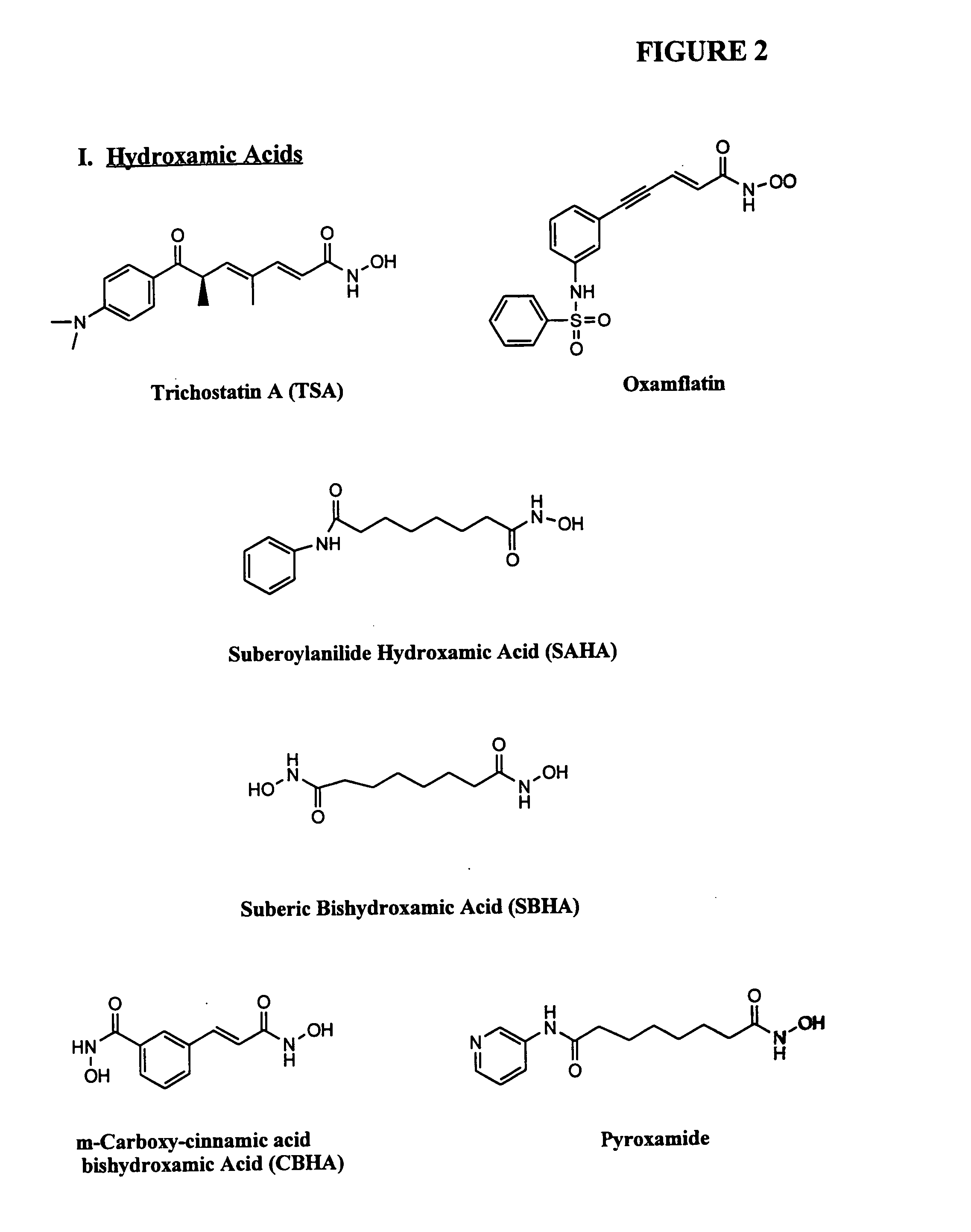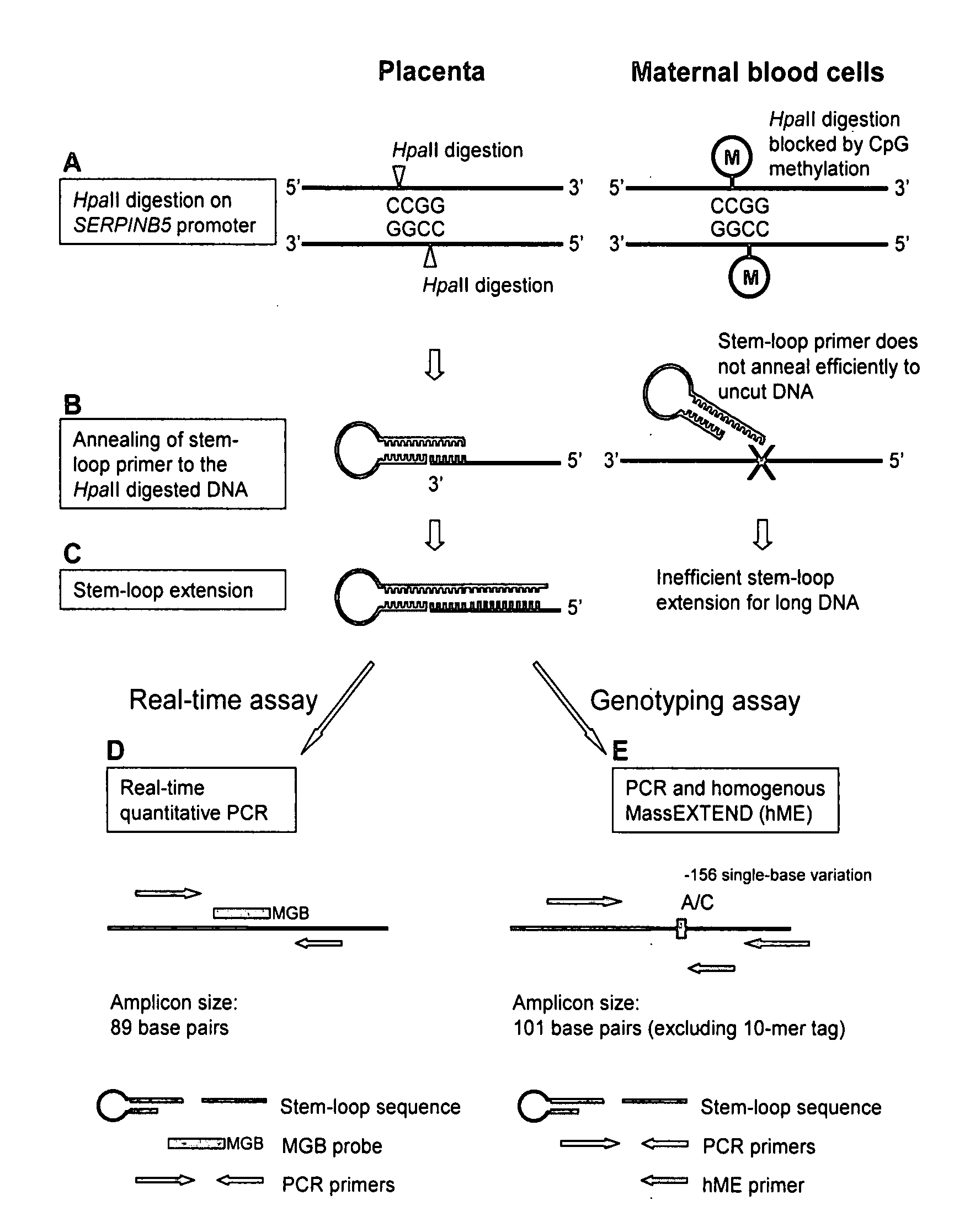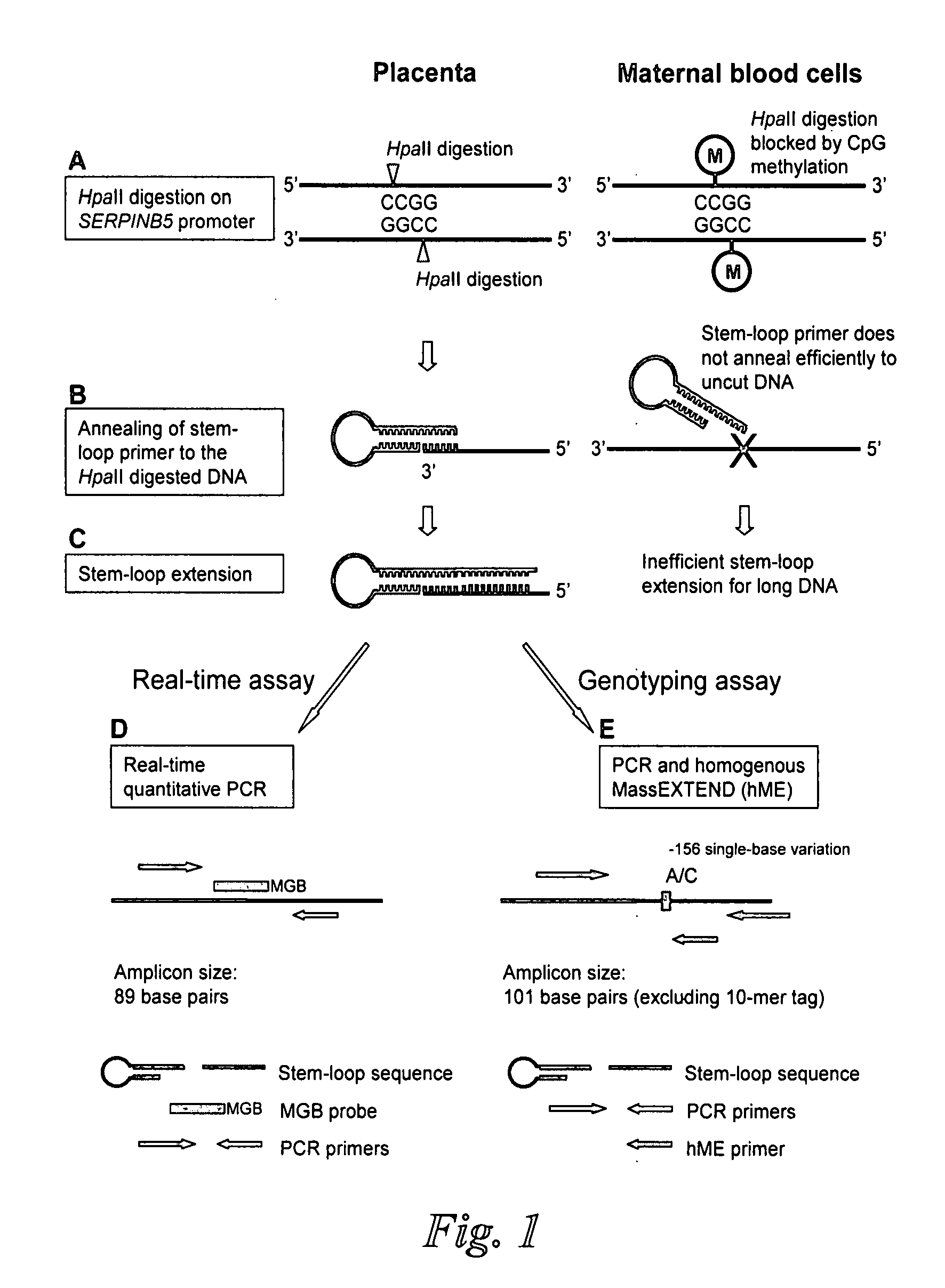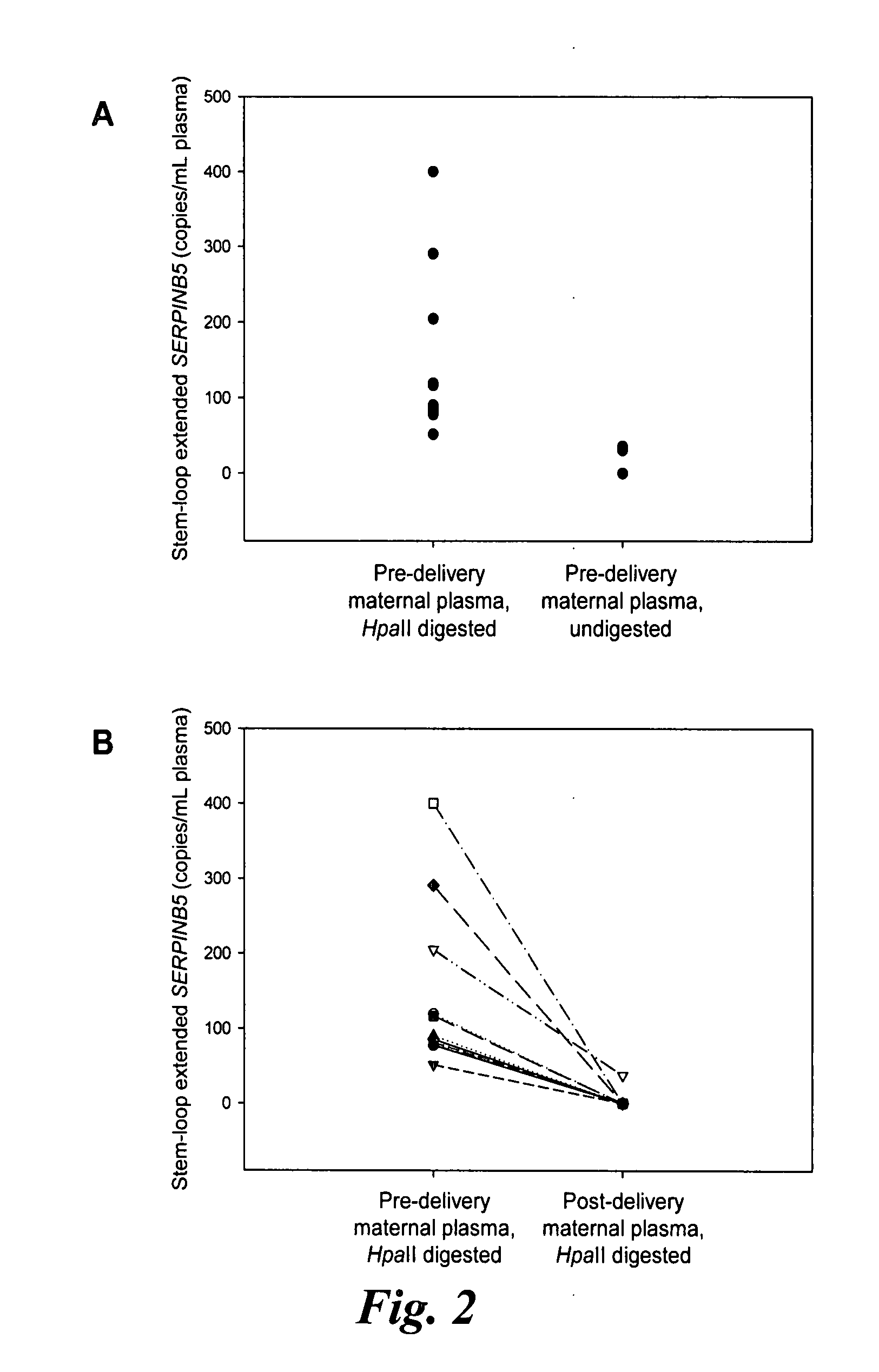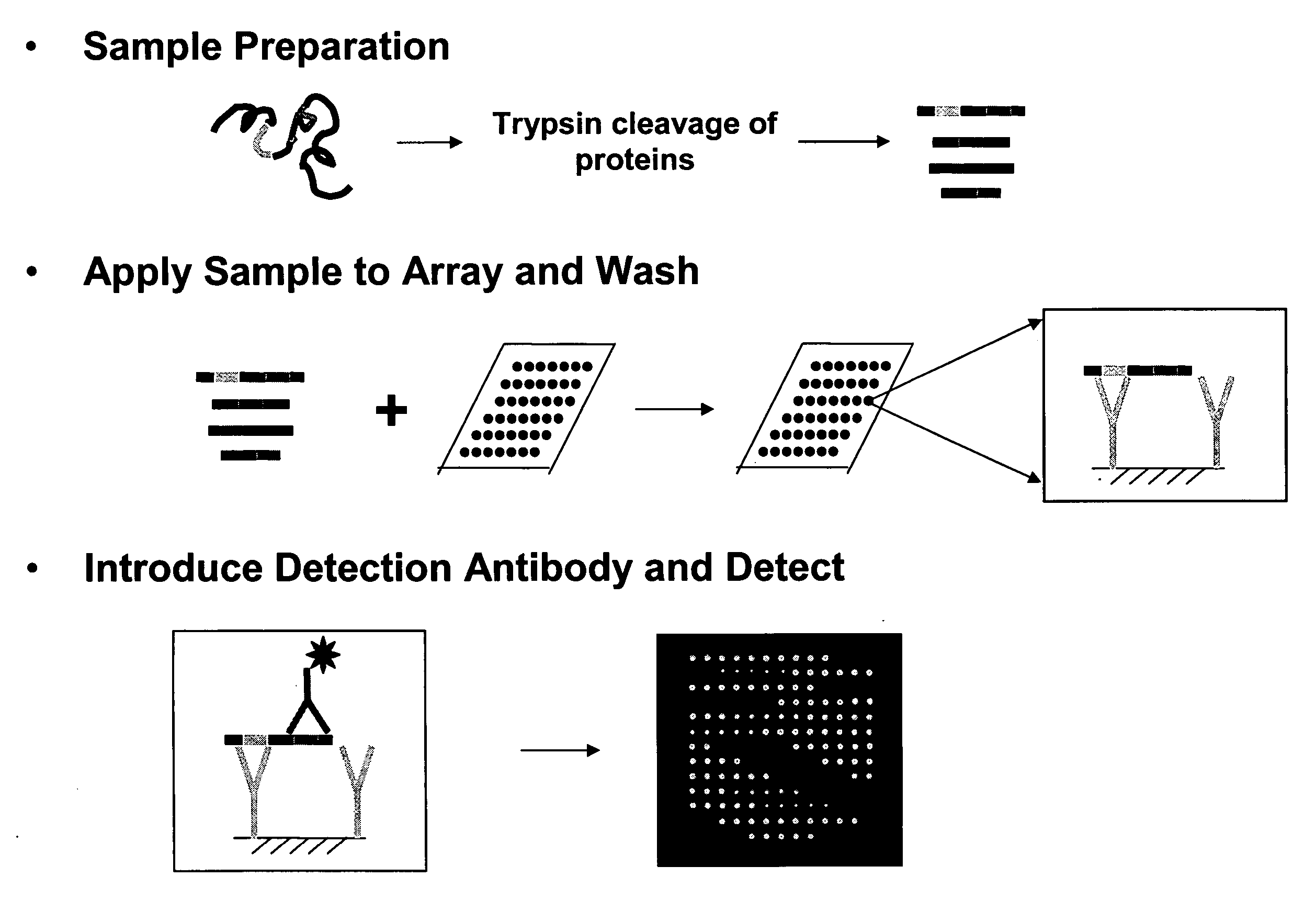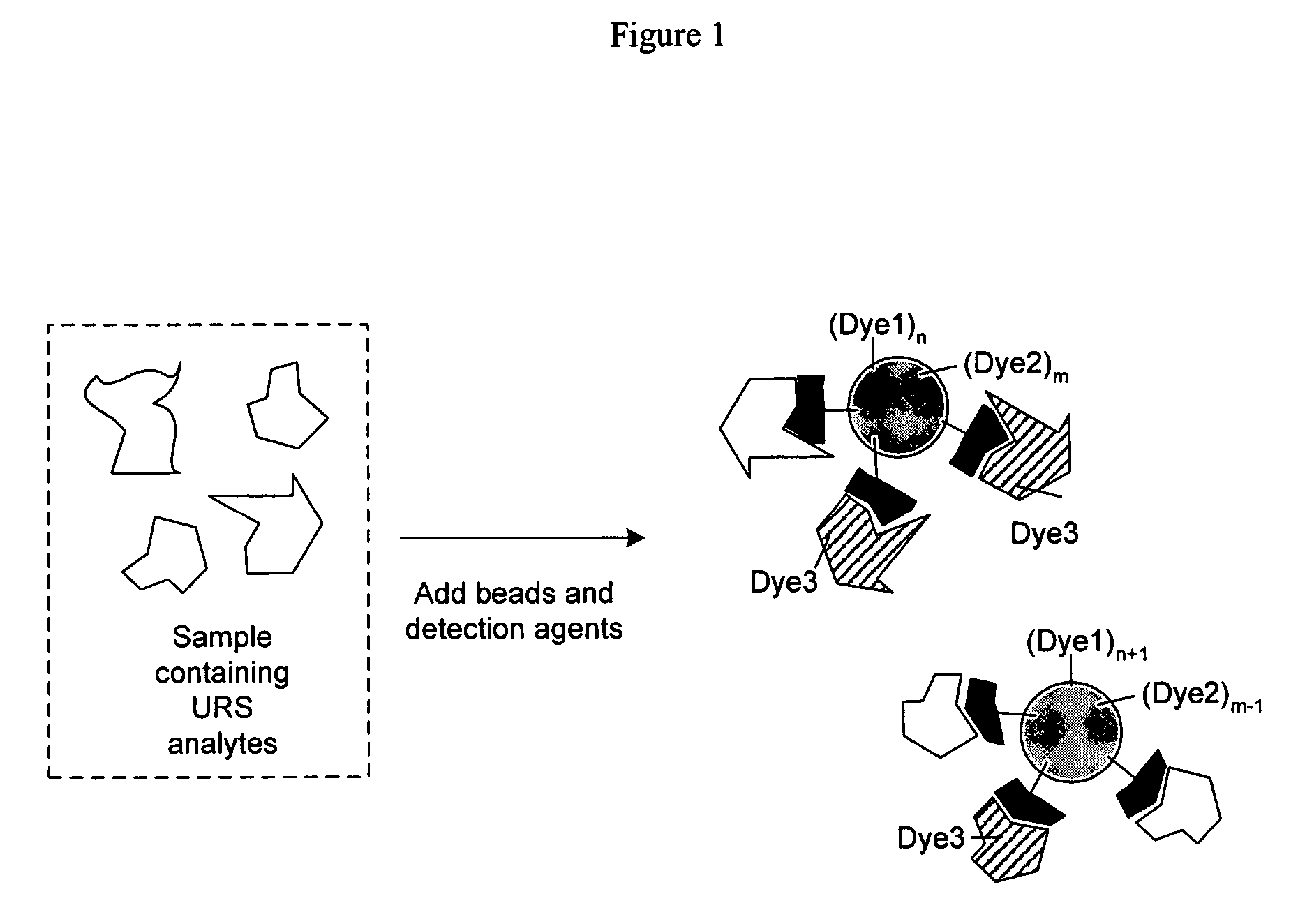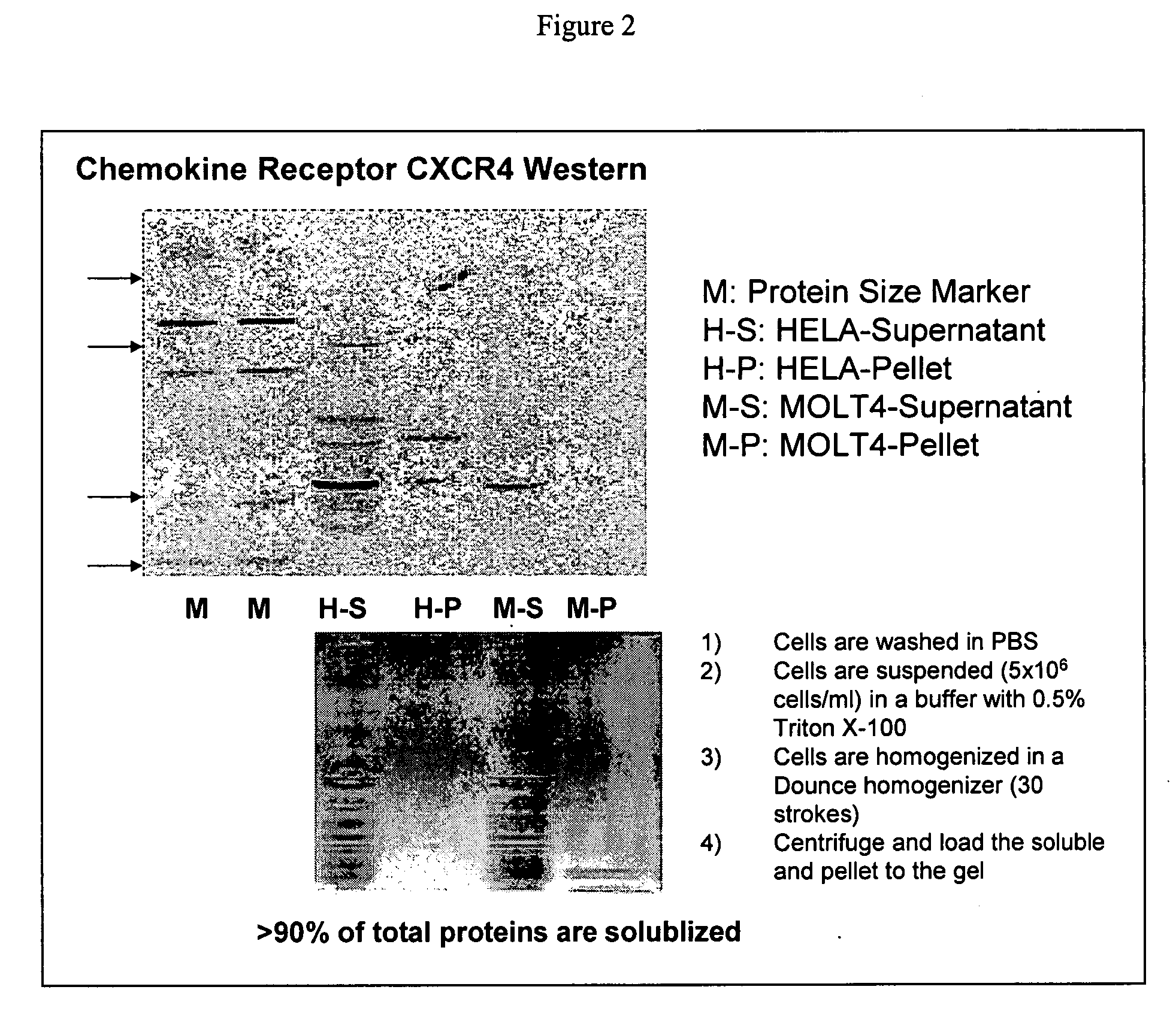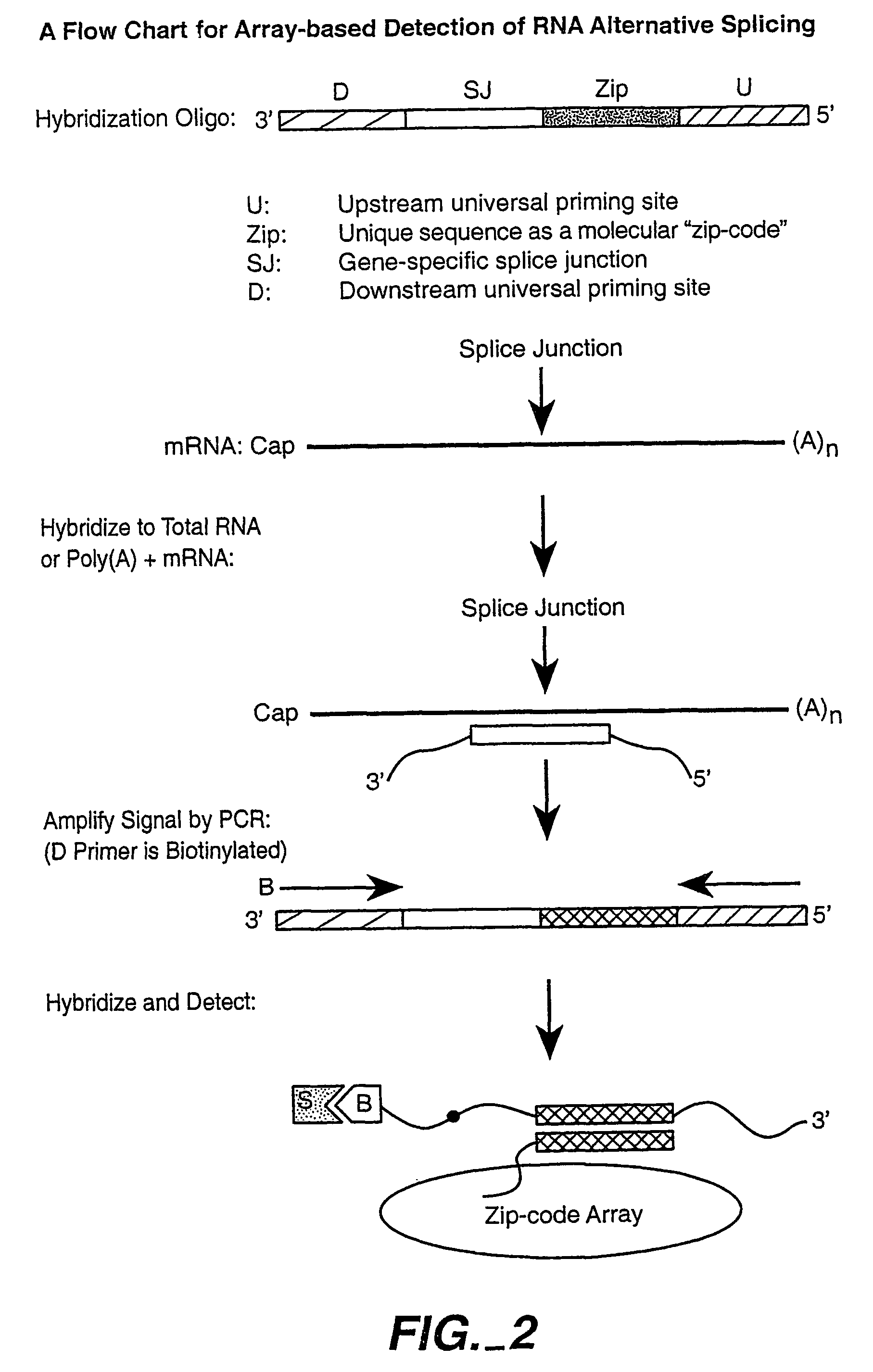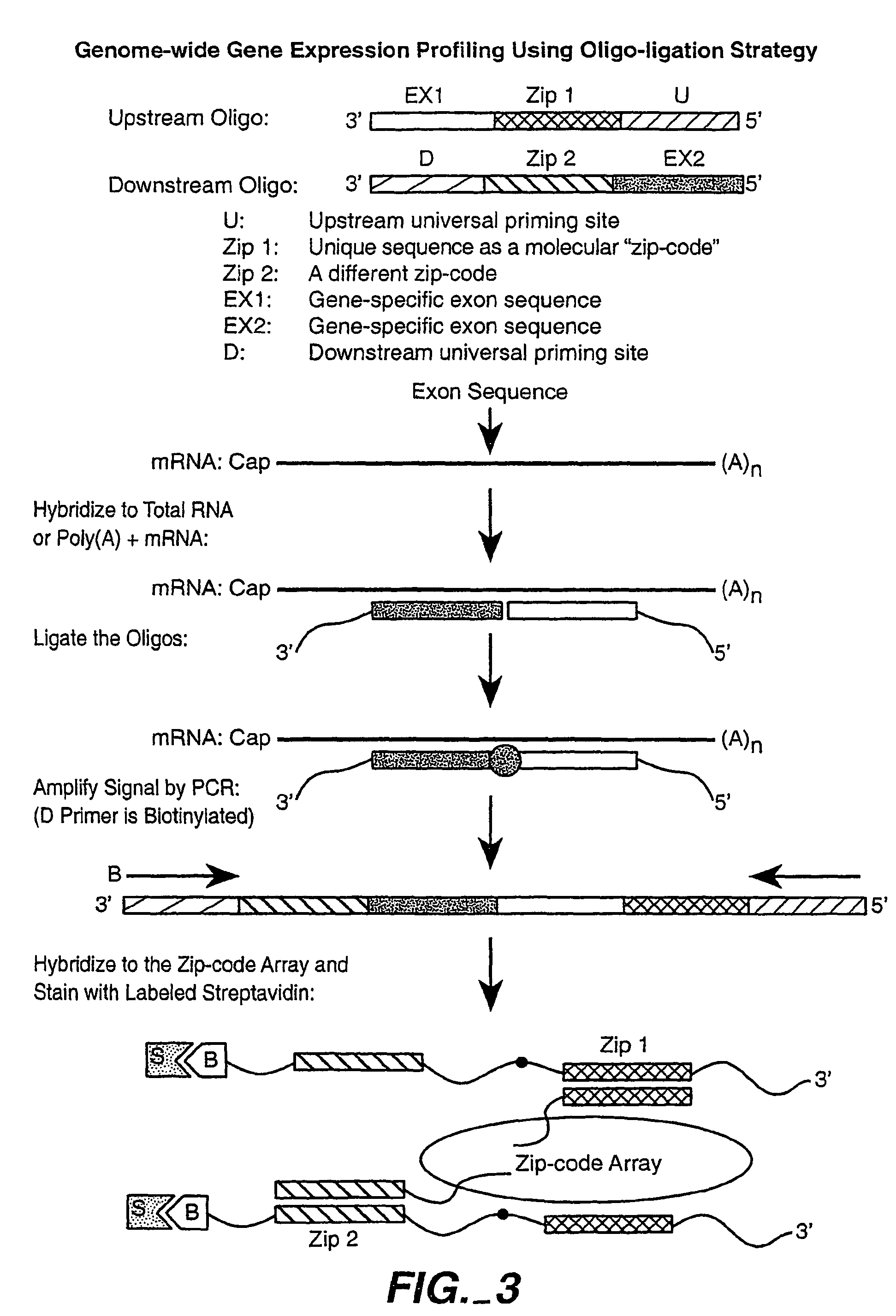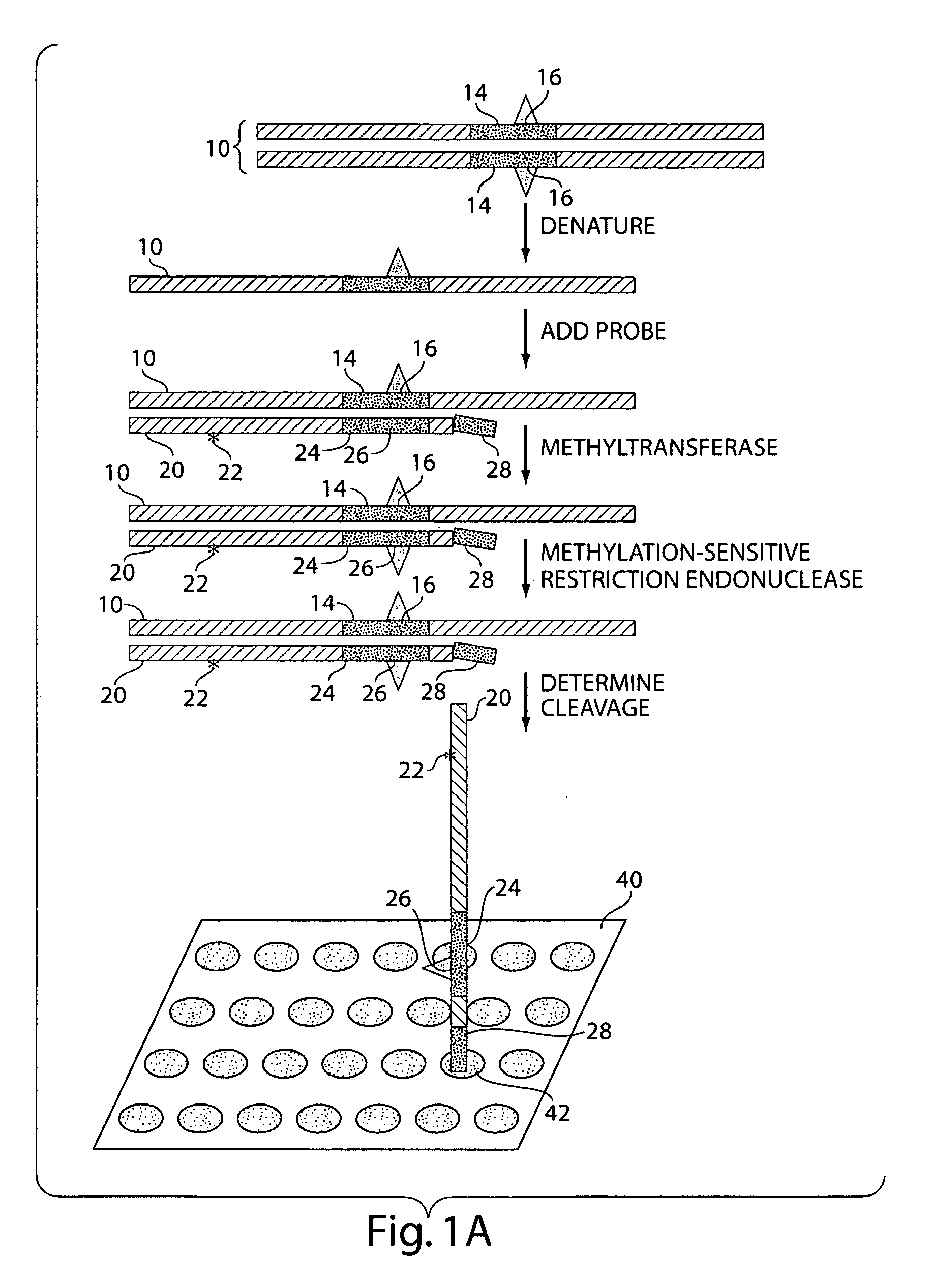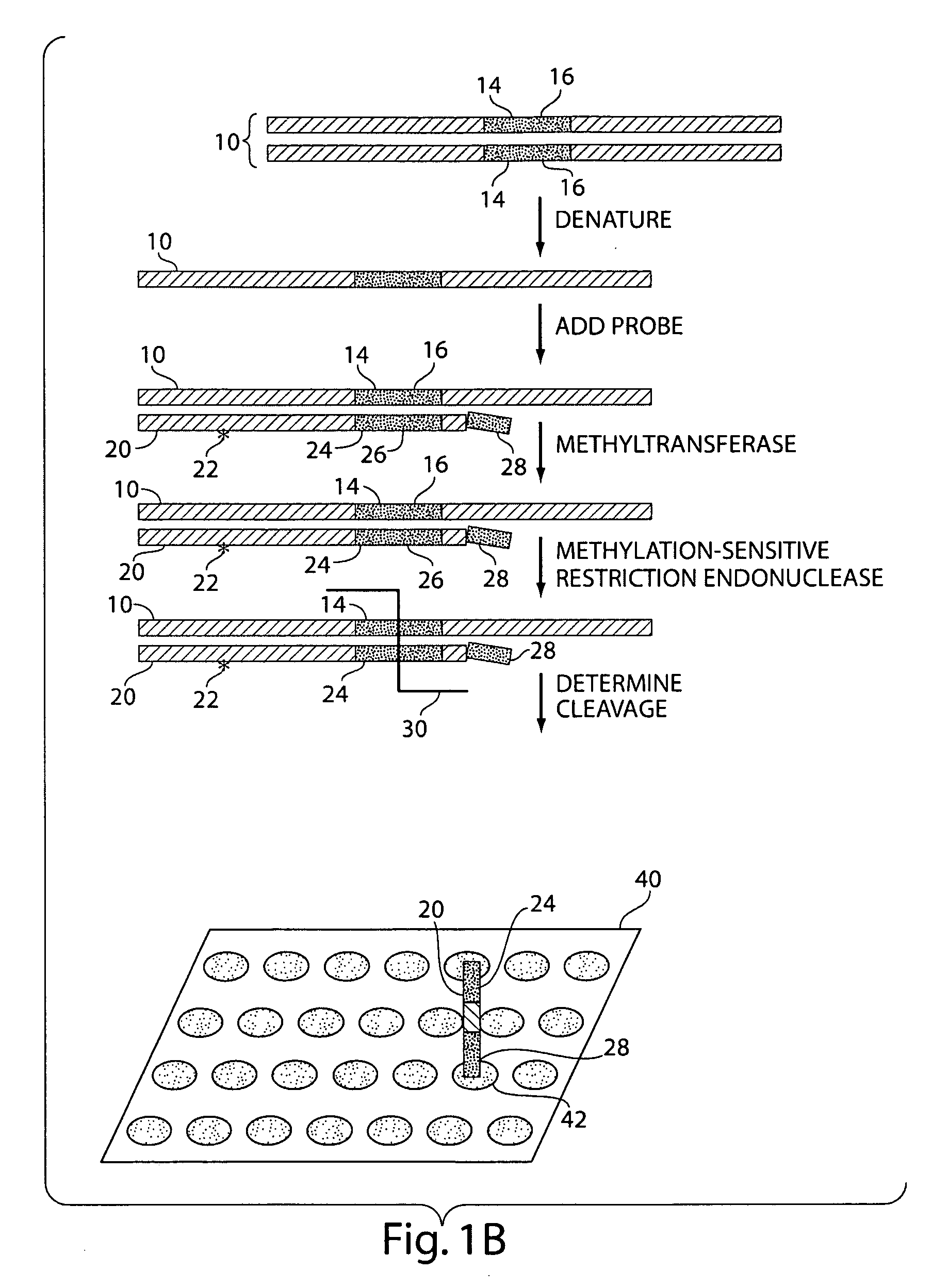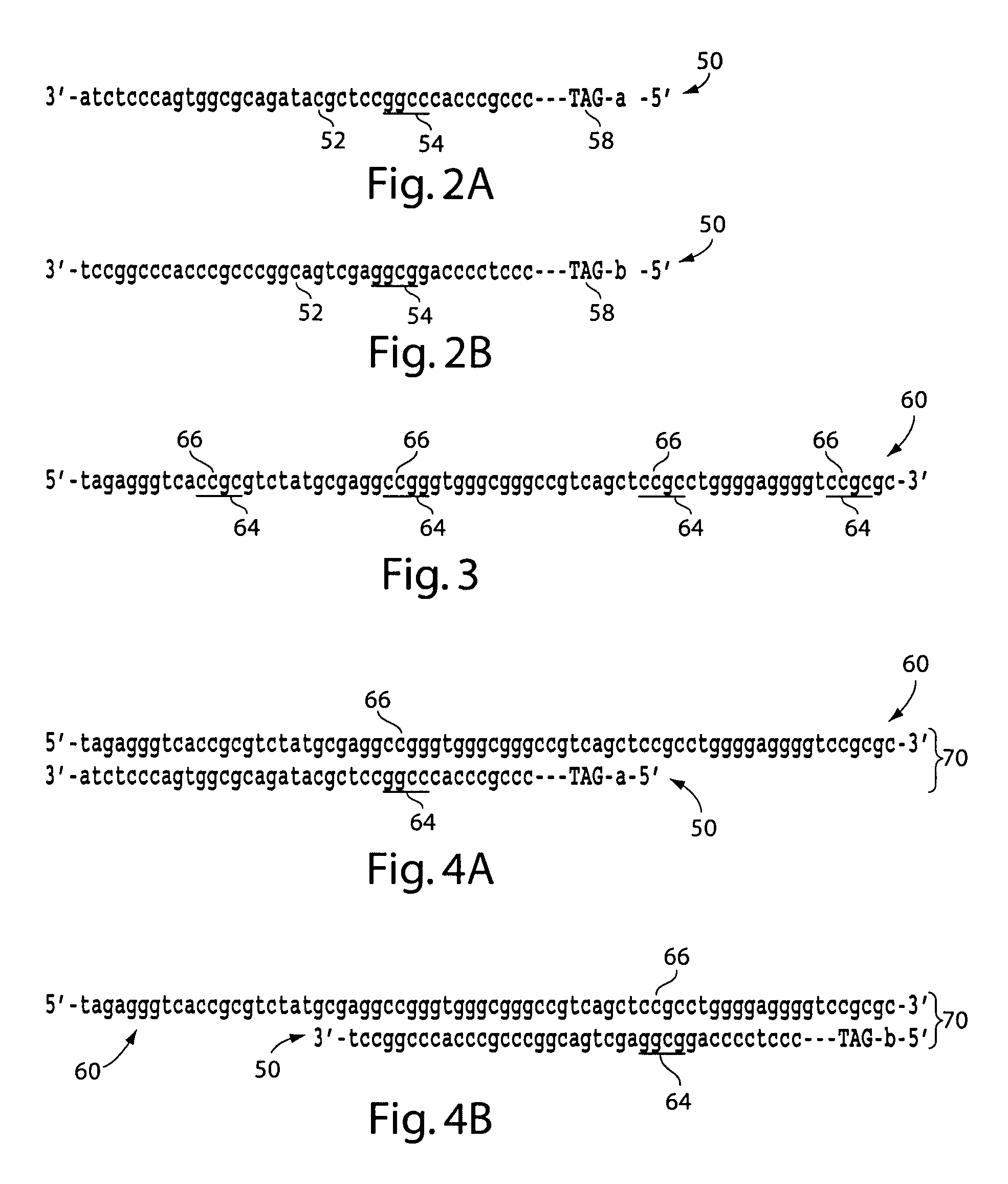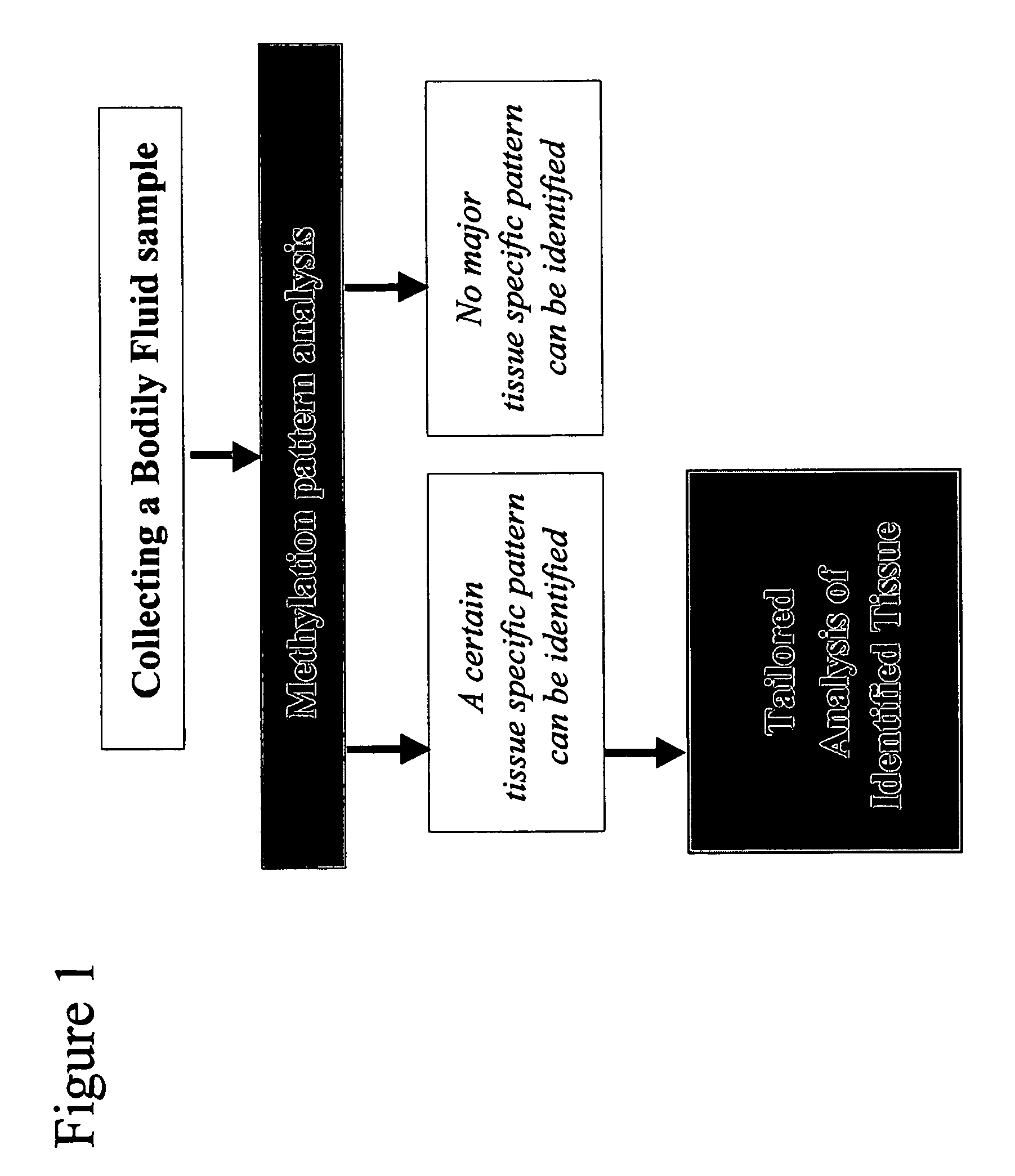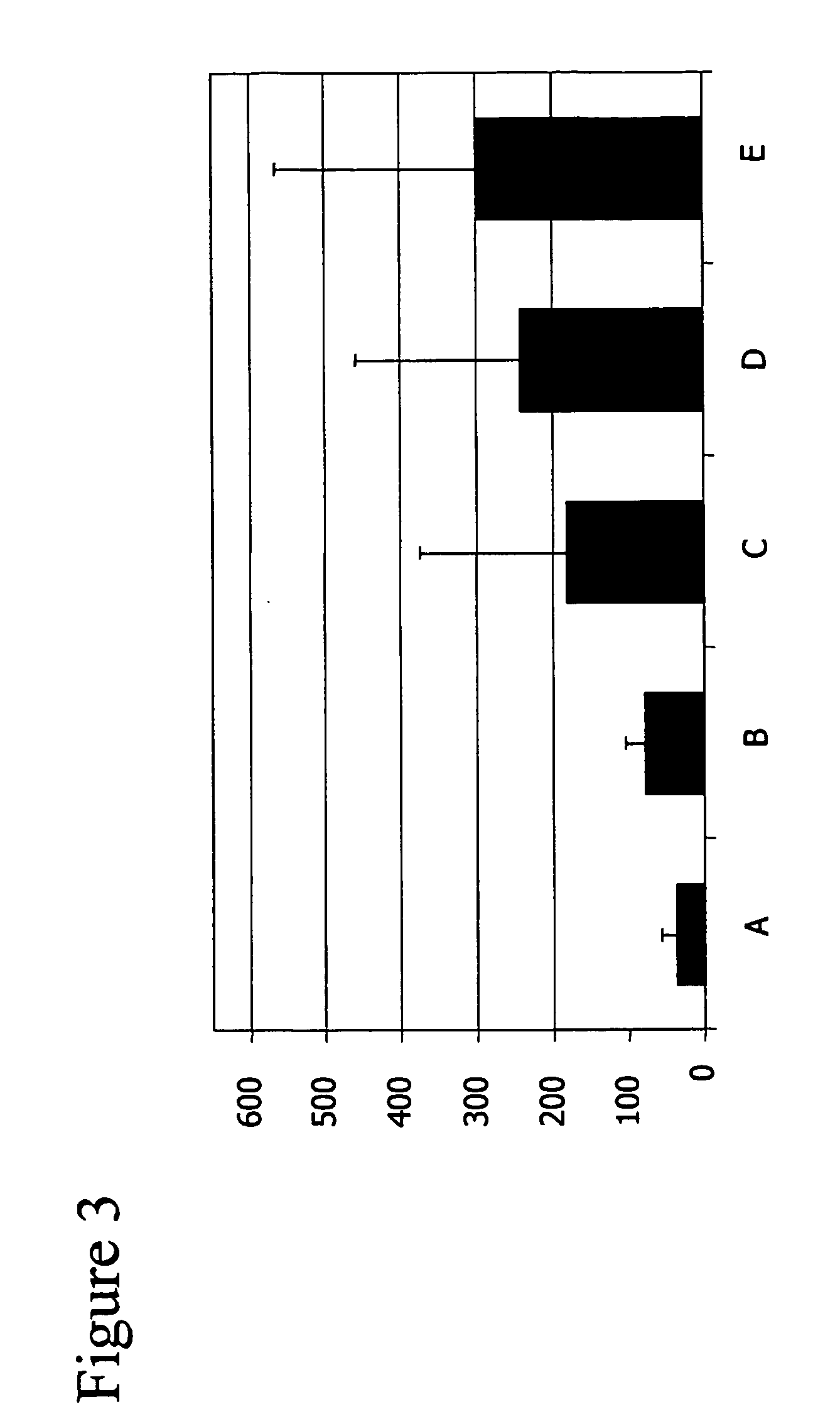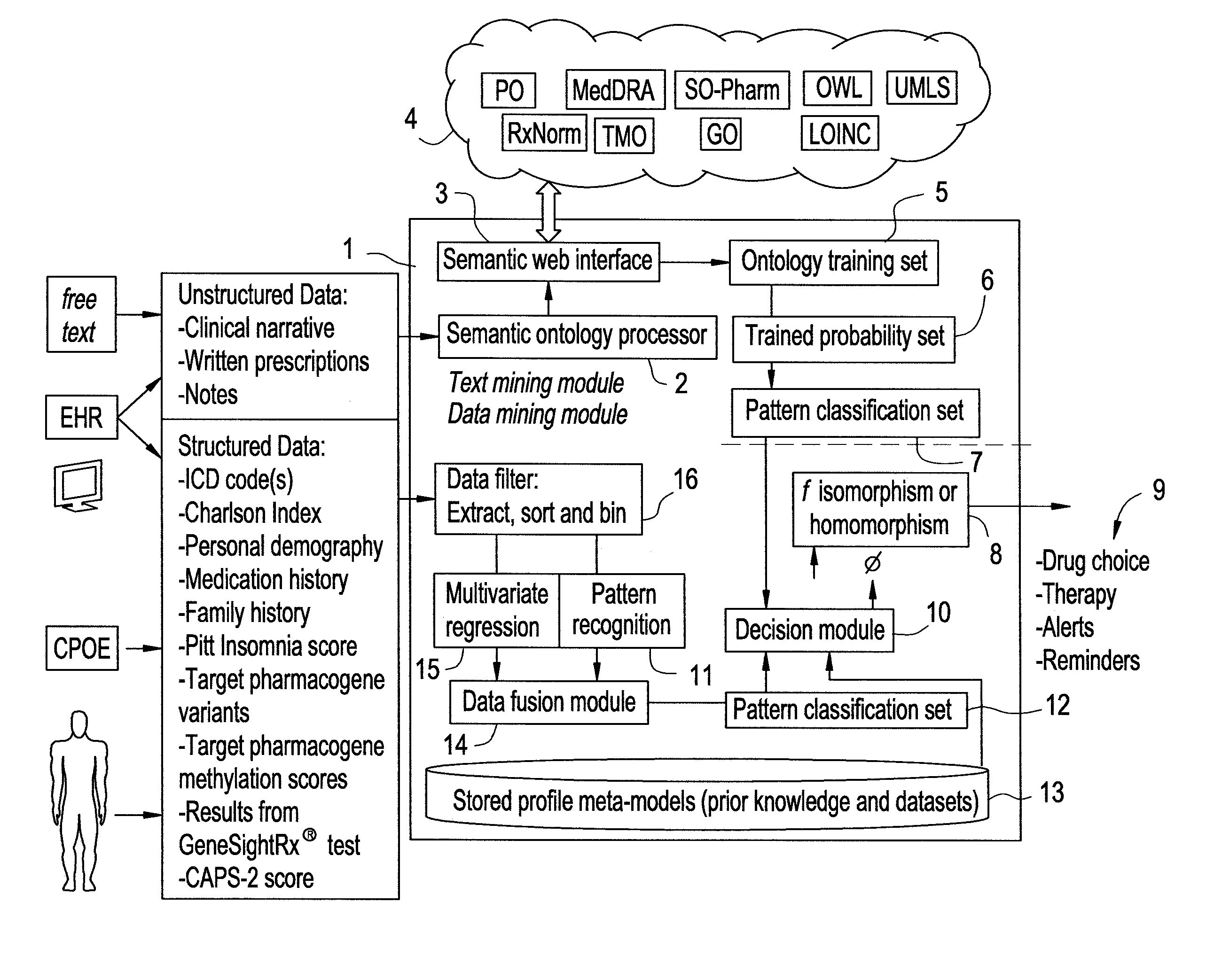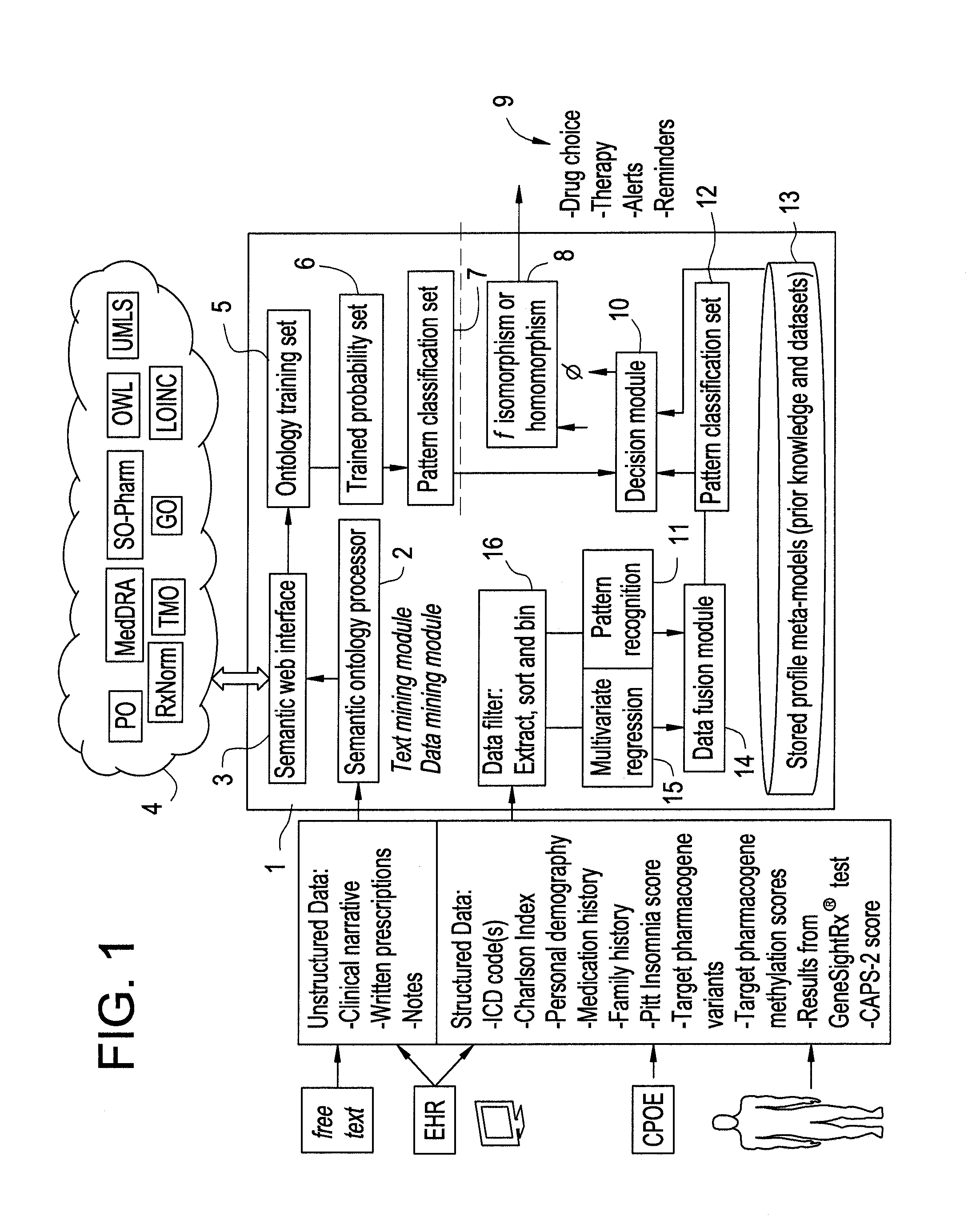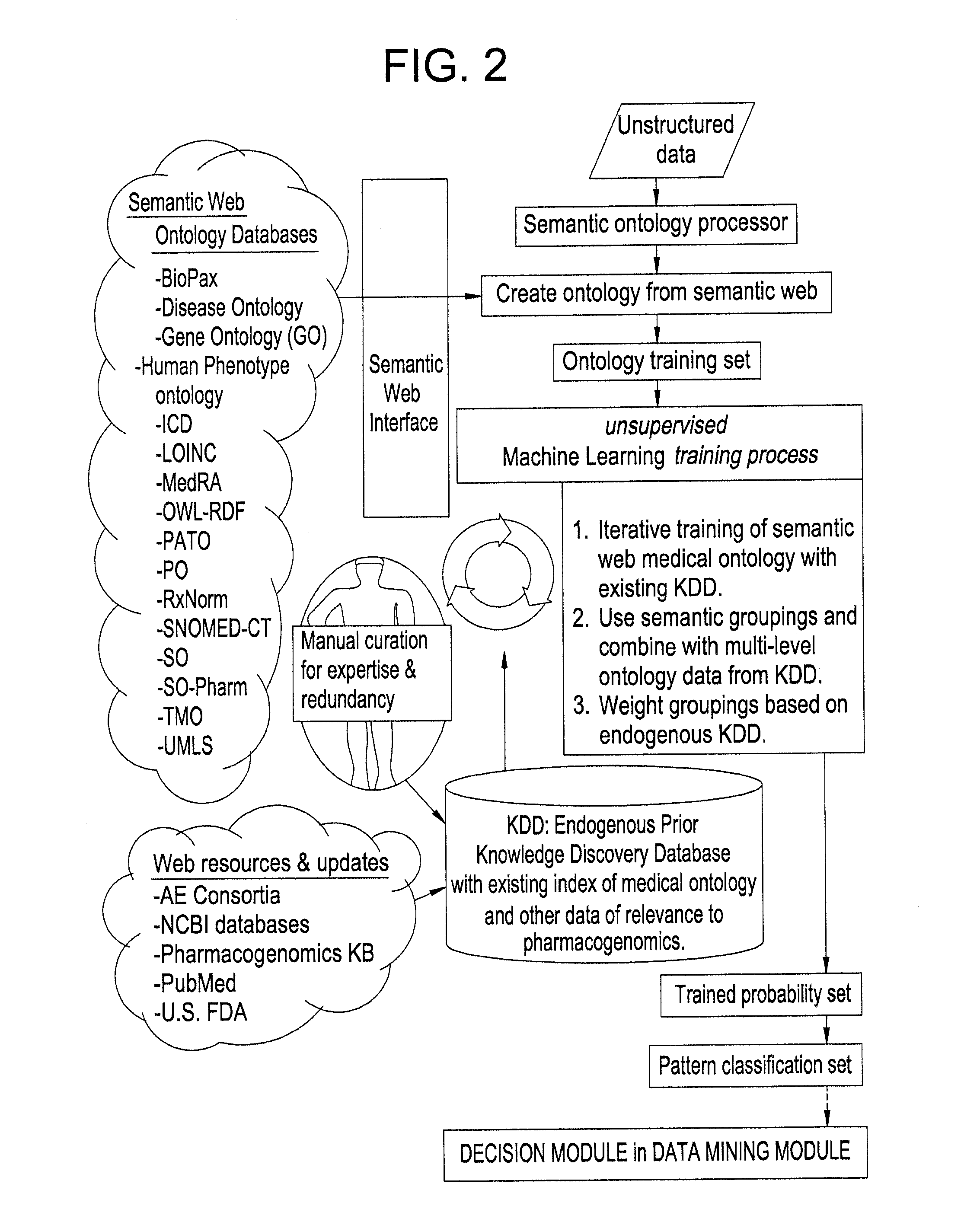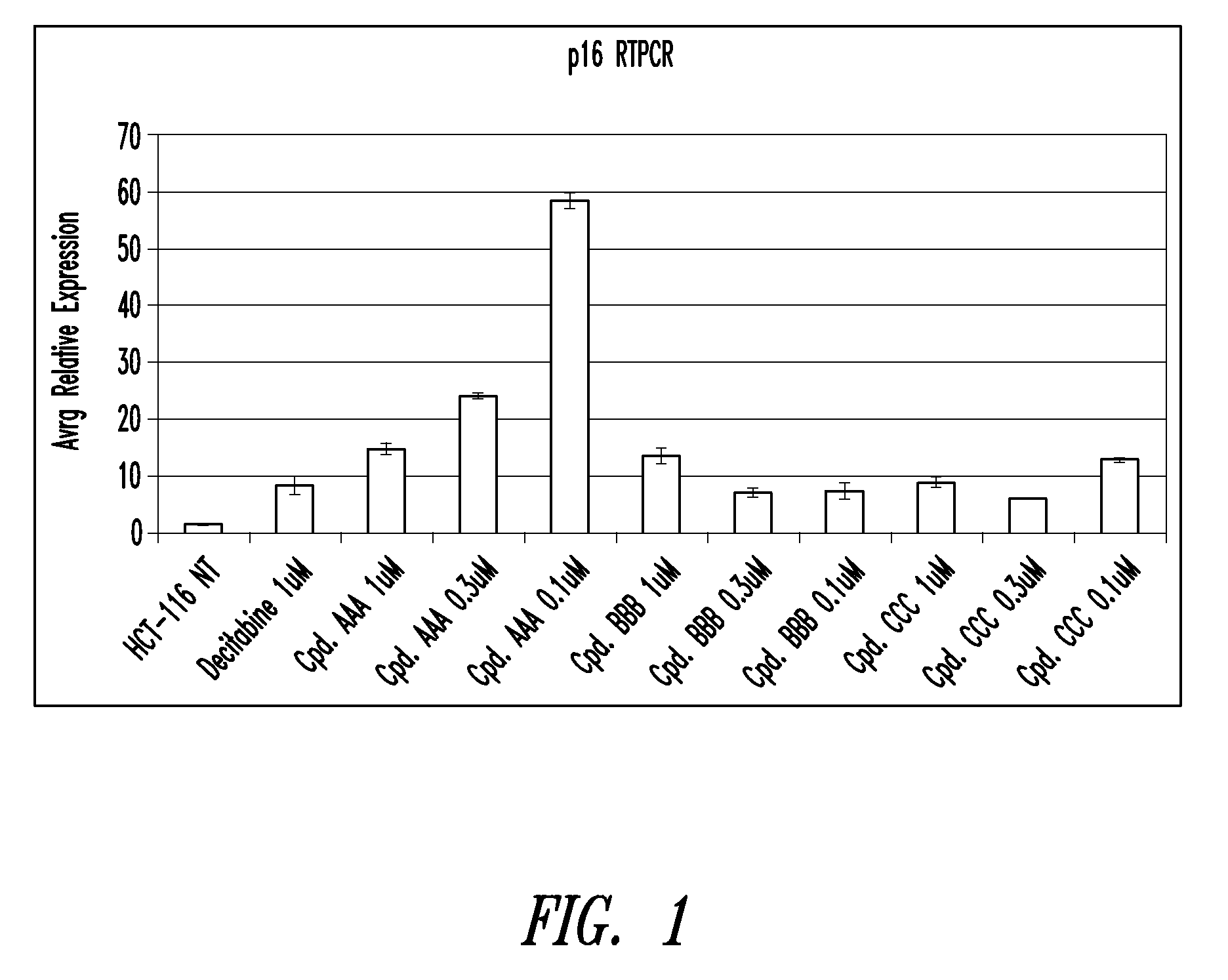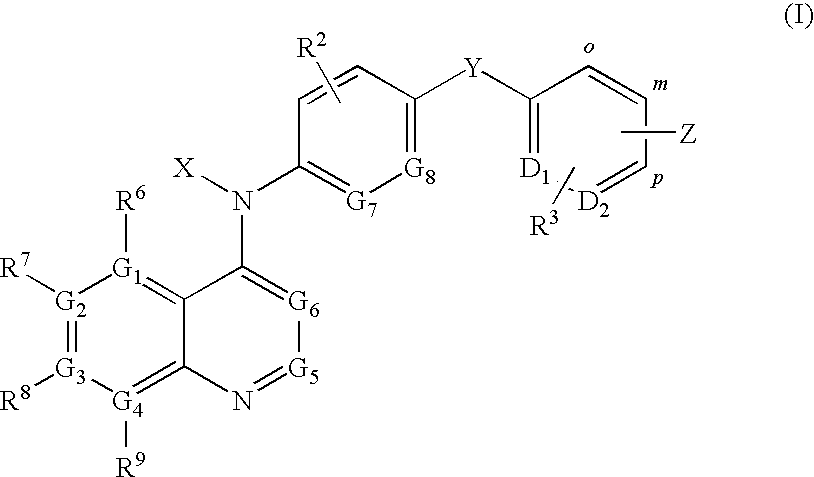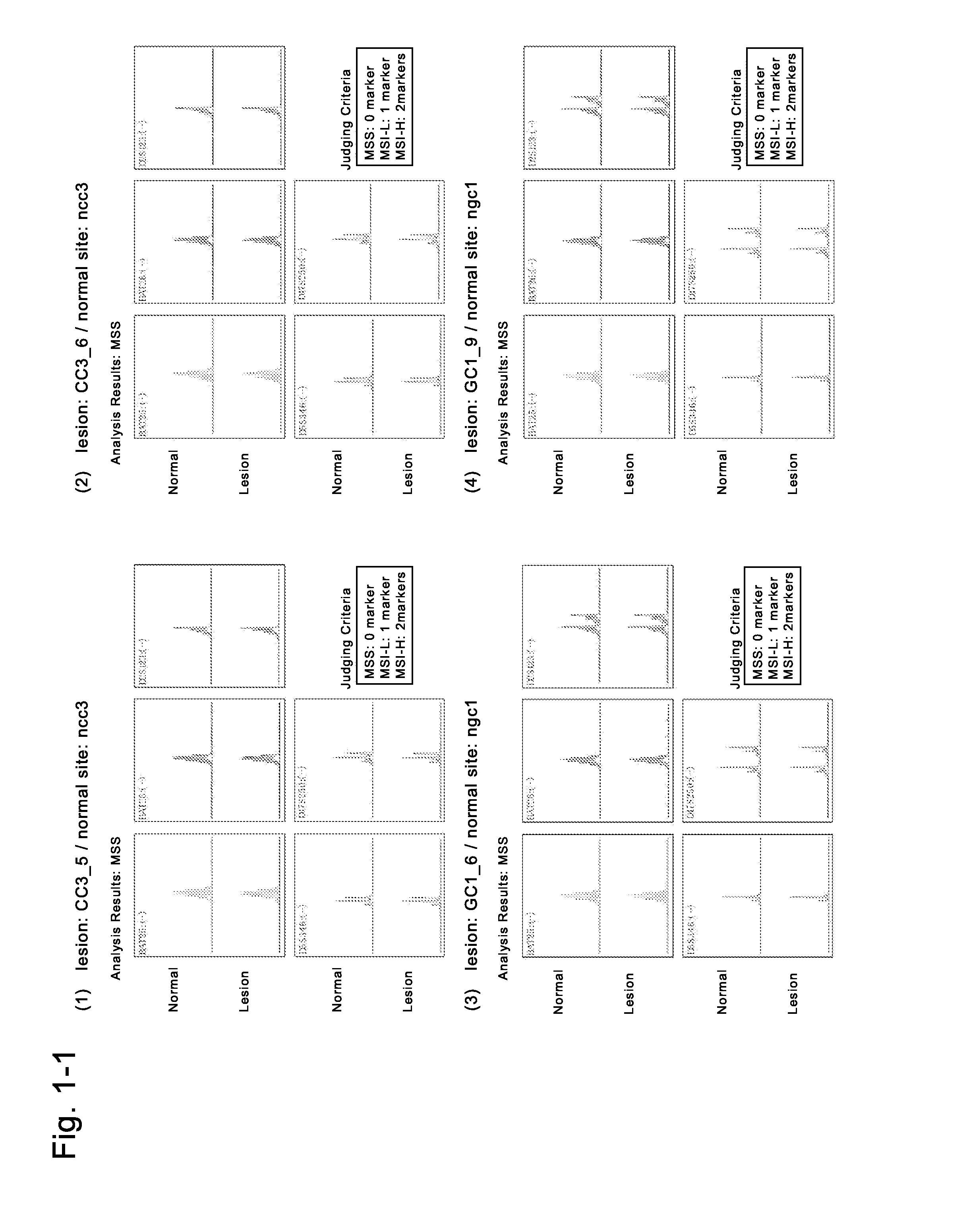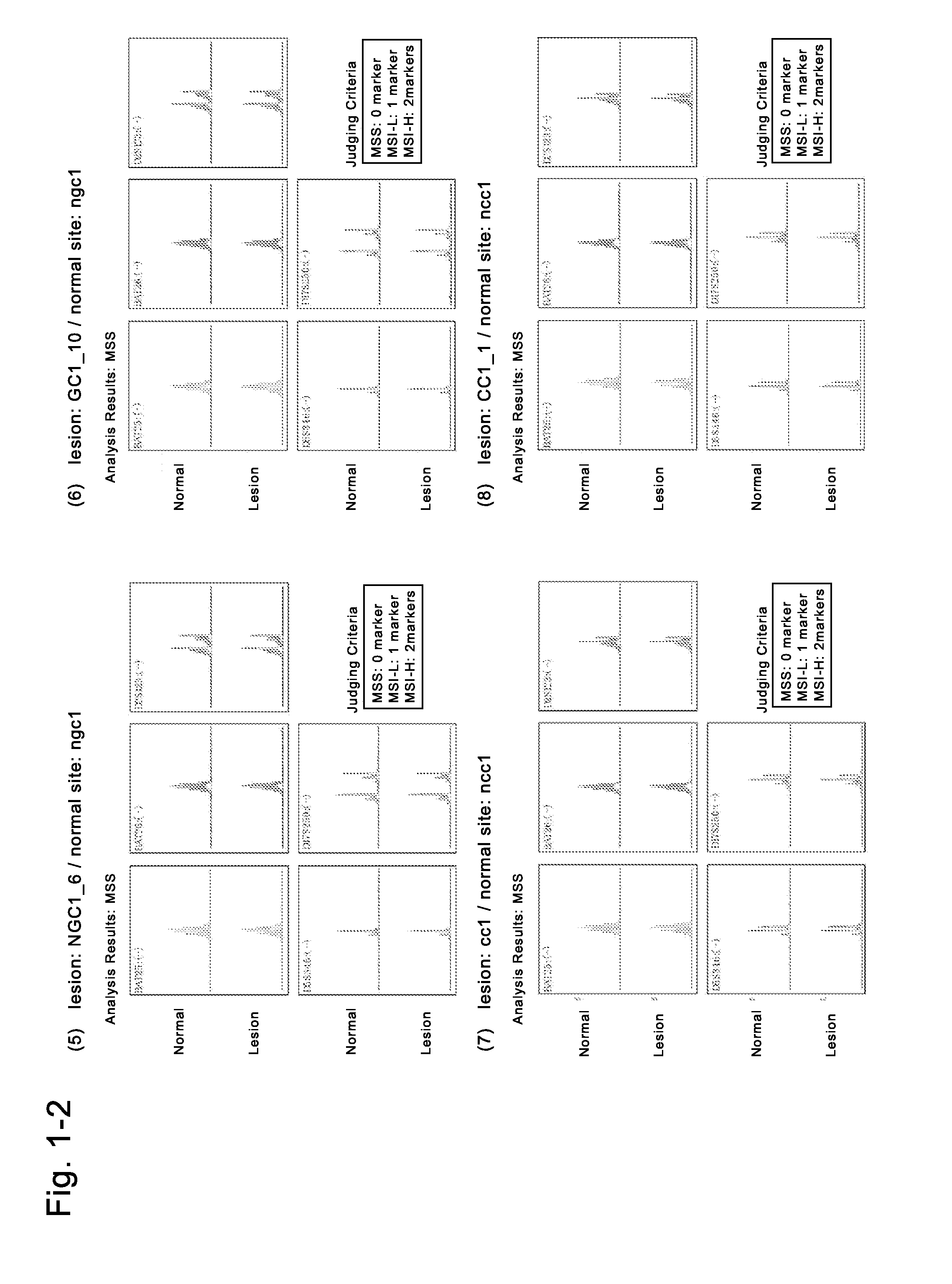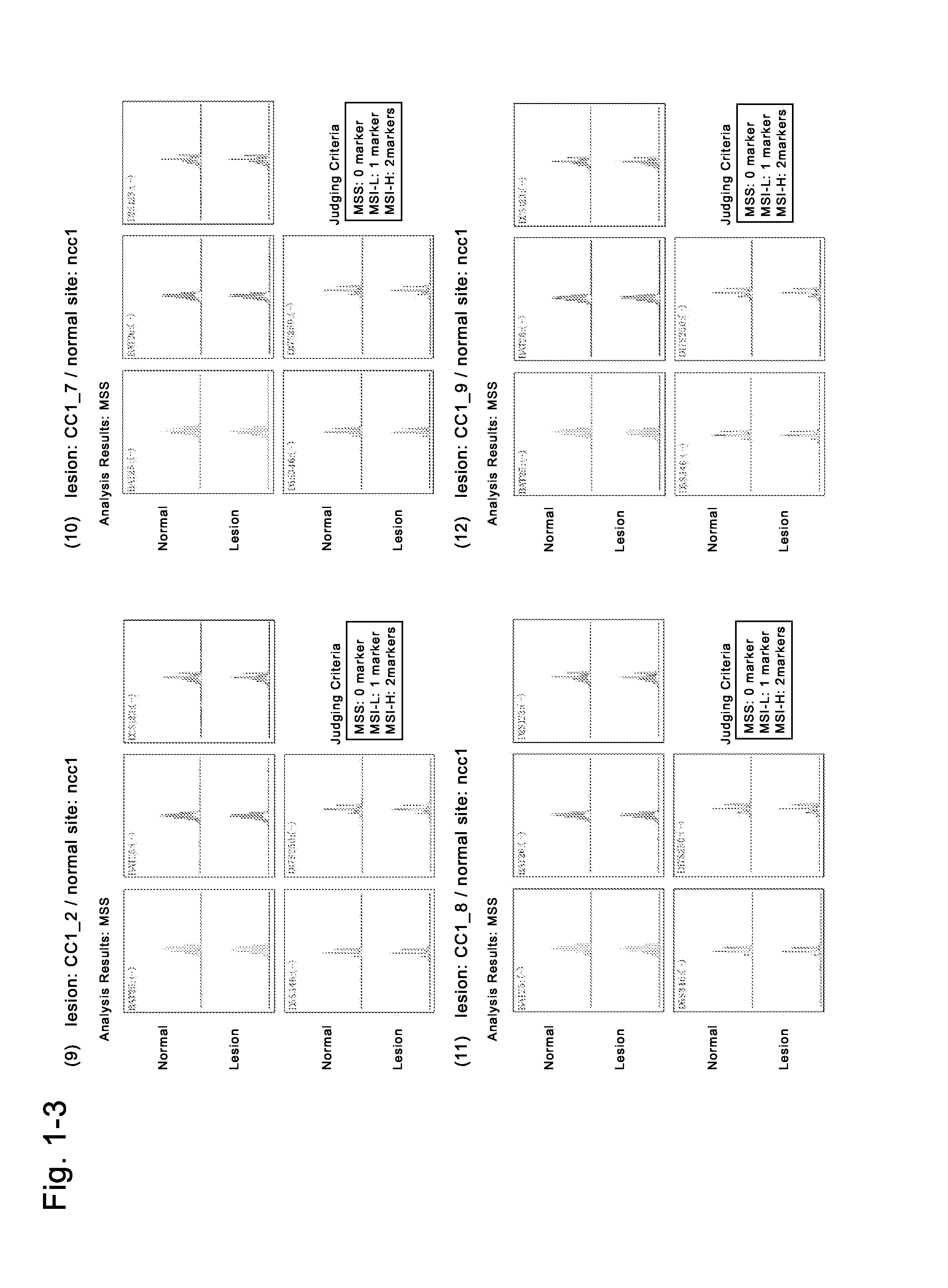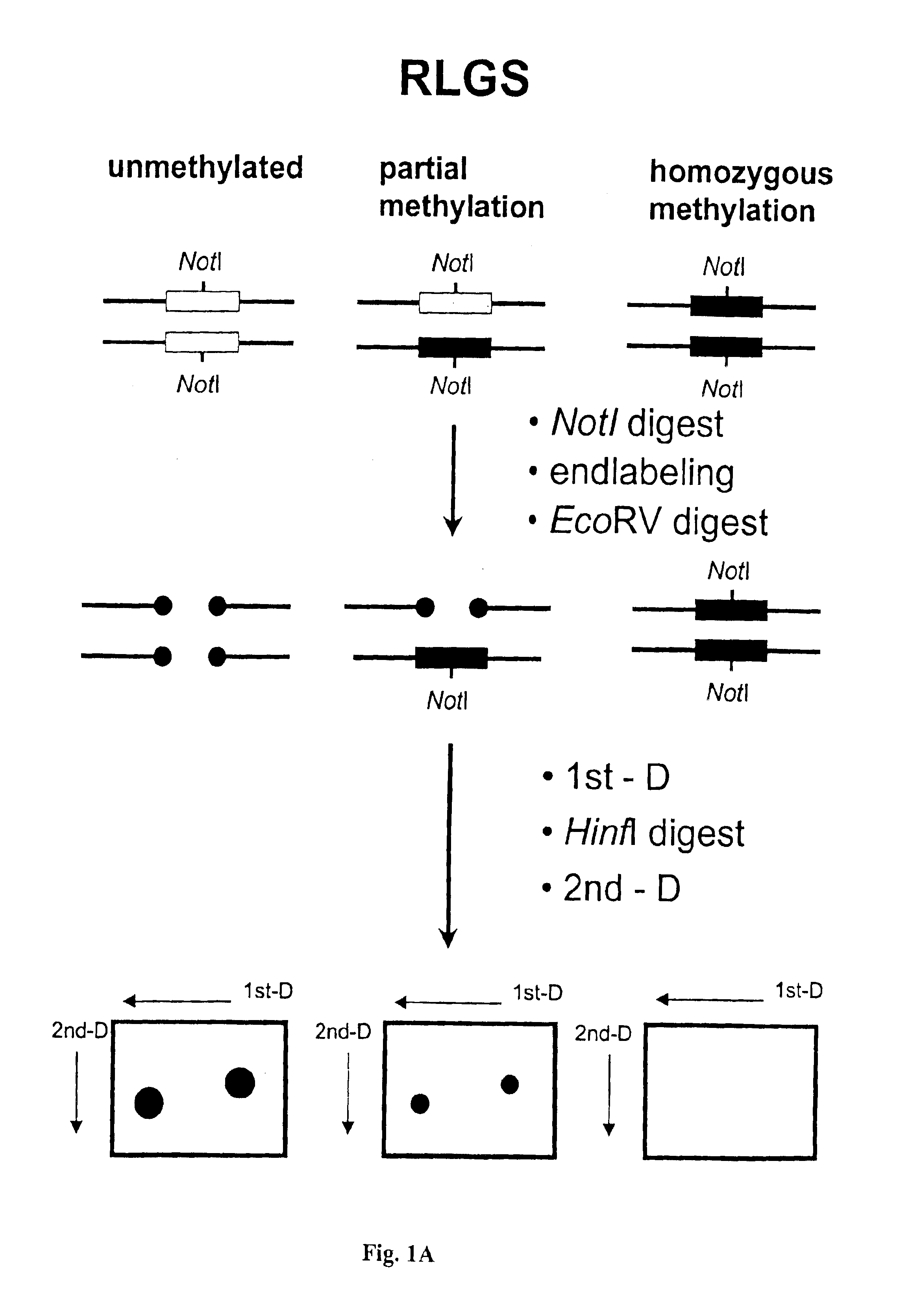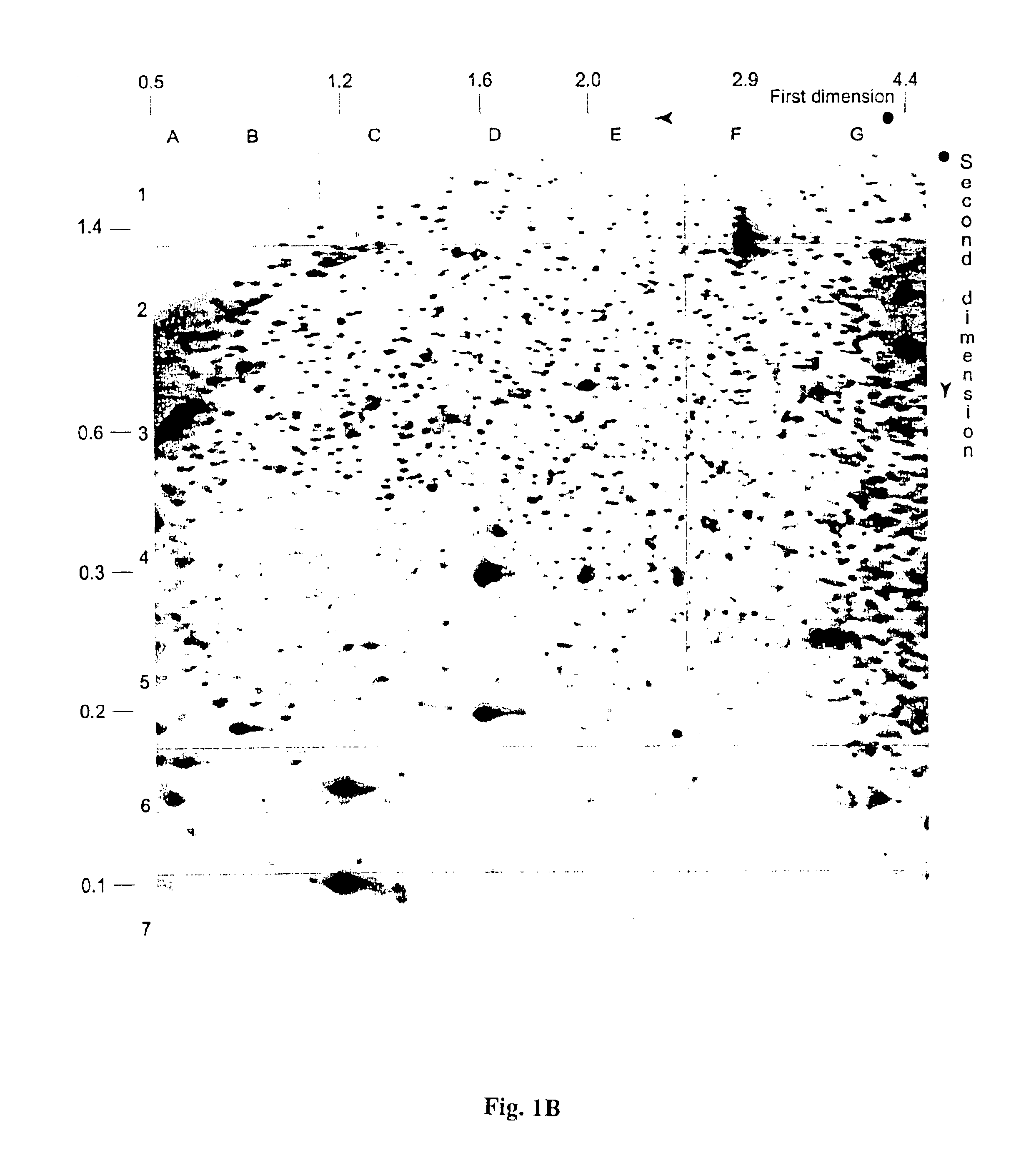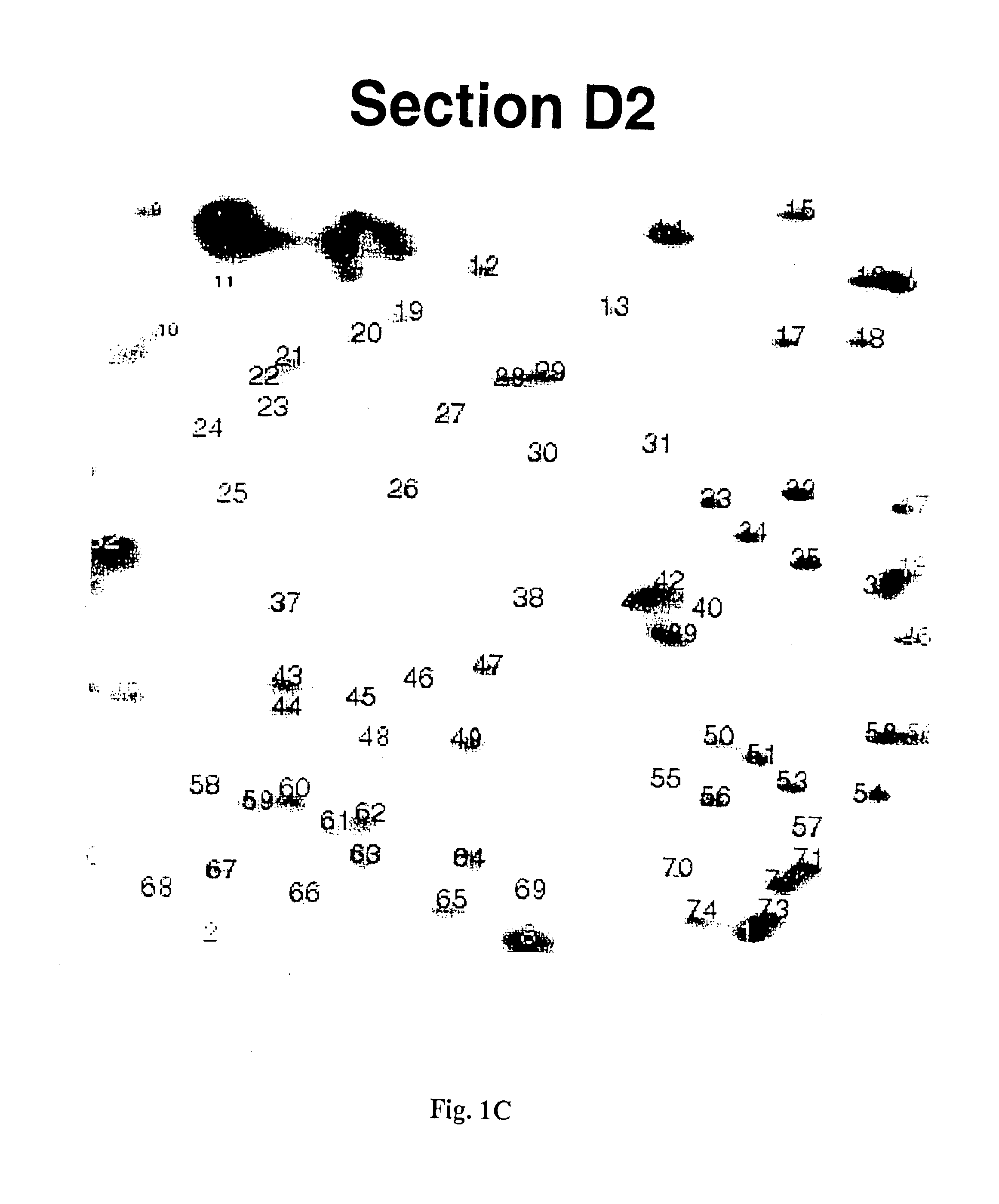Patents
Literature
Hiro is an intelligent assistant for R&D personnel, combined with Patent DNA, to facilitate innovative research.
3691 results about "Methylation" patented technology
Efficacy Topic
Property
Owner
Technical Advancement
Application Domain
Technology Topic
Technology Field Word
Patent Country/Region
Patent Type
Patent Status
Application Year
Inventor
In the chemical sciences, methylation denotes the addition of a methyl group on a substrate, or the substitution of an atom (or group) by a methyl group. Methylation is a form of alkylation, with a methyl group, rather than a larger carbon chain, replacing a hydrogen atom. These terms are commonly used in chemistry, biochemistry, soil science, and the biological sciences.
Multiplexed methylation detection methods
The present invention is directed to sensitive and accurate multiplexed assays for target analyte detection and detection of methylation in nucleic acid samples.
Owner:ILLUMINA INC
Method for the development of gene panels for diagnostic and therapeutic purposes based on the expression and methylation status of the genes
InactiveUS20020137086A1Fast and reliable diagnosis and therapyPowerful toolBioreactor/fermenter combinationsNervous disorderCytosineTherapeutic intent
A method for the development of gene panels for diagnostic and therapeutic purposes comprising the steps of: (a) isolating at least one biological sample from each of at least two groups of biological material containing mRNA and / or proteins; (b) analyzing the expression level of at least one gene in the at least one biological sample; (c) selecting the gene(s) exhibiting a different expression level between the at least two groups of biological material, whereby a first knowledge base is generated; (d) analyzing the level of cytosine methylation in the methylation relevant regions of at least one gene of at least one of the biological samples of step (a), wherein the gene is selected on the basis of the first knowledge base; (e) selecting the gene(s) exhibiting a different level of cytosine methylation between the at least two groups of biological material, whereby a second knowledge base is generated; and (f) adding selected genes from the second knowledge base to a gene panel.
Owner:EPIGENOMICS AG
Marker for prenatal diagnosis and monitoring
The present invention relates to new methods for diagnosing a pregnancy-associated disorder by analyzing fetal DNA present in the mother's blood. More specifically, this invention relies on the discovery that the maspin gene is differentially methylated in fetal DNA and in maternal DNA and provides these new diagnostic methods, which distinguish fetal DNA from maternal DNA and detect prenatal disorders based on abnormalities in fetal DNA level and methylation status.
Owner:THE CHINESE UNIVERSITY OF HONG KONG
Methods and compositions for generating and amplifying DNA libraries for sensitive detection and analysis of DNA methylation
InactiveUS20050202490A1Reduce stepsReduce stretchMicrobiological testing/measurementFermentationDNA methylationCell free
The present invention regards a variety of methods and compositions for obtaining epigenetic information, such as DNA methylation patterns, through the preparation, amplification and analysis of Methylome libraries. In several aspects of the present invention, there are methods based on methylation-dependent enrichment or depletion of genomic DNA isolated from cellular and cell-free sources. In additional embodiments, there are methods and compositions for single-step high throughput preparations of Methylome libraries.
Owner:TAKARA BIO USA INC
Immunomodulatory oligonucleotides
Oligonucleotides containing unthylated CpG dinucleotides and therapeutic utilities based on their ability to stimulate an immune response in a subject are disclosed. Also disclosed are therapies for treating diseases associated with immune system activation that are initiated by unthylated CpG dinucleotides in a subject comprising administering to the subject oligonucleotides that do not contain unmethylated CpG sequences (i.e. methylated CpG sequences or no CpG sequence) to outcompete unmethylated CpG nucleic acids for binding. Further disclosed are methylated CpG containing dinucleotides for use antisense therapies or as in vivo hybridization probes, and immunoinhibitory oligonucleotides for use as antiviral therapeutics.
Owner:IOWA RES FOUND UNIV OF +3
Methods for prenatal diagnosis of chromosomal abnormalities
ActiveUS20070059707A1Rapid productionAccurate detectionMicrobiological testing/measurementFermentationDiseaseNon invasive
Chromosomal abnormalities are responsible for a significant number of birth defects, including mental retardation. The present invention is related to methods for non-invasive and rapid, prenatal diagnosis of chromosomal abnormalities based on analysis of a maternal blood sample. The invention exploits the differences in DNA between the mother and fetus, for instance differences in their methylation states, as a means to enrich for fetal DNA in maternal plasma sample. The methods described herein can be used to detect chromosomal DNA deletions and duplications. In a preferred embodiment, the methods are used to diagnose chromosomal aneuploidy and related disorders, such as Down's and Turner's Syndrome.
Owner:TRUSTEES OF BOSTON UNIV
Immunomodulatory oligonucleotides
InactiveUS20050004062A1Improve responseIncrease the number ofOrganic active ingredientsSugar derivativesHybridization probeIn vivo
Oligonucleotides containing unthylated CpG dinucleotides and therapeutic utilities based on their ability to stimulate an immune response in a subject are disclosed. Also disclosed are therapies for treating diseases associated with immune system activation that are initiated by unthylated CpG dinucleotides in a subject comprising administering to the subject oligonucleotides that do not contain unmethylated CpG sequences (i.e. methylated CpG sequences or no CpG sequence) to outcompete unmethylated CpG nucleic acids for binding. Further disclosed are methylated CpG containing dinucleotides for use antisense therapies or as in vivo hybridization probes, and immunoinhibitory oligonucleotides for use as antiviral therapeutics.
Owner:COLEY PHARM GRP INC +1
Dinucleotide MRNA cap analogs
ActiveUS8304529B2Increase opportunitiesImprove translationSugar derivativesActivity regulationPyrimidine NucleotidesRibose
Novel cap analogs which are easily synthesized, resulting in high levels of capping efficiency and transcription and improved translation efficiencies are provided. Such caps are methylated at the N7 position of one or both guanosines of the dinucleotide cap as well as at the 3′ position on the ribose ring. Substituent groups on the ribose ring also result in the cap being incorporated in the forward orientation. Also provided are methods useful for preparing capped analogs and using mRNA species containing such analogs are also contemplated herein, as well as kits containing the novel cap analogs.
Owner:APPL BIOSYSTEMS INC
Inhibitors of Human EZH2 and Methods of Use Thereof
The invention relates to inhibition of wild-type and certain mutant forms of human histone methyltransferase EZH2, the catalytic subunit of the PRC2 complex which catalyzes the mono- through tri-methylation of lysine 27 on histone H3 (H3-K27). In one embodiment the inhibition is selective for the mutant form of the EZH2, such that trimethylation of H3-K27, which is associated with certain cancers, is inhibited. The methods can be used to treat cancers including follicular lymphoma and diffuse large B-cell lymphoma (DLBCL). Also provided are methods for identifying small molecule selective inhibitors of the mutant forms of EZH2 and also methods for determining responsiveness to an EZH2 inhibitor in a subject.
Owner:EPIZYME
Method for detecting chromosomal aneuploidy
The present invention relates to a new, non-invasive method for detecting chromosomal aneuploidy by analyzing a sample from a pregnant woman. The detection is based on the ratio between the amount of a fetal methylation marker located on a chromosome relevant to the aneuploidy and the amount of a fetal genetic marker located on a reference chromosome, offering improved accuracy.
Owner:THE CHINESE UNIVERSITY OF HONG KONG
Systems, methods and computer program products for guiding selection of a therapeutic treatment regimen based on the methylation status of the DNA
InactiveUS20050021240A1Data processing applicationsMicrobiological testing/measurementRegimenProphylactic treatment
Systems, methods and computer program products for guiding selection of a therapeutic treatment regimen or a preventive therapeutic treatment regimen are disclosed. The method comprises (A) providing to a computing device comprising a first knowledge base comprising information about a plurality of different methylation statuses at selected sites of the DNA in cells with a known disease or medical condition and / or healthy cells, a second knowledge base comprising a plurality of expert rules for evaluating and selecting a type of disease or medical condition based on the methylation status at selected sites of the DNA of a patient, (B) generating in said computing device a ranked listing of diseases or medical conditions based on the information about the methylation status at selected sites of the DNA of the patient, the first knowledge base and the second knowledge base.
Owner:EPIGENOMICS AG
Novel markers for prenatal diagnosis and monitoring
ActiveUS20070275402A1Sugar derivativesMicrobiological testing/measurementObstetricsPrenatal diagnosis
This application provides the use of novel fetal markers for prenatal diagnosis and monitoring of certain pregnancy-related conditions. More specifically, the invention resides in the discovery that certain CpG islands located on fetal chromosome 21 demonstrate a methylation profile that is distinct from that of the corresponding CpG islands located on maternal chromosome 21. This application also provides kits for diagnosing or monitoring of the relevant conditions.
Owner:THE CHINESE UNIVERSITY OF HONG KONG
Inhibitors of Human EZH2, and Methods of Use Thereof
The invention relates to inhibition of wild-type and certain mutant forms of human histone methyltransferase EZH2, the catalytic subunit of the PRC2 complex which catalyzes the mono- through tri-methylation of lysine 27 on histone H3 (H3-K27). In one embodiment the inhibition is selective for the mutant form of the EZH2, such that trimethylation of H3-K27, which is associated with certain cancers, is inhibited. The methods can be used to treat cancers including follicular lymphoma and diffuse large B-cell lymphoma (DLBCL). Also provided are methods for identifying small molecule selective inhibitors of the mutant forms of EZH2 and also methods for determining responsiveness to an EZH2 inhibitor in a subject.
Owner:EPIZYME
Method of inducing an antigen-specific immune response by administering a synergistic combination of adjuvants comprising unmethylated CpG-containing nucleic acids and a non-nucleic acid adjuvant
The present invention relates generally to adjuvants, and in particular to methods and products utilizing a synergistic combination of immunostimulatory oligonucleotides having at least one unmethylated CpG dinucleotide (CpG ODN) and a non-nucleic acid adjuvant. Such combinations of adjuvants may be used with an antigen or alone. The present invention also relates to methods and products utilizing immunostimulatory oligonucleotides having at least one unmethylated CpG dinucleotide (CpG ODN) for induction of cellular immunity in infants.
Owner:UNIV OF IOWA RES FOUND +2
Methods for prenatal diagnosis of chromosomal abnormalities
ActiveUS7655399B2Rapid productionAccurate detectionMicrobiological testing/measurementPlasma samplesNon invasive
Chromosomal abnormalities are responsible for a significant number of birth defects, including mental retardation. The present invention is related to methods for non-invasive and rapid, prenatal diagnosis of chromosomal abnormalities based on analysis of a maternal blood sample. The invention exploits the differences in DNA between the mother and fetus, for instance differences in their methylation states, as a means to enrich for fetal DNA in maternal plasma sample. The methods described herein can be used to detect chromosomal DNA deletions and duplications. In a preferred embodiment, the methods are used to diagnose chromosomal aneuploidy and related disorders, such as Down's and Turner's Syndrome.
Owner:TRUSTEES OF BOSTON UNIV
Methods and compositions for assessing CpG methylation
InactiveUS20050233340A1Bioreactor/fermenter combinationsBiological substance pretreatmentsDNA methylationCpg island methylation
Methods and compositions for assessing CpG island methylation are provided. Specifically, the invention provides an unstructured nucleic acid (UNA) oligonucleotide that base pairs with, i.e., hybridizes to, CpG islands. The subject oligonucleotide may be present in an array, and find use in methods for evaluating methylation of CpG islands in cells. Kits and computer programming for use in practicing the subject methods are also provided.
Owner:AGILENT TECH INC
Cancer screening method
InactiveUS20080311570A1Accurate screening resultEasy diagnosisMicrobiological testing/measurementFermentationScreening cancerScreening method
A method for screening cancer comprises the following steps: (1) providing a test specimen; (2) detecting the methylation state of the CpG sequence in at least one target gene within the genomic DNA of the test specimen, wherein the target genes is consisted of SOX1, PAX1, LMX1A, NKX6-1, WT1 and ONECUT1; and (3) determining whether there is cancer or cancerous pathological change in the specimen based on the presence or absence of the methylation state in the target gene; wherein method for detecting methylation state is methylation-specific PCR (MSP), quantitative methylation-specific PCR (QMSP), bisulfite sequencing (BS), microarrays, mass spectrometer, denaturing high-performance liquid chromatography (DHPLC), and pyrosequencing.
Owner:NAT DEFENSE MEDICAL CENT
Method for isolating and modifying DNA from blood and body fluids
InactiveUS20070042384A1Highly efficient and fast isolation and modificationEasily and quickly isolatedSugar derivativesMicrobiological testing/measurementModified dnaPcr assay
This invention is related a method for rapidly isolating and modifying DNA from plasma / serum and body fluids. This invention provides a procedure and composition to obtain a high yield of modified DNA for methylation-specific PCR assay by coupling DNA isolation and modification courses.
Owner:LI WEIWEI +1
Dinucleotide MRNA CAP Analogs
ActiveUS20100261231A1Increase opportunitiesImprove translationSugar derivativesActivity regulationRibosePyrimidine Nucleotides
Novel cap analogs which are easily synthesized, resulting in high levels of capping efficiency and transcription and improved translation efficiencies are provided. Such caps are methylated at the N7 position of one or both guanosines of the dinucleotide cap as well as at the 3′ position on the ribose ring. Substituent groups on the ribose ring also result in the cap being incorporated in the forward orientation. Also provided are methods useful for preparing capped analogs and using mRNA species containing such analogs are also contemplated herein, as well as kits containing the novel cap analogs.
Owner:APPL BIOSYSTEMS INC
Methods and compositions for segregating target nucleic acid from mixed nucleic acid samples
InactiveUS8927218B2Rapid and efficient isolation and identificationMicrobiological testing/measurementDNA preparationDNA EndonucleaseMethylation
The invention provides methods, compositions and kits for segregating a target nucleic acid from a mixed nucleic acid sample. The methods, compositions and kits comprise a non-processive endonuclease (e.g., a restriction enzyme) or an antibody that binds the target nucleic acid (e.g., has methylation specificity). The mixed nucleic acid sample can comprise prokaryotic and eukaryotic nucleic acid and / or nucleic acid from more than one prokaryotic or eukaryotic organisms.
Owner:FLIR DETECTION
Compositions and methods for treatment of cancer
Compositions and methods for treatment of conditions related to the overexpression of EZH2, such as late stage prostate cancer, using a DNA methylation inhibitor and / or a histone deacetylase inhibitor, optionally in combination with an EZH2 antagonist and / or an antineoplastic agent, to specifically target diseases associated with EZH2 over-expression. Further provided are reagents and kits for treatment of EZH2 overexpression.
Owner:SUPERGEN
Methods and kits for selectively amplifying, detecting or quantifying target DNA with specific end sequences
ActiveUS20090061425A1Microbiological testing/measurementFermentationPlasma samplesRestriction enzyme digestion
Disclosed herein are methods and kits for selectively amplifying, detecting or quantifying a DNA fragment with a specific end sequence, especially generated following restriction enzyme digestion. This method can be used, for example, to detect a hypomethylated DNA fragment. This methods and kits are especially useful in detecting or quantifying a hypomethylated fetal DNA fragment in a maternal plasma sample containing a corresponding hypermethylated maternal DNA fragment.
Owner:THE CHINESE UNIVERSITY OF HONG KONG +1
Proteome epitope tags and methods of use thereof in protein modification analysis
InactiveUS20060014212A1High clinical application valueReliable detectionLibrary screeningNanoinformaticsEpitopePost translational
Disclosed are reagents and methods for reliably detecting the presence and measuring the amount of proteins, including proteins with various post-translational modifications (phosphorylation, glycosylation, methylation, acetylation, etc.) in a sample by the use of one or more capture agents that recognize and interact with recognition sequences uniquely characteristic of a protein or a set of proteins (Proteome Epitope Tags, or PETs) in the sample. Arrays comprising these capture agents or PETs are also provided.
Owner:EPITOME BIOSYST
Multiplexed methylation detection methods
The present invention is directed to sensitive and accurate multiplexed assays for target analyte detection and detection of methylation in nucleic acid samples.
Owner:ILLUMINA INC
Determination of methylated DNA
InactiveUS20070231800A1Microbiological testing/measurementFermentationNucleic Acid ProbesNucleic acid hybridisation
The present invention generally relates to the determination of the state of one or more locations within a nucleic acid and, in particular, to the determination of the methylation state of one or more methylation sites within a nucleic acid such as DNA. In one aspect of the invention, a nucleic acid, such as DNA, that is suspected of being methylated is exposed to a nucleic acid probe able to hybridize the nucleic acid at or near the methylation site. After hybridization, the nucleic acid-probe hybrid is exposed to a methylation-sensitive restriction endonuclease able to bind at or near the methylation site. The restriction endonuclease is not able to cleave the nucleic acid-probe hybrid if the DNA is methylated at the methylation site, but is able to cleave the nucleic acid-probe hybrid if the nucleic acid is not methylated at the methylation site. Determination of the cleavage state of the probe can thus be used to determine the state of the methylation site.
Owner:AGILENT TECH INC
Method and device for determination of tissue specificity of free floating dna in bodily fluids
InactiveUS20050221314A1Diagnostic value of dramaticallyMaterial analysis by observing effect on chemical indicatorMicrobiological testing/measurementDiseaseBlood plasma
Owner:EPIGEONOMICS
Systems and Methods for Pharmacogenomic Decision Support in Psychiatry
InactiveUS20140046696A1Medical simulationData processing applicationsClinical variablesDecision taking
The present invention provides methods and systems or apparatuses, to analyze multiple molecular and clinical variables from an individual diagnosed with a psychiatric disorder, such as post-traumatic stress disorder (PTSD), in order to optimize medication selection for therapeutic response. Molecular co-variables include polymorphisms in genes including those involved in central control and mediation of the hypothalamic-pituitary axis (HPA) stress response, the density of methylation in regulatory regions of said polymorphic genes, polymorphisms in genes that encode cytochrome P450 enzymes responsible for drug metabolism, and drug-drug and drug-gene interactions. Clinical co-variables include but are not limited to the sex, age and ethnicity of that individual, medication history, family history, diagnostic codes, Pittsburgh insomnia rating score, and Charlson index score. The system makes a determination based on unstructured and structured data types derived from internal and external knowledge resources to determine psychotropic drug choice that best matches the molecular and clinical variation profile of an individual patient. The decision support system provides a therapeutic recommendation for a clinician based on the patient's variation profile.
Owner:ASSUREX HEALTH INC
Quinoline derivatives for modulating DNA methylation
InactiveUS20090285772A1Reduction in function/activityReduced activityBiocideOrganic chemistryCytosineDNA methylation
Quinoline derivatives, particularly 4-anilinoquinoline derivatives, are provided. Such quinoline derivatives can be used for modulation of DNA methylation, such as effective inhibition of methylation of cytosine at the C-5 position, for example via selective inhibition of DNA methyltransferase DNMT1. Methods for synthesizing numerous 4-anilinoquinoline derivatives and for modulating DNA methylation are provided. Also provided are methods for formulating and administering these compounds or compositions to treat conditions such as cancer and hematological disorders.
Owner:SUPERGEN
Induced malignant stem cells
InactiveUS20140137274A1High and low degree of methylationSugar derivativesPeptide/protein ingredientsMicrosatelliteSomatic cell
PROBLEMThere are provided induced malignant stem cells capable of in vitro proliferation that are useful in cancer research and drug discovery for cancer therapy, as well as processes for production thereof, cancer cells derived from these cells, and applications of these cells.MEANS FOR SOLVINGAn induced malignant stem cell capable of in vitro proliferation are characterized by satisfying the following two requirements:(1) having at least one aberration selected from among (a) an aberration of methylation (high or low degree of methylation) in a tumor suppressor gene or a cancer-related genetic region in endogenous genomic DNA, (b) a somatic mutation of a tumor suppressor gene or a somatic mutation of an endogenous cancer-related gene in endogenous genomic DNA, (c) abnormal expression (increased or reduced / lost expression) of an endogenous oncogene or an endogenous tumor suppressor gene, (d) abnormal expression (increased or reduced / lost expression) of a noncoding RNA such as an endogenous cancer-related microRNA, (e) abnormal expression of an endogenous cancer-related protein, (f) an aberration of endogenous cancer-related metabolism (hypermetabolism or hypometabolism), (g) an aberration of endogenous cancer-related sugar chain, (h) an aberration of copy number variations in endogenous genomic DNA, and (i) instability of microsatellites in endogenous genomic DNA in an induced malignant stem cell; and(2) expressing genes including POU5F1 gene, NANOG gene, SOX2 gene, and ZFP42 gene.
Owner:ISHIKAWA
Detection of methylated CpG rich sequences diagnostic for malignant cells
InactiveUS6893820B1Microbiological testing/measurementMaterial analysis by electric/magnetic meansAbnormal tissue growthCancer cell
The present invention provides methods for determining the methylation status of CpG-containing dinucleotides on a genome-wide scale using infrequent cleaving, methylation sensitive restriction endonucleases and two-dimensional gel electrophoretic display of the resulting DNA fragments. Such methods can be used to diagnose cancer, classify tumors and provide prognoses for cancer patients. The present invention also provides isolated polynucleotides and oligonucleotides comprising CpG dinucleotides that are differentially methylated in malignant cells as compared to normal, non-malignant cells. Such polynucleotides and oligonucleotides are useful for diagnosis of cancer. The present invention also provides methods for identifying new DNA clones within a library that contain specific CpG dinucleotides that are differentially methylated in cancer cells as compared to normal cells.
Owner:THE OHIO STATE UNIV RES FOUND
Features
- R&D
- Intellectual Property
- Life Sciences
- Materials
- Tech Scout
Why Patsnap Eureka
- Unparalleled Data Quality
- Higher Quality Content
- 60% Fewer Hallucinations
Social media
Patsnap Eureka Blog
Learn More Browse by: Latest US Patents, China's latest patents, Technical Efficacy Thesaurus, Application Domain, Technology Topic, Popular Technical Reports.
© 2025 PatSnap. All rights reserved.Legal|Privacy policy|Modern Slavery Act Transparency Statement|Sitemap|About US| Contact US: help@patsnap.com
